
- Other languages
- Accessibility

- Information and services
- About the UAE
- Travelling amid COVID-19

Travelling to the UAE
Vaccinated travellers to the UAE are not required to present a negative result of RT-PCR test for COVID-19 at the airport of departure. However, those who are not vaccinated must either present a valid, negative result of an RT-PCR test conducted within 48 hours before arrival or a recovery certificate (containing a QR code) from COVID-19 issued within 30 days before departure, if they were infected with the virus.
Rules for international travellers- as of 26 February 2022
Travelling to dubai - rules as of 19 may 2022, travelling to abu dhabi.
- Those who are not vaccinated against COVID-19, can either present a valid, negative result of an RT-PCR test conducted within 48 hours before arrival, or present a recovery certificate (containing a QR code) from COVID-19 issued within 30 days before departure, if they were previously infected with the virus.
Rules for Dubai residence visa holders, visitors and tourists
All UAE residents, visitors and tourists can travel to Dubai without an approval from GDRFA or ICP . However, visitors and tourists have to meet the visa requirements before travel, if they are not eligible for visa on arrival. Check visa requirements to visit the UAE .
Requirements
Passengers travelling to Dubai from all countries, including the Gulf Cooperation Council countries (GCC), must fulfil one of the below requirements at the airport of departure:
- present a valid COVID-19 vaccination certificate, reflecting that the passenger is fully vaccinated with a vaccine approved by the World Health Organisation (WHO) or the UAE. The certificate must contain a QR code.
- present a valid negative COVID-19 test certificate that should be based on a molecular diagnostic test intended for the qualitative detection of nucleic acid for SARS‑COV‑2 viral RNA. The certificate must be issued within 48 hours from the time of sample collection by an approved health service provider and must contain a QR code.
- present a valid medical certificate from the relevant authorities that the passenger has recovered from the novel coronavirus COVID-19, issued within one month before the date of arrival. The certificate must contain a QR code.
If you are arriving from India, Pakistan, Nigeria, Bangladesh or Egypt, you must get your certificate from one of the labs listed in the designated laboratories (PDF, 150 KB) .
Exemptions for the COVID‑19 PCR test and the vaccination certificate
The following people are exempt from presenting a COVID-19 test or a vaccination certificate at the departure airport:
- all UAE nationals returning to Dubai from any country
- non‑UAE nationals accompanying a first‑degree UAE national family member
- domestic workers accompanying a UAE national sponsor.
The following people are exempt from being tested for COVID-19:
- children below 12 years of age
- passengers with moderate to severe disabilities.
- Moderate or severe disability includes neurological disorders and intellectual or developmental disabilities. For example: Acute spinal cord injury, Alzheimer's disease, Amyotrophic lateral sclerosis (ALS), Ataxia, Autism spectrum, Bell's palsy, Brain tumours, Cerebral aneurysm, Cerebral palsy, Down Syndrome, Epilepsy and seizures.
- All other passengers, including those who are visually impaired, have a hearing impairment or are physically challenged, must hold a negative COVID‑19 RT‑PCR test certificate as per the requirements.
- There may be specific test exemptions in your country of origin and final destination. Please check the requirements before you travel.
Transiting through Dubai
- Transiting passengers are not required to present a COVID -19 RT-PCR test certificate unless it is mandated by their final destination.
- Passengers booked with Dubai Connect/Stopover packages must follow the same PCR test requirements as applicable for passengers arriving/entering Dubai.
Information sourced from the website of Emirates Airline .
- Rules for travelling to and through Dubai
- Travel requirements by destination
- Quarantine guidelines for travellers to Dubai .
You do not need a negative result of an RT-PCR test for COVID-19 if:
- you are fully vaccinated or
- you are under 16 or
- you hold a recovery certificate (containing a QR code) from COVID-19 issued within 30 days before departure.
Additionally, you will not need to quarantine when you arrive in Abu Dhabi.
On the other hand, you must present a negative result of an RT-PCR test for COVID-19 done 48 hours before your flight to Abu Dhabi if:
- You are not fully vaccinated and do not hold a COVID-19 recovery certificate
- You are transiting in Abu Dhabi and a test is required at your final destination.
If you are required to take a PCR test and unable to present proof of your negative COVID-19 PCR test, you will not be permitted to travel.
On arrival at Abu Dhabi
It is no longer mandatory to undergo an RT-PCR test upon arrival in Abu Dhabi. However, one may undergo the test to keep his/her ‘Green Pass’ active on the Al Hosn app in order to get access to public places in Abu Dhabi.
The test costs AED 40. Additionally, passengers do not need to quarantine themselves on arrival.
Find out in this guide everything you need to know before you fly to Abu Dhabi including testing, transit and quarantine information.
Remember that You must be fully vaccinated to enter most public places in Abu Dhabi.
Transiting in Abu Dhabi
You do not need a COVID-19 test certificate or a vaccination for transiting the UAE, unless your final destination requires it.
Children under 16 are exempt from the vaccination and testing requirements to fly to Abu Dhabi neither on arrival nor during transit; unless the same is required for final destination.
Travelling from Abu Dhabi to Dubai and other emirates
You can travel to Dubai or any other emirate in the UAE after arriving at Abu Dhabi International Airport. Abu Dhabi accepts pre-arranged visas issued by other emirates in the UAE.
You can travel to Dubai by any means of transport. No test or app is needed to travel from Abu Dhabi to Dubai.
Learn more about travelling to Dubai and other emirates via Abu Dhabi.
- Abu Dhabi travel information - Etihad Airways
- Travel guidelines and regulations - Etihad Airways
- COVID-safe travel to and from Abu Dhabi - Visit Abu Dhabi
Find out quarantine guidelines for travellers to Abu Dhabi .
For further information on travelling to the UAE, visit the following websites:
- Etihad Airways
- Emirates Airline
- Abu Dhabi Airport
- Dubai Airports
- Federal Authority for Identity, Citizenship, Customs and Ports Security
- General Directorate of Residency and Foreigners Affairs – Dubai.
Was this information helpful?
Give us your feedback so we can improve your experience.
Thank you for submitting your feedback.
Popular searches
- Government services around the clock
- Visa and Emirates ID
- Moving to the UAE
- العربية Other languages

- The Founder
- The Emirates
- The Government
- Passport Strength
- Services for UAE Diplomats
- Services for Individuals
- Services for Businesses
- more services
Quick Links
Travel requirements by destination.
- UAE Missions Abroad
- UAE Events and Conferences
The aim of the travel guide page is to provide instructions and advise for Emirati travelers through an interactive map that showcases all the information they need to know before traveling.
Search results ( country ).
- The Kingdom of the Netherlands
- Peoples Democratic Republic of Algeria
- Republic of Albania
- Republic of Angola
- Republic of Côte dIvoire
- Republic of the Congo
- Socialist Republic of Vietnam
- The Federal Democratic Republic of Ethiopia
- The Hellenic Republic
- The Kingdom of Norway
- The Republic of Colombia
- The Republic of Iraq
- The Republic of Kenya
- The Republic of Korea
- The Republic of Tunisia
- The Republic of Uganda
- The Republic of Yemen
- The Union of the Comoros
- United States of America
- Antigua and Barbuda
- Arab Republic of Egypt
- Argentine Republic
- Bolivarian Republic of Venezuela
- Bosnia and Herzegovina
- Brunei Darussalam
- Burkina Faso
- Central African Republic
- Co operative Republic of Guyana
- Commonwealth of Dominica
- Commonwealth of the Bahamas
- Cook Islands
- Czech Republic
- Democratic Peoples Republic of Korea
- Democratic Republic of Sao Tome and Principe
- Democratic Republic of Timor-Leste
- Democratic Socialist Republic of Sri Lanka
- Dominican Republic
- Federal Republic of Germany
- Federal Republic of Nigeria
- Federated States of Micronesia
- Federation of Saint Kitts and Nevis
- Federative Republic of Brazil
- Fedral Republic of Austria
- French Guiana
- French Republic
- Gabonese Republic
- Grand Duchy of Luxembourg
- Hashemite Kingdom of Jordan
- Hong Kong Special Administrative Region of the Peoples Republic of China
- Independent State of Papua New Guinea
- Independent State of Samoa
- Islamic Republic of Afghanistan
- Islamic Republic of Mauritania
- Islamic Republic of Pakistan
- Italian Republic
- Kingdom of Bahrain
- Kingdom of Belgium
- Kingdom of Bhutan
- Kingdom of Cambodia
- Kingdom of Denmark
- Kingdom of Eswatini
- Kingdom of Lesotho
- Kingdom of Morocco
- Kingdom of Saudi Arabia
- Kingdom of Spain
- Kingdom of Sweden
- Kingdom of Thailand
- Kingdom of Tonga
- Kyrgyz Republic
- Lao Peoples Democratic Republic
- Macao Special Administrative Region of the Peoples Republic of China
- New Zealand
- Oriental Republic of Uruguay
- Peoples Republic of China
- Plurinational State of Bolivia
- Portuguese Republic
- Principality of Andorra
- Principality of Liechtenstein
- Principality of Monaco
- Republic of Armenia
- Republic of Azerbaijan
- Republic of Belarus
- Republic of Benin
- Republic of Botswana
- Republic of Bulgaria
- Republic of Burundi
- Republic of Cabo Verde
- Republic of Cameroon
- Republic of Chad
- Republic of Costa Rica
- Republic of Croatia
- Republic of Cyprus
- Republic of Djibouti
- Republic of Ecuador
- Republic of El Salvador
- Republic of Equatorial Guinea
- Republic of Estonia
- Republic of Fiji
- Republic of Finland
- Republic of Ghana
- Republic of Guatemala
- Republic of Guinea
- Republic of Guinea-Bissau
- Republic of Haiti
- Republic of Honduras
- Republic of Iceland
- Republic of India
- Republic of Kazakhstan
- Republic of Kiribati
- Republic of Kosovo
- Republic of Latvia
- Republic of Lebanon
- Republic of Liberia
- Republic of Lithuania
- Republic of Madagascar
- Republic of Malawi
- Republic of Maldives
- Republic of Mali
- Republic of Malta
- Republic of Mauritius
- Republic of Moldova
- Republic of Mozambique
- Republic of Namibia
- Republic of Nauru
- Republic of Nicaragua
- Republic of Niger
- Republic of North Macedonia
- Republic of Palau
- Republic of Panama
- Republic of Paraguay
- Republic of Peru
- Republic of Poland
- Republic of Rwanda
- Republic of San Marino
- Republic of Senegal
- Republic of Serbia
- Republic of Seychelles
- Republic of Sierra Leone
- Republic of Slovenia
- Republic of South Africa
- Republic of South Sudan
- Republic of Suriname
- Republic of Tajikistan
- Republic of the Gambia
- Republic of the Marshall Islands
- Republic of the Philippines
- Republic of the Sudan
- Republic of Trinidad and Tobago
- Republic of Turkiye
- Republic of Vanuatu
- Republic of Zambia
- Republic of Zimbabwe
- Russian Federation
- Saint Lucia
- Saint Vincent and the Grenadines
- Slovak Republic
- Solomon Islands
- State of Eritrea
- State of Kuwait
- State of Libya
- State of Palestine
- Sultanate of Oman
- Swiss Confederation
- Syrian Arab Republic
- The Commonwealth of Australia
- The Federal Democratic Republic of Nepal
- The Federal Republic of Somalia
- The Islamic Republic of Iran
- The Peoples Republic of Bangladesh
- The Republic of Cuba
- The Republic of Indonesia
- The Republic of Singapore
- The Republic of the Congo
- The Republic of the Union of Myanmar
- The Republic of Uzbekistan
- The State of Israel
- The United Kingdom for Great Britain and Northern Ireland
- Togolese Republic
- Turkmenistan
- United Mexican States
- United Republic of Tanzania
Select language
Top searched pages
- Ok to board
- Manage booking
- Flight status
- Claim miles
- Visit our Frequently Asked Questions (FAQs)
- Book a flight
- Meet and greet
- Home check-in
- Airport transfer
- Book with a promo code
- Book a Flight + Hotel
- Manage your booking
- Upgrade to Business Class
- Online check-in
- Add baggage
- Select seat
- Add travel insurance
- Additional services
- Select an extra legroom seat
- Book a hotel
- Airport Parking at DXB T2 New
- Book a tour
Quick links
- Fare types and rules
- Visas and passports
- Visa requirements by country
- Ways to pay
- Business Class
- Economy Class
- Accessibility and assistance services
- Boeing 737 MAX
- Onboard experience
- Hand baggage
- Checked baggage
- Forbidden items
- Delayed or damaged baggage
- Sporting equipment
- Special baggage
- Airport baggage rates
- Belt pick-up and delivery
- Terminal 3 (DXB) operations
- Umrah/Hajj season flights
- Flying while pregnant
- Wheelchair and mobility assistance
- Interline baggage allowance and rules
Flying with us
- All destinations
- Central Asia
- Indian subcontinent
- Middle East
- Southeast Asia
- Flights to Tbilisi
- Flights to Pattaya
- Flights to Milan
- Flights to Istanbul
- Flights to Colombo
- Flights to Riyadh
- Visa-on-arrival destinations
- Holidays by flydubai
- Lowest fares
- Travel ideas
- Connecting flights
Where we fly
Popular getaways, new destinations.
- Earning Miles
- Spending Miles
- Membership tiers
- Programme partners
- Skywards FAQs
- Contact Skywards
- Skywards T&Cs
- Member login
- Join Skywards
- Add Skywards number
Emirates Skywards
Discover more.
- Operational updates
- Payment partners
- Voucher partners
- Corporate travel
- Partner with flydubai
- Travel agents login
- Tax invoice
Travel requirements for Dubai
- Travel requirements for Dubai - flydubai
Effective from 08 November 2022 all entry requirements and precautionary measures related to COVID-19 for passengers travelling to, from or through Dubai have been lifted. All the passengers travelling to Dubai are no longer required to present COVID-19 vaccination certificates or negative PCR test results. However, passengers departing from or transiting through Dubai are required to meet the entry or transit requirements of their transit or final destination.
Travel requirements by country
Learn more about travel, testing and vaccination requirements in the country of your departure, transit or arrival.
The browser you are using may not be compatible with our website.
Please upgrade to the latest version of Google Chrome, Mozilla Firefox, Internet Explorer or download another web browser.

Google Chrome

Mozilla Firefox

Internet Explorer
You are using an outdated browser. Upgrade your browser today or install Google Chrome Frame to better experience this site.
United Arab Emirates Traveler View
Travel health notices, vaccines and medicines, non-vaccine-preventable diseases, stay healthy and safe.
- Packing List
After Your Trip
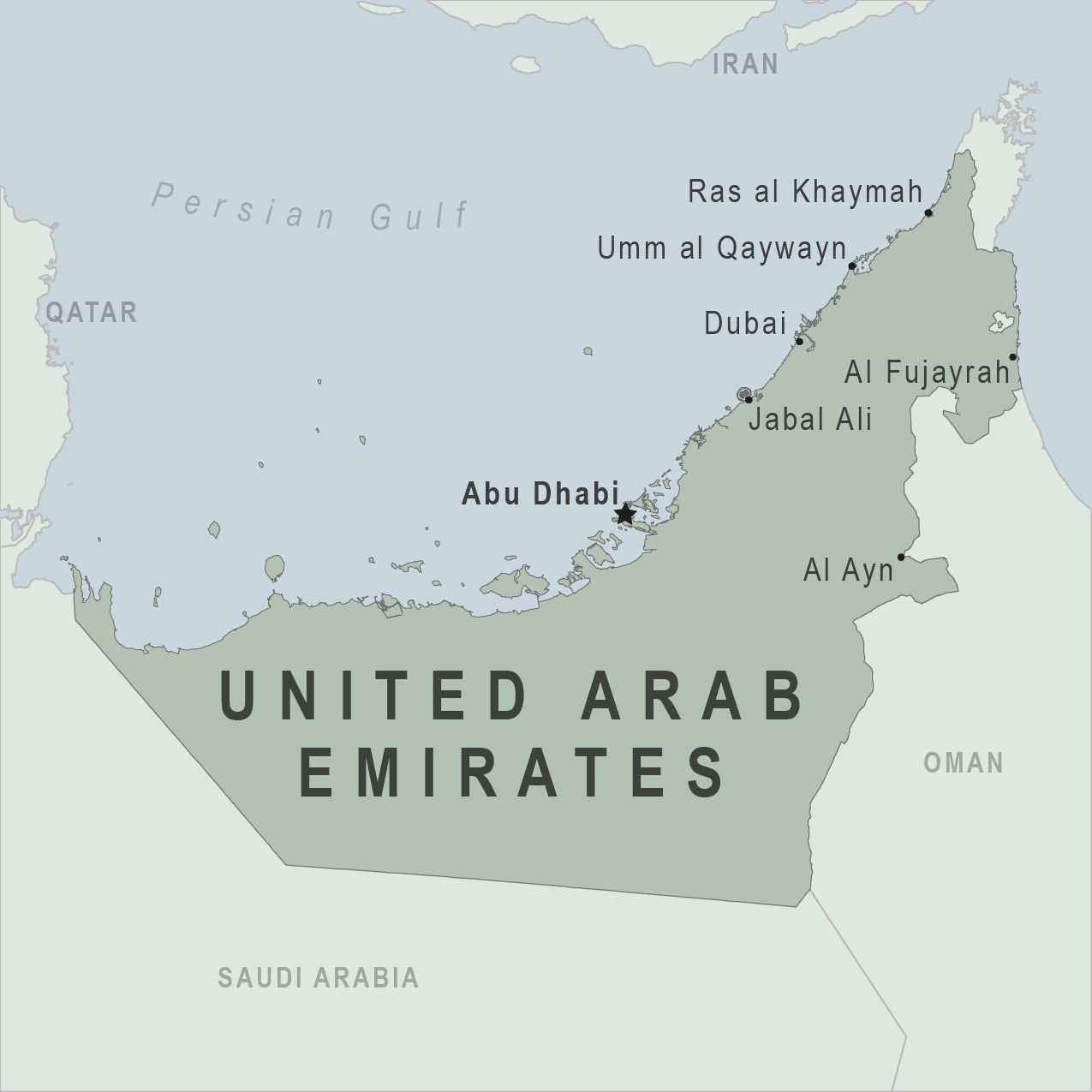
Be aware of current health issues in the United Arab Emirates. Learn how to protect yourself.
Level 1 Practice Usual Precautions
- Global Measles May 28, 2024 Many international destinations are reporting increased numbers of cases of measles. Destination List: Afghanistan, Angola, Armenia, Austria, Azerbaijan, Belarus, Benin, Burkina Faso, Burundi, Cameroon, Central African Republic, Chad, Côte d'Ivoire (Ivory Coast), Democratic Republic of the Congo, Djibouti, Equatorial Guinea, Ethiopia, Gabon, Ghana, India, Indonesia, Kazakhstan, Kyrgyzstan, Lebanon, Liberia, Libya, Malaysia, Mauritania, Nepal, Niger, Nigeria, Pakistan, Philippines, Qatar, Republic of South Sudan, Republic of the Congo, Romania, Russia, Senegal, Somalia, Sri Lanka, Sudan, Syria, Tajikistan, Togo, Turkey, United Arab Emirates, Uzbekistan, Yemen, Zambia
⇧ Top
Check the vaccines and medicines list and visit your doctor at least a month before your trip to get vaccines or medicines you may need. If you or your doctor need help finding a location that provides certain vaccines or medicines, visit the Find a Clinic page.
Routine vaccines
Recommendations.
Make sure you are up-to-date on all routine vaccines before every trip. Some of these vaccines include
- Chickenpox (Varicella)
- Diphtheria-Tetanus-Pertussis
- Flu (influenza)
- Measles-Mumps-Rubella (MMR)
Immunization schedules
All eligible travelers should be up to date with their COVID-19 vaccines. Please see Your COVID-19 Vaccination for more information.
COVID-19 vaccine
Hepatitis A
Recommended for unvaccinated travelers one year old or older going to the United Arab Emirates.
Infants 6 to 11 months old should also be vaccinated against Hepatitis A. The dose does not count toward the routine 2-dose series.
Travelers allergic to a vaccine component or who are younger than 6 months should receive a single dose of immune globulin, which provides effective protection for up to 2 months depending on dosage given.
Unvaccinated travelers who are over 40 years old, immunocompromised, or have chronic medical conditions planning to depart to a risk area in less than 2 weeks should get the initial dose of vaccine and at the same appointment receive immune globulin.
Hepatitis A - CDC Yellow Book
Dosing info - Hep A
Hepatitis B
Recommended for unvaccinated travelers younger than 60 years old traveling to the United Arab Emirates. Unvaccinated travelers 60 years and older may get vaccinated before traveling to the United Arab Emirates.
Hepatitis B - CDC Yellow Book
Dosing info - Hep B
Cases of measles are on the rise worldwide. Travelers are at risk of measles if they have not been fully vaccinated at least two weeks prior to departure, or have not had measles in the past, and travel internationally to areas where measles is spreading.
All international travelers should be fully vaccinated against measles with the measles-mumps-rubella (MMR) vaccine, including an early dose for infants 6–11 months, according to CDC’s measles vaccination recommendations for international travel .
Measles (Rubeola) - CDC Yellow Book
Dogs infected with rabies are sometimes found in the United Arab Emirates.
Rabies is also present in some terrestrial wildlife species.
If rabies exposures occur while in the United Arab Emirates, rabies vaccines are typically available throughout most of the country.
Rabies pre-exposure vaccination considerations include whether travelers 1) will be performing occupational or recreational activities that increase risk for exposure to potentially rabid animals and 2) might have difficulty getting prompt access to safe post-exposure prophylaxis.
Please consult with a healthcare provider to determine whether you should receive pre-exposure vaccination before travel.
For more information, see country rabies status assessments .
Rabies - CDC Yellow Book
Recommended for most travelers, especially those staying with friends or relatives or visiting smaller cities or rural areas.
Typhoid - CDC Yellow Book
Dosing info - Typhoid
Yellow Fever
Required for travelers ≥9 months old arriving from countries with risk for YF virus transmission; this includes >12-hour airport transits or layovers in countries with risk for YF virus transmission. 1
Yellow Fever - CDC Yellow Book
Avoid contaminated water
Leptospirosis
How most people get sick (most common modes of transmission)
- Touching urine or other body fluids from an animal infected with leptospirosis
- Swimming or wading in urine-contaminated fresh water, or contact with urine-contaminated mud
- Drinking water or eating food contaminated with animal urine
- Avoid contaminated water and soil
- Avoid floodwater
Clinical Guidance
Avoid bug bites.
Crimean-Congo Hemorrhagic fever
- Tick bite
- Touching the body fluids of a person or animal infected with CCHF
- Avoid Bug Bites
Airborne & droplet
- Breathing in air or accidentally eating food contaminated with the urine, droppings, or saliva of infected rodents
- Bite from an infected rodent
- Less commonly, being around someone sick with hantavirus (only occurs with Andes virus)
- Avoid rodents and areas where they live
- Avoid sick people
Middle East Respiratory Syndrome (MERS)
- Scientists do not fully understand how the MERS virus spreads
- May spread from to others when an infected person coughs or sneezes
- May spread to people from camels.
Middle East Respiratory virus syndrome (MERS)
Tuberculosis (TB)
- Breathe in TB bacteria that is in the air from an infected and contagious person coughing, speaking, or singing.
Learn actions you can take to stay healthy and safe on your trip. Vaccines cannot protect you from many diseases in the United Arab Emirates, so your behaviors are important.
Eat and drink safely
Food and water standards around the world vary based on the destination. Standards may also differ within a country and risk may change depending on activity type (e.g., hiking versus business trip). You can learn more about safe food and drink choices when traveling by accessing the resources below.
- Choose Safe Food and Drinks When Traveling
- Water Treatment Options When Hiking, Camping or Traveling
- Global Water, Sanitation and Hygiene | Healthy Water
- Avoid Contaminated Water During Travel
You can also visit the Department of State Country Information Pages for additional information about food and water safety.
Prevent bug bites
Bugs (like mosquitoes, ticks, and fleas) can spread a number of diseases in the United Arab Emirates. Many of these diseases cannot be prevented with a vaccine or medicine. You can reduce your risk by taking steps to prevent bug bites.
What can I do to prevent bug bites?
- Cover exposed skin by wearing long-sleeved shirts, long pants, and hats.
- Use an appropriate insect repellent (see below).
- Use permethrin-treated clothing and gear (such as boots, pants, socks, and tents). Do not use permethrin directly on skin.
- Stay and sleep in air-conditioned or screened rooms.
- Use a bed net if the area where you are sleeping is exposed to the outdoors.
What type of insect repellent should I use?
- FOR PROTECTION AGAINST TICKS AND MOSQUITOES: Use a repellent that contains 20% or more DEET for protection that lasts up to several hours.
- Picaridin (also known as KBR 3023, Bayrepel, and icaridin)
- Oil of lemon eucalyptus (OLE) or para-menthane-diol (PMD)
- 2-undecanone
- Always use insect repellent as directed.
What should I do if I am bitten by bugs?
- Avoid scratching bug bites, and apply hydrocortisone cream or calamine lotion to reduce the itching.
- Check your entire body for ticks after outdoor activity. Be sure to remove ticks properly.
What can I do to avoid bed bugs?
Although bed bugs do not carry disease, they are an annoyance. See our information page about avoiding bug bites for some easy tips to avoid them. For more information on bed bugs, see Bed Bugs .
For more detailed information on avoiding bug bites, see Avoid Bug Bites .
Stay safe outdoors
If your travel plans in the United Arab Emirates include outdoor activities, take these steps to stay safe and healthy during your trip.
- Stay alert to changing weather conditions and adjust your plans if conditions become unsafe.
- Prepare for activities by wearing the right clothes and packing protective items, such as bug spray, sunscreen, and a basic first aid kit.
- Consider learning basic first aid and CPR before travel. Bring a travel health kit with items appropriate for your activities.
- If you are outside for many hours in heat, eat salty snacks and drink water to stay hydrated and replace salt lost through sweating.
- Protect yourself from UV radiation : use sunscreen with an SPF of at least 15, wear protective clothing, and seek shade during the hottest time of day (10 a.m.–4 p.m.).
- Be especially careful during summer months and at high elevation. Because sunlight reflects off snow, sand, and water, sun exposure may be increased during activities like skiing, swimming, and sailing.
- Very cold temperatures can be dangerous. Dress in layers and cover heads, hands, and feet properly if you are visiting a cold location.
Stay safe around water
- Swim only in designated swimming areas. Obey lifeguards and warning flags on beaches.
- Practice safe boating—follow all boating safety laws, do not drink alcohol if driving a boat, and always wear a life jacket.
- Do not dive into shallow water.
- Do not swim in freshwater in developing areas or where sanitation is poor.
- Avoid swallowing water when swimming. Untreated water can carry germs that make you sick.
- To prevent infections, wear shoes on beaches where there may be animal waste.
Keep away from animals
Most animals avoid people, but they may attack if they feel threatened, are protecting their young or territory, or if they are injured or ill. Animal bites and scratches can lead to serious diseases such as rabies.
Follow these tips to protect yourself:
- Do not touch or feed any animals you do not know.
- Do not allow animals to lick open wounds, and do not get animal saliva in your eyes or mouth.
- Avoid rodents and their urine and feces.
- Traveling pets should be supervised closely and not allowed to come in contact with local animals.
- If you wake in a room with a bat, seek medical care immediately. Bat bites may be hard to see.
All animals can pose a threat, but be extra careful around dogs, bats, monkeys, sea animals such as jellyfish, and snakes. If you are bitten or scratched by an animal, immediately:
- Wash the wound with soap and clean water.
- Go to a doctor right away.
- Tell your doctor about your injury when you get back to the United States.
Consider buying medical evacuation insurance. Rabies is a deadly disease that must be treated quickly, and treatment may not be available in some countries.
Reduce your exposure to germs
Follow these tips to avoid getting sick or spreading illness to others while traveling:
- Wash your hands often, especially before eating.
- If soap and water aren’t available, clean hands with hand sanitizer (containing at least 60% alcohol).
- Don’t touch your eyes, nose, or mouth. If you need to touch your face, make sure your hands are clean.
- Cover your mouth and nose with a tissue or your sleeve (not your hands) when coughing or sneezing.
- Try to avoid contact with people who are sick.
- If you are sick, stay home or in your hotel room, unless you need medical care.
Avoid sharing body fluids
Diseases can be spread through body fluids, such as saliva, blood, vomit, and semen.
Protect yourself:
- Use latex condoms correctly.
- Do not inject drugs.
- Limit alcohol consumption. People take more risks when intoxicated.
- Do not share needles or any devices that can break the skin. That includes needles for tattoos, piercings, and acupuncture.
- If you receive medical or dental care, make sure the equipment is disinfected or sanitized.
Know how to get medical care while traveling
Plan for how you will get health care during your trip, should the need arise:
- Carry a list of local doctors and hospitals at your destination.
- Review your health insurance plan to determine what medical services it would cover during your trip. Consider purchasing travel health and medical evacuation insurance.
- Carry a card that identifies, in the local language, your blood type, chronic conditions or serious allergies, and the generic names of any medications you take.
- Some prescription drugs may be illegal in other countries. Call the United Arab Emirates’s embassy to verify that all of your prescription(s) are legal to bring with you.
- Bring all the medicines (including over-the-counter medicines) you think you might need during your trip, including extra in case of travel delays. Ask your doctor to help you get prescriptions filled early if you need to.
Many foreign hospitals and clinics are accredited by the Joint Commission International. A list of accredited facilities is available at their website ( www.jointcommissioninternational.org ).
In some countries, medicine (prescription and over-the-counter) may be substandard or counterfeit. Bring the medicines you will need from the United States to avoid having to buy them at your destination.
Select safe transportation
Motor vehicle crashes are the #1 killer of healthy US citizens in foreign countries.
In many places cars, buses, large trucks, rickshaws, bikes, people on foot, and even animals share the same lanes of traffic, increasing the risk for crashes.
Be smart when you are traveling on foot.
- Use sidewalks and marked crosswalks.
- Pay attention to the traffic around you, especially in crowded areas.
- Remember, people on foot do not always have the right of way in other countries.
Riding/Driving
Choose a safe vehicle.
- Choose official taxis or public transportation, such as trains and buses.
- Ride only in cars that have seatbelts.
- Avoid overcrowded, overloaded, top-heavy buses and minivans.
- Avoid riding on motorcycles or motorbikes, especially motorbike taxis. (Many crashes are caused by inexperienced motorbike drivers.)
- Choose newer vehicles—they may have more safety features, such as airbags, and be more reliable.
- Choose larger vehicles, which may provide more protection in crashes.
Think about the driver.
- Do not drive after drinking alcohol or ride with someone who has been drinking.
- Consider hiring a licensed, trained driver familiar with the area.
- Arrange payment before departing.
Follow basic safety tips.
- Wear a seatbelt at all times.
- Sit in the back seat of cars and taxis.
- When on motorbikes or bicycles, always wear a helmet. (Bring a helmet from home, if needed.)
- Avoid driving at night; street lighting in certain parts of the United Arab Emirates may be poor.
- Do not use a cell phone or text while driving (illegal in many countries).
- Travel during daylight hours only, especially in rural areas.
- If you choose to drive a vehicle in the United Arab Emirates, learn the local traffic laws and have the proper paperwork.
- Get any driving permits and insurance you may need. Get an International Driving Permit (IDP). Carry the IDP and a US-issued driver's license at all times.
- Check with your auto insurance policy's international coverage, and get more coverage if needed. Make sure you have liability insurance.
- Avoid using local, unscheduled aircraft.
- If possible, fly on larger planes (more than 30 seats); larger airplanes are more likely to have regular safety inspections.
- Try to schedule flights during daylight hours and in good weather.
Medical Evacuation Insurance
If you are seriously injured, emergency care may not be available or may not meet US standards. Trauma care centers are uncommon outside urban areas. Having medical evacuation insurance can be helpful for these reasons.
Helpful Resources
Road Safety Overseas (Information from the US Department of State): Includes tips on driving in other countries, International Driving Permits, auto insurance, and other resources.
The Association for International Road Travel has country-specific Road Travel Reports available for most countries for a minimal fee.
Maintain personal security
Use the same common sense traveling overseas that you would at home, and always stay alert and aware of your surroundings.
Before you leave
- Research your destination(s), including local laws, customs, and culture.
- Monitor travel advisories and alerts and read travel tips from the US Department of State.
- Enroll in the Smart Traveler Enrollment Program (STEP) .
- Leave a copy of your itinerary, contact information, credit cards, and passport with someone at home.
- Pack as light as possible, and leave at home any item you could not replace.
While at your destination(s)
- Carry contact information for the nearest US embassy or consulate .
- Carry a photocopy of your passport and entry stamp; leave the actual passport securely in your hotel.
- Follow all local laws and social customs.
- Do not wear expensive clothing or jewelry.
- Always keep hotel doors locked, and store valuables in secure areas.
- If possible, choose hotel rooms between the 2nd and 6th floors.
Healthy Travel Packing List
Use the Healthy Travel Packing List for United Arab Emirates for a list of health-related items to consider packing for your trip. Talk to your doctor about which items are most important for you.
Why does CDC recommend packing these health-related items?
It’s best to be prepared to prevent and treat common illnesses and injuries. Some supplies and medicines may be difficult to find at your destination, may have different names, or may have different ingredients than what you normally use.
If you are not feeling well after your trip, you may need to see a doctor. If you need help finding a travel medicine specialist, see Find a Clinic . Be sure to tell your doctor about your travel, including where you went and what you did on your trip. Also tell your doctor if you were bitten or scratched by an animal while traveling.
For more information on what to do if you are sick after your trip, see Getting Sick after Travel .
Map Disclaimer - The boundaries and names shown and the designations used on maps do not imply the expression of any opinion whatsoever on the part of the Centers for Disease Control and Prevention concerning the legal status of any country, territory, city or area or of its authorities, or concerning the delimitation of its frontiers or boundaries. Approximate border lines for which there may not yet be full agreement are generally marked.
Other Destinations
If you need help finding travel information:
Message & data rates may apply. CDC Privacy Policy
File Formats Help:
- Adobe PDF file
- Microsoft PowerPoint file
- Microsoft Word file
- Microsoft Excel file
- Audio/Video file
- Apple Quicktime file
- RealPlayer file
- Zip Archive file
Exit Notification / Disclaimer Policy
- The Centers for Disease Control and Prevention (CDC) cannot attest to the accuracy of a non-federal website.
- Linking to a non-federal website does not constitute an endorsement by CDC or any of its employees of the sponsors or the information and products presented on the website.
- You will be subject to the destination website's privacy policy when you follow the link.
- CDC is not responsible for Section 508 compliance (accessibility) on other federal or private website.
- Hi, My Account Subscriptions --> My KT Trading Contact Us Privacy Notice Sign Out
Thu, Jul 04, 2024 | Dhu al-Hijjah 28, 1445
Dubai 20°C
- Expo City Dubai
- Emergencies
- Ras Al Khaimah
- Umm Al Quwain
- Life and Living
- Visa & Immigration in UAE
- Banking in UAE
- Schooling in UAE
- Housing in UAE
- Ramadan 2024
- Saudi Arabia
- Philippines
- Cryptocurrency
- Infrastructure
- Currency Exchange
- Horse Racing
- Local Sports
Entertainment
- Local Events
Dubai World Cup
- Track Notes
- Big Numbers
- Daily Updates
- Arts & Culture
- Mental Health
- Relationships
- Staycations
- UAE Attractions
- Tech Reviews
- Motoring Reviews
- Movie Reviews
- Book reviews
- Restaurant Reviews
- Young Times
Supplements
- Back To School
- Eid-Al-Adha
- It’s Summer Time
- Leading Universities
- Higher Education
- India Real Estate Show
- Future Of Insurance
- KT Desert Drive
- New Age Finance & Accounting Summit
- Digital Health Forum
- Subscriptions
- UAE Holidays
- Latest News
- Prayer Timings
- Cinema Listings
- Inspired Living
- Advertise With Us
- Privacy Notice
KT APPDOWNLOAD

- coronavirus
Travelling to UAE from restricted countries? Here are the rules for flights to Dubai, Sharjah, Ras Al Khaimah
Top stories.

Dubai: Sheikh Mohammed announces Dh30-billion rain drainage network

Paid parking in Dubai: Residents face up to Dh4,000 extra yearly costs when new rates kick in

UAE: Worker wins Dh1 million in National Bonds draw after saving Dh100 every month

Dubai - The UAE started welcoming holders of tourist visas, entry permits and other types of e-visas from August 30
By sahim salim.
- Follow us on

Published: Wed 1 Sep 2021, 11:35 AM
Last updated: Wed 1 Sep 2021, 12:59 PM
Holders of any type of visas are now flying to the UAE from countries where travel was restricted previously.
While the UAE had opened up to residency visa holders from restricted countries on August 5, it started welcoming holders of tourist visas, entry permits and other types of e-visas from August 30.
However, the travel procedures and rules vary from emirate to emirate. For instance, Sharjah requires tourists to register prior to travelling, while Dubai does not.
Here is a lowdown of the rules of travelling from restricted countries to Dubai, Sharjah and Ras Al Khaimah.
According to Dubai-based Emirates airline, passengers with newly-issued residence or employment visas, short stay or long stay visas, visit visas, or visas on arrival can travel. The following apply to those travelling from India, Pakistan, Sri Lanka, South Africa, and Uganda.
- A pre-travel approval from the ICA or GDRFA is not required .
- Covid vaccination is not mandatory, according to multiple tweets put out by the airline’s customer service account, Emirates Support.
- A negative result of a Covid‑19 PCR test conducted no more than 48 hours prior to travel. The test must have been conducted from an approved health facility and the result must have a QR code.
- A rapid PCR test report with a QR code for a test conducted at the departure airport within six hours of departure.
>> Sharjah and Ras Al Khaimah
Based on directives issued by authorities in the UAE, Sharjah-based Air Arabia and Indian carrier Air India Express have issued the following guidelines for e-visa holders travelling to Sharjah and Ras Al Khaimah:
- Covid-vaccinated passengers with e-visas are allowed to travel to Sharjah and Ras Al Khaimah.
- All passengers arriving in Sharjah and Ras Al Khaimah with a newly-issued e-visa must register prior to their departure: https://smartservices.ica.gov.ae/echannels/web/client/guest/index.html#/registerArrivals
- They must be fully vaccinated with a WHO-approved Covid-19 vaccine.
- They must provide a vaccination certificate when departing.
- Passengers are required to take a Covid-19 PCR test, conducted within 48 hours of the flight arrival time.
- They are also required to conduct a rapid PCR test at the airport prior to departure.
- They will undergo another PCR test in Sharjah.
>> Dubai flights: Passengers from 5 countries can't travel as rapid PCR test facilities not available
>> UAE flights: Airfares double as demand for travel soars
>> UAE flights: Tourists start arriving at Dubai International Airport
More news from
Pakistan blocks 210,000 sim cards to encourage tax payment.
Only 5.2 million people of the more than 240 million population filed income tax returns in 2022
business 1 hour ago -->
BOP expands globally with new offices in UAE and Bahrain
By establishing a presence in these key international markets, BOP aims to foster stronger financial ties and offer its customers enhanced banking solutions that meet their evolving needs
kt network 1 hour ago -->
Biden's childhood hometown 'embarrassed' by debate meltdown
Pennsylvania remains a key battleground in the 2024 election, and national polls are showing warning signs after the debate against Trump sparked widespread panic over Biden's ability to finish a second term
world 1 hour ago -->
Dubai: World's largest car market to come up under new deal
The project is part of the Dubai Economic Agenda D33, which seeks to double the size of the emirate's economy by 2033
uae 1 hour ago -->
restaurant reviews
Restaurant Review: A new tapas bar in Dubai ticks all the right boxes
Indi 16 at Citimax Hotel Business Bay is for those who like good food and good cheer
restaurant reviews 1 hour ago -->
India's World Cup winners meet PM Modi before victory parade
Modi posed for a photograph with the team before sitting down for a chat with the players
cricket 1 hour ago -->
Hurricane Beryl heads for Cayman Islands, Mexico after striking Jamaica
At least 10 people have died so far as the hurricane ravaged the region
americas 1 hour ago -->
Thousands told to flee raging California wildfire
Climate scientists say the western US is undergoing a decades-long aridification as weather patterns change, at least in part because of human-caused global warming
Type your keywords
United Arab Emirates Travel Restrictions
Traveler's COVID-19 vaccination status
Traveling from the United States to the United Arab Emirates
Open for vaccinated visitors
COVID-19 testing
Not required
Not required for vaccinated visitors
Restaurants
Not required on public transportation.
United Arab Emirates entry details and exceptions
Ready to travel, find flights to the united arab emirates, find stays in the united arab emirates, explore more countries on travel restrictions map, destinations you can travel to now, dominican republic, netherlands, philippines, puerto rico, switzerland, united arab emirates, united kingdom, know when to go.
Sign up for email alerts as countries begin to open - choose the destinations you're interested in so you're in the know.
Can I travel to the United Arab Emirates from the United States?
Most visitors from the United States, regardless of vaccination status, can enter the United Arab Emirates.
Can I travel to the United Arab Emirates if I am vaccinated?
Fully vaccinated visitors from the United States can enter the United Arab Emirates without restrictions.
Can I travel to the United Arab Emirates without being vaccinated?
Unvaccinated visitors from the United States can enter the United Arab Emirates without restrictions.
Do I need a COVID test to enter the United Arab Emirates?
Visitors from the United States are not required to present a negative COVID-19 PCR test or antigen result upon entering the United Arab Emirates.
Can I travel to the United Arab Emirates without quarantine?
Travelers from the United States are not required to quarantine.
Do I need to wear a mask in the United Arab Emirates?
Mask usage in the United Arab Emirates is not required on public transportation.
Are the restaurants and bars open in the United Arab Emirates?
Restaurants in the United Arab Emirates are open. Bars in the United Arab Emirates are .
Cookies on GOV.UK
We use some essential cookies to make this website work.
We’d like to set additional cookies to understand how you use GOV.UK, remember your settings and improve government services.
We also use cookies set by other sites to help us deliver content from their services.
You have accepted additional cookies. You can change your cookie settings at any time.
You have rejected additional cookies. You can change your cookie settings at any time.
Bring photo ID to vote Check what photo ID you'll need to vote in person in the General Election on 4 July.
- Passports, travel and living abroad
- Travel abroad
- Foreign travel advice
United Arab Emirates
Warnings and insurance.
The Foreign, Commonwealth & Development Office (FCDO) provides advice about risks of travel to help British nationals make informed decisions. Find out more about FCDO travel advice .
Before you travel
No travel can be guaranteed safe. Read all the advice in this guide as well as support for British nationals abroad which includes:
- advice on preparing for travel abroad and reducing risks
- information for women, LGBT+ and disabled travellers
Follow and contact FCDO travel on Twitter , Facebook and Instagram . You can also sign up to get email notifications when this advice is updated.
Travel insurance
If you choose to travel, research your destinations and get appropriate travel insurance . Insurance should cover your itinerary, planned activities and expenses in an emergency.
Related content
Is this page useful.
- Yes this page is useful
- No this page is not useful
Help us improve GOV.UK
Don’t include personal or financial information like your National Insurance number or credit card details.
To help us improve GOV.UK, we’d like to know more about your visit today. Please fill in this survey (opens in a new tab) .
- Skip to main content
- Skip to "About this site"
Language selection
Search travel.gc.ca.
Help us to improve our website. Take our survey !
COVID-19: travel health notice for all travellers
United Arab Emirates travel advice
Latest updates: Editorial change
Last updated: June 5, 2024 06:24 ET
On this page
Safety and security, entry and exit requirements, laws and culture, natural disasters and climate, united arab emirates - exercise a high degree of caution.
Exercise a high degree of caution in the United Arab Emirates due to the threat of terrorism.
Back to top
There’s an ongoing threat of terrorism. Terrorist groups have indicated their intention to target the United Arab Emirates (UAE). Enhanced security measures are in place, and Emirati authorities may reinforce them on short notice.
Terrorist attacks could occur at any time.
Targets could include:
- government buildings, military installations and schools
- places of worship
- airports and other transportation hubs and networks
- public areas such as tourist attractions, restaurants, bars, coffee shops, shopping centres, markets, hotels and other sites frequented by foreigners
Always be aware of your surroundings when in public places. Be particularly vigilant during sporting events, religious holidays and other public celebrations. Terrorists may use such occasions to mount attacks.
Missile strikes and drones
Conflicts in the Middle East and the Gulf region can affect the UAE. Regional tensions can flare up at any time, resulting in an unpredictable and volatile security situation.
Armed groups in the region have publicly stated their intention to target neighbouring countries, including the UAE, with drones and missiles. Drone attacks continue to either reach UAE territory or be intercepted over the country.
Missiles and drones have reached:
- urban areas
- military installations
- oil industry infrastructure
- public facilities, such as airports
Their interception may cause scattered debris or fragments.
During missile and drone strikes:
- seek shelter
- stay away from doors and windows
- follow the instructions of local authorities
If you encounter debris or fragments:
- don’t get close to or touch them
- move away from them immediately
- contact local authorities
The crime rate is low. Petty crime, such as pickpocketing, purse snatching and theft from cars may occur.
During your stay:
- make sure that your personal belongings, including your passport and other travel documents, are secure at all times
- don’t leave personal items and documents in plain sight in a vehicle
- keep your car doors locked and windows closed at all times
Violent crime is rare.
Credit card and ATM fraud
Credit card and ATM fraud occur. Be cautious when using debit or credit cards:
- pay careful attention when your cards are being handled by others
- use ATMs located in well-lit public areas or inside a bank or business
- avoid using card readers with an irregular or unusual feature
- cover the keypad with one hand when entering your PIN
- check for any unauthorized transactions on your account statements
Cybercrime, malware attacks and online extortion are common in the UAE. Perpetrators may compromise public Wi-Fi networks to steal credit card or personal information.
- Avoid using public Wi-Fi networks
- Avoid making purchases on unencrypted websites
- Be cautious when posting information on social media
- Be particularly vigilant when contacting or meeting individuals known over the Internet
Telephone scams
Foreigners have received calls from scammers claiming to be local authorities or financial institutions. The caller may try to collect personal information or request a fund transfer to resolve administrative or customs issues.
Don’t send any money or personal information in this type of situation.
Romance scams
Romance scams are common. Victims of these types of scams have lost thousands of dollars. Before travelling to the UAE to visit someone you met online:
- keep in mind that you may be the victim of a scam
- inform yourself about the country’s customs and laws on conjugal relations and marriage
- be sure to retain possession of your return plane ticket, money, and passport
Useful links
- Overseas fraud
- Cyber security while travelling
Women’s safety
Although rare, women travelling alone may be subject to some forms of harassment, verbal abuse, or physical assaults.
Local authorities may not respond adequately to reports of sexual violence and harassment. Emirati authorities have detained women reporting sexual assault. The victim must prove that the sex was not consensual to avoid being charged. The notion of sexual consent may differ substantially from the Canadian context.
If you are the victim of a sexual assault, you should report it immediately to the nearest Government of Canada office.
- Avoid travelling alone, especially at night
- Remain particularly vigilant in less populous areas
Be careful when dealing with strangers or recent acquaintances
Advice for women travellers
Spiked food and drinks
Snacks, beverages, gum and cigarettes may contain drugs that could put you at risk of sexual assault and robbery.
- Be wary of accepting these items from new acquaintances
- Never leave food or drinks unattended or in the care of strangers
Water activities
Coastal waters can be dangerous. Rip currents occur at beaches and can sweep swimmers out to sea.
Rescue services may not be consistent with international standards. Some beaches don’t have lifeguards or warning flags.
- Only participate in scuba diving and other water activities with a well-established company
- Don’t swim alone, after hours or outside marked areas
- Consult residents and tour operators for information on possible hazards and safe swimming areas
- Monitor weather warnings
- Follow the instructions of local authorities
Water safety abroad
Adventure tourism
Desert expeditions or trekking can be dangerous, especially if they are not well organized. Trails are not always marked, and weather conditions can change rapidly.
If you undertake desert expeditions:
- never do so alone
- always hire an experienced guide from a reputable company
- travel in a 4 x 4 vehicle
- buy travel insurance that includes helicopter rescue and medical evacuation
- ensure that your physical condition is good enough to meet the challenges of your activity
- avoid venturing off marked trails
- ensure that you’re properly equipped and carry sufficient water supply
- know the symptoms of dehydration and heatstroke, both of which can be fatal
- ensure that you’re well informed about weather and other conditions that may pose a hazard
- inform a family member or friend of your itinerary, including when you expect to be back
- obtain detailed information on each activity before setting out
Road safety
Road safety varies across the UAE.
Accidents causing fatalities are common.
Pedestrians should be particularly careful and should always use designated crossings, pedestrian bridges or underpasses.
Road conditions
Road conditions are excellent throughout the UAE. Driving conditions may be hazardous during sandstorms or foggy conditions due to limited visibility.
- Avoid off-road driving unless you’re in a convoy of 4 x 4 vehicles
- Leave your travel itinerary with a third party
- Ensure that you’re well prepared with a cell phone and a sufficient supply of gasoline, water and food
Driving habits
Drivers can be reckless. They often tailgate and drive at excessive speeds.
If you choose to drive in the UAE:
- always drive defensively
- maintain distance from other vehicles on the road
- familiarize yourself with your itinerary before leaving
- always carry a cell phone and charger
- keep a list of emergency numbers with you
Public transportation
The emirates of Abu Dhabi, Dubai and Sharjah, have reliable and modern public transportation systems. Public transportation options are more limited in the other emirates.
Public buses in the UAE are generally modern, safe and efficient. Most emirates have public buses and inter-emirates buses operating on their own schedule.
Taxis are convenient to travel within cities and between the emirates.
Street taxis use meters while private taxis have flat rates.
Pink taxis (in Dubai) and purple taxis (in Abu Dhabi) are reserved for and driven by women.
Special taxis for people with special needs or disabilities are also available.
- Use only officially marked taxis or trusted ride-sharing app
- Avoid sharing a taxi with strangers
If using a private taxi, negotiate the fare in advance
Pink taxis - UAE Government
There are territorial disputes between the UAE and Iran in the Gulf over the islands of:
- Greater Tunb
- Lesser Tunb
Be cautious if you travel by sea in the Strait of Hormuz due to tense encounters that could lead to vessel and passenger detention.
We do not make assessments on the compliance of foreign domestic airlines with international safety standards.
Information about foreign domestic airlines
Every country or territory decides who can enter or exit through its borders. The Government of Canada cannot intervene on your behalf if you do not meet your destination’s entry or exit requirements.
We have obtained the information on this page from the authorities of the United Arab Emirates. It can, however, change at any time.
Verify this information with the Foreign Representatives in Canada .
Entry requirements vary depending on the type of passport you use for travel.
Before you travel, check with your transportation company about passport requirements. Its rules on passport validity may be more stringent than the country’s entry rules.
Regular Canadian passport
Your passport must be valid for at least 6 months beyond your date of entry into the United Arab Emirates.
Passport for official travel
Different entry rules may apply.
Official travel
Passport with “X” gender identifier
While the Government of Canada issues passports with an “X” gender identifier, it cannot guarantee your entry or transit through other countries. You might face entry restrictions in countries that do not recognize the “X” gender identifier. Before you leave, check with the closest foreign representative for your destination.
Other travel documents
Different entry rules may apply when travelling with a temporary passport or an emergency travel document. Before you leave, check with the closest foreign representative for your destination.
- Foreign Representatives in Canada
- Canadian passports
Other entry requirements
The authorities of the United Arab Emirates only accept Canadian temporary passports for exit and transit. Travellers cannot enter the UAE when travelling with a temporary passport or an emergency travel document.
Tourist visa: not required Business visa: required Student visa: required
If you’re entering the UAE as a tourist, you must obtain an entry stamp at the port of entry. This entry stamp is free and valid for 30 days. Ahead of the expiry of the initial 30-day period, you may request a validity extension for an additional 30 days.
- Foreign Representatives in Canada
- Visa/Entry Permit Information – UAE Government
- Smart services - Federal authority for identity and citizenship of the UAE
Health entry requirements
Medical tests, including tests for human immunodeficiency virus (HIV) and tuberculosis infections, are required to obtain or renew a work or residency permit. Emirati authorities don’t recognize foreign-issued HIV test results.
If you test positive for HIV or another communicable disease such as hepatitis or tuberculosis, you may be subject to:
- deportation
- mandatory treatment
It’s also forbidden to enter the UAE with HIV/AIDS antiretroviral medication for personal use. If you do so, you may be subject to:
Exit requirements
You must exit the UAE with the passport you used for entry.
If you obtained a new passport during your stay in the UAE, you should consult the immigration authorities before travelling to ensure your visa was properly transferred to the new document.
Previous or expired visas must be formally cancelled by the organization or the individuals sponsoring your work or residency visa. If your previous visa has not been cancelled, you may be prevented from leaving the UAE or face difficulties returning in the future.
UAE authorities may place an exit ban on certain individuals to prevent them from leaving the country.
An exit ban can relate to investigations into:
- an individual, their family or an employer
- criminal and civil matters, including business disputes
- employment without a valid work permit
- unpaid financial debts
An exit ban can be requested by people involved in any of these circumstances. You may not be aware that authorities have placed an exit ban on you until you try to leave the country.
Your passport may be seized until the case is fully investigated and settled.
If you face an exit ban, you should seek legal advice.
- Children and travel
Children born to a father who holds Emirati citizenship acquire UAE citizenship at birth, regardless of where they were born.
They must enter and leave the country on a UAE passport.
Travelling with children
Yellow fever
Learn about potential entry requirements related to yellow fever (vaccines section).
Relevant Travel Health Notices
- Global Measles Notice - 13 March, 2024
- COVID-19 and International Travel - 13 March, 2024
This section contains information on possible health risks and restrictions regularly found or ongoing in the destination. Follow this advice to lower your risk of becoming ill while travelling. Not all risks are listed below.
Consult a health care professional or visit a travel health clinic preferably 6 weeks before you travel to get personalized health advice and recommendations.
Routine vaccines
Be sure that your routine vaccinations , as per your province or territory , are up-to-date before travelling, regardless of your destination.
Some of these vaccinations include measles-mumps-rubella (MMR), diphtheria, tetanus, pertussis, polio, varicella (chickenpox), influenza and others.
Pre-travel vaccines and medications
You may be at risk for preventable diseases while travelling in this destination. Talk to a travel health professional about which medications or vaccines may be right for you, based on your destination and itinerary.
Yellow fever is a disease caused by a flavivirus from the bite of an infected mosquito.
Travellers get vaccinated either because it is required to enter a country or because it is recommended for their protection.
- There is no risk of yellow fever in this country.
Country Entry Requirement*
- Proof of vaccination is required if you are coming from or have transited through an airport of a country where yellow fever occurs.
Recommendation
- Vaccination is not recommended.
- Discuss travel plans, activities, and destinations with a health care professional.
- Contact a designated Yellow Fever Vaccination Centre well in advance of your trip to arrange for vaccination.
About Yellow Fever
Yellow Fever Vaccination Centres in Canada * It is important to note that country entry requirements may not reflect your risk of yellow fever at your destination. It is recommended that you contact the nearest diplomatic or consular office of the destination(s) you will be visiting to verify any additional entry requirements.
There is a risk of hepatitis A in this destination. It is a disease of the liver. People can get hepatitis A if they ingest contaminated food or water, eat foods prepared by an infectious person, or if they have close physical contact (such as oral-anal sex) with an infectious person, although casual contact among people does not spread the virus.
Practise safe food and water precautions and wash your hands often. Vaccination is recommended for all travellers to areas where hepatitis A is present.
Measles is a highly contagious viral disease. It can spread quickly from person to person by direct contact and through droplets in the air.
Anyone who is not protected against measles is at risk of being infected with it when travelling internationally.
Regardless of where you are going, talk to a health care professional before travelling to make sure you are fully protected against measles.
Hepatitis B is a risk in every destination. It is a viral liver disease that is easily transmitted from one person to another through exposure to blood and body fluids containing the hepatitis B virus. Travellers who may be exposed to blood or other bodily fluids (e.g., through sexual contact, medical treatment, sharing needles, tattooing, acupuncture or occupational exposure) are at higher risk of getting hepatitis B.
Hepatitis B vaccination is recommended for all travellers. Prevent hepatitis B infection by practicing safe sex, only using new and sterile drug equipment, and only getting tattoos and piercings in settings that follow public health regulations and standards.
Coronavirus disease (COVID-19) is an infectious viral disease. It can spread from person to person by direct contact and through droplets in the air.
It is recommended that all eligible travellers complete a COVID-19 vaccine series along with any additional recommended doses in Canada before travelling. Evidence shows that vaccines are very effective at preventing severe illness, hospitalization and death from COVID-19. While vaccination provides better protection against serious illness, you may still be at risk of infection from the virus that causes COVID-19. Anyone who has not completed a vaccine series is at increased risk of being infected with the virus that causes COVID-19 and is at greater risk for severe disease when travelling internationally.
Before travelling, verify your destination’s COVID-19 vaccination entry/exit requirements. Regardless of where you are going, talk to a health care professional before travelling to make sure you are adequately protected against COVID-19.
The best way to protect yourself from seasonal influenza (flu) is to get vaccinated every year. Get the flu shot at least 2 weeks before travelling.
The flu occurs worldwide.
- In the Northern Hemisphere, the flu season usually runs from November to April.
- In the Southern Hemisphere, the flu season usually runs between April and October.
- In the tropics, there is flu activity year round.
The flu vaccine available in one hemisphere may only offer partial protection against the flu in the other hemisphere.
The flu virus spreads from person to person when they cough or sneeze or by touching objects and surfaces that have been contaminated with the virus. Clean your hands often and wear a mask if you have a fever or respiratory symptoms.
In this destination, rabies may be present in some wildlife species, including bats. Rabies is a deadly disease that spreads to humans primarily through bites or scratches from an infected animal.
If you are bitten or scratched by an animal while travelling, immediately wash the wound with soap and clean water and see a health care professional.
Before travel, discuss rabies vaccination with a health care professional. It may be recommended for travellers who will be working directly with wildlife.
Safe food and water precautions
Many illnesses can be caused by eating food or drinking beverages contaminated by bacteria, parasites, toxins, or viruses, or by swimming or bathing in contaminated water.
- Learn more about food and water precautions to take to avoid getting sick by visiting our eat and drink safely abroad page. Remember: Boil it, cook it, peel it, or leave it!
- Avoid getting water into your eyes, mouth or nose when swimming or participating in activities in freshwater (streams, canals, lakes), particularly after flooding or heavy rain. Water may look clean but could still be polluted or contaminated.
- Avoid inhaling or swallowing water while bathing, showering, or swimming in pools or hot tubs.
Typhoid is a bacterial infection spread by contaminated food or water. Risk is higher among children, travellers going to rural areas, travellers visiting friends and relatives or those travelling for a long period of time.
Travellers visiting regions with a risk of typhoid, especially those exposed to places with poor sanitation, should speak to a health care professional about vaccination.
Insect bite prevention
Many diseases are spread by the bites of infected insects such as mosquitoes, ticks, fleas or flies. When travelling to areas where infected insects may be present:
- Use insect repellent (bug spray) on exposed skin
- Cover up with light-coloured, loose clothes made of tightly woven materials such as nylon or polyester
- Minimize exposure to insects
- Use mosquito netting when sleeping outdoors or in buildings that are not fully enclosed
To learn more about how you can reduce your risk of infection and disease caused by bites, both at home and abroad, visit our insect bite prevention page.
Find out what types of insects are present where you’re travelling, when they’re most active, and the symptoms of the diseases they spread.
There is a risk of chikungunya in this country. The risk may vary between regions of a country. Chikungunya is a virus spread through the bite of an infected mosquito. Chikungunya can cause a viral disease that typically causes fever and pain in the joints. In some cases, the joint pain can be severe and last for months or years.
Protect yourself from mosquito bites at all times. There is no vaccine available for chikungunya.
Animal precautions
Some infections, such as rabies and influenza, can be shared between humans and animals. Certain types of activities may increase your chance of contact with animals, such as travelling in rural or forested areas, camping, hiking, and visiting wet markets (places where live animals are slaughtered and sold) or caves.
Travellers are cautioned to avoid contact with animals, including dogs, livestock (pigs, cows), monkeys, snakes, rodents, birds, and bats, and to avoid eating undercooked wild game.
Closely supervise children, as they are more likely to come in contact with animals.
Cases of Middle East respiratory syndrome (MERS) have been reported in this destination. The risk to travellers is low; MERS is primarily spread through contact with camels or camel-based products (raw milk, meat, urine). It can also spread through close contact, such as when caring for an infected person.
Avoid contact with animals (especially camels), camel-based products, and wash your hands frequently.
Prevention of Middle East respiratory syndrome (MERS)
MERS symptoms range from mild and flu-like to more severe pneumonia-like symptoms, and can result in death.
There is no vaccine or medication that protects against MERS.
Person-to-person infections
Stay home if you’re sick and practise proper cough and sneeze etiquette , which includes coughing or sneezing into a tissue or the bend of your arm, not your hand. Reduce your risk of colds, the flu and other illnesses by:
- washing your hands often
- avoiding or limiting the amount of time spent in closed spaces, crowded places, or at large-scale events (concerts, sporting events, rallies)
- avoiding close physical contact with people who may be showing symptoms of illness
Sexually transmitted infections (STIs) , HIV , and mpox are spread through blood and bodily fluids; use condoms, practise safe sex, and limit your number of sexual partners. Check with your local public health authority pre-travel to determine your eligibility for mpox vaccine.
Medical services and facilities
Good health care is available throughout the emirates. However, it may vary significantly from facility to facility, particularly outside of large cities.
Private clinics and hospitals are well equipped. Services may be expensive, but they usually have sufficient qualified medical personnel speaking English well.
Make sure you get travel insurance that includes coverage for medical evacuation and hospital stays.
Travel health and safety
Prescription medication
Some prescription medications may not be available in the UAE.
If you take prescription medication, you’re responsible for determining its legality in the country.
- Bring enough of your medication with you
- Always keep your medication in the original container
- Pack your medication in your carry-on luggage
- Carry a paper and an electronic copy of your prescriptions
Keep in Mind...
The decision to travel is the sole responsibility of the traveller. The traveller is also responsible for his or her own personal safety.
Be prepared. Do not expect medical services to be the same as in Canada. Pack a travel health kit , especially if you will be travelling away from major city centres.
You must abide by local laws.
Learn about what you should do and how we can help if you are arrested or detained abroad .
Penalties for breaking the law in the UAE can be more severe than in Canada, even for similar offences. No transfer of offender's treaty exists between Canada and the UAE. If you’re convicted of a serious crime, you must serve your jail sentence in the UAE.
Legal process
UAE authorities routinely notify the Embassy of Canada or Consulate following the arrest of a Canadian citizen.
If you are arrested, request that the arresting authorities immediately notify the nearest Canadian government office of your arrest . If you are not allowed to do so, ask a friend or family member to contact the Embassy or Consulate of Canada.
The UAE and Canadian criminal law systems are significantly different. Laws, penalties and legal procedures vary according to the emirate.
Detention during the investigative period is common and can be lengthy. You may be held without access to legal counsel or consular assistance. You may also have to remain in the UAE for a parole period after your release.
If you’re involved in legal proceedings, local authorities can prevent you from leaving the UAE by withholding your passport or enforcing an exit ban. Familiarize yourself with the rules and laws of each emirate to which you intend to travel.
Overview of the criminal law system in the United Arab Emirates
Death penalty
Although rarely carried out, the death penalty can be applied in the UAE.
If you are convicted of a crime, you can face:
- corporal punishment
- the death penalty
Penalties for possession, use, or trafficking of illegal drugs are severe.
Convicted offenders can expect:
- heavy fines
- jail sentences
- the death penalty for severe offences, including drug trafficking
The UAE has a zero-tolerance policy towards drugs, even for travellers in transit. Detection of drugs (including cannabis) in blood or urine tests can also lead to a conviction.
Although it’s legal to consume alcohol in private homes and licensed venues, it’s a punishable offence to drink or be under the influence of alcohol in public. Even passengers in transit through the UAE can be arrested if they’re under the influence of alcohol.
Don’t drink alcohol outside private homes or licensed venues.
Drugs, alcohol and travel
Medications
Certain prescription and over-the-counter medications legally available in Canada, such as codeine and psychiatric medications, are classified as controlled substances in the UAE. It’s illegal to bring them into the country, even in small quantities, without prior permission from the UAE Ministry of Health.
If you attempt to bring banned medication into the UAE without prior approval and required documentation, you may be subject to:
- confiscation of medication
Medical tests are mandatory to obtain or renew your residency permit. You could face prosecution if traces of prohibited substances are detected in your urine or blood sample, even if you haven’t imported the medication into the UAE.
Consult the Ministry of Health and Prevention’s list of controlled medicines to determine if you must obtain a permission to import any required medication. You can obtain a permission by creating a profile online and completing an electronic form.
- List of controlled medicines – UAE government
- Issuing permission to import medicines for personal use – UAE government
2SLGBTQI+ travellers
UAE law criminalizes sexual acts and relationships between persons of the same sex.
2SLGBTQI+ travellers could be detained based on their sexual orientation, gender identity, gender expression, or sex characteristics. They could also be detained and face other charges such as:
- cross dressing
- gross indecency
- offence to public morals
2SLGBTQI+ travellers could face:
They should carefully consider the risks of travelling to the UAE.
Travel and your sexual orientation, gender identity, gender expression and sex characteristics
Dress and behaviour
UAE customs, laws and regulations adhere closely to Islamic practices and beliefs. Public displays of affection, including holding hands and kissing, may attract the attention of local authorities. Verbal insults and obscene gestures may be considered criminal acts.
Foreign female travellers are not expected to wear head covers. However, revealing clothing is considered inappropriate.
To avoid offending local sensitivities:
- dress conservatively
- behave discreetly
- respect religious and social traditions
- interact on social media with the same care as you would in person
- seek permission from locals before photographing them
In 2024, the lunar month of Ramadan is expected to begin on or around March 10.
In public, between sunrise and sunset, refrain from:
In Abu Dhabi and Dubai during Ramadan, restaurants remain open, serving food as normal. Most government and public sector businesses have reduced working hours.
Religious proselytism
Religious proselytism is illegal.
You should avoid engaging in religious activities that contradict or challenge Islamic teachings and values. This includes preaching, possessing or distributing religious literature or material.
Lèse-majesté
It’s illegal to criticize or disrespect the UAE’s:
- ruling families
- political system
- institutions
This includes comments made on social media.
Punishment can be severe, including lengthy jail terms.
Dual citizenship
Dual citizenship is legally recognized in the UAE.
If you are a Canadian citizen, but also a citizen of the UAE, our ability to offer you consular services may be limited while you're there. You may also be subject to different entry/exit requirements.
Emirati authorities determine your citizenship based on the passport you use to enter the country. Ensure you use the same passport to enter and exit the country. Using different passports may lead to detention and delays.
General information for travellers with dual citizenship
UAE family law is different from Canadian family law. Decisions are based on Islamic law.
Children of an Emirati father automatically acquire Emirati citizenship at birth.
Although the courts will review each case individually, custody of boys under the age of 11 and girls under 13 is normally awarded to the mother. Custody is normally transferred to the father once boys reach 11 and once girls reach the age of 13.
Regardless of which parent is awarded custody, fathers are normally given guardianship responsibilities for the children by the courts, granting them significant legal rights. Guardians have the right to hold the child’s passport and can legally prevent the child from exiting the UAE.
International Child Abduction
The Hague Convention on the Civil Aspects of International Child Abduction is an international treaty. It can help parents with the return of children who have been removed to or retained in certain countries in violation of custody rights. It does not apply between Canada and the United Arab Emirates.
If your child was wrongfully taken to, or is being held in the United Arab Emirates by an abducting parent:
- act as quickly as you can
- consult a lawyer in Canada and in the United Arab Emirates to explore all the legal options for the return of your child
- report the situation to the nearest Canadian government office abroad or to the Vulnerable Children's Consular Unit at Global Affairs Canada by calling the Emergency Watch and Response Centre
If your child was removed from a country other than Canada, consult a lawyer to determine if The Hague Convention applies.
Be aware that Canadian consular officials cannot interfere in private legal matters or in another country's judicial affairs.
- International Child Abductions: A guide for affected parents
- Canadian embassies and consulates by destination
- Request emergency assistance

Cohabitation outside of marriage
Heterosexual sex and cohabitation outside of marriage for individuals over 18 years of age was recently decriminalised in all Emirates except Sharjah. This applies only to couples in which both partners are from countries that don’t follow Islamic Shariah marriage laws. While the practice is decriminalised, it may still be viewed negatively by parts of Emirati society.
Extramarital sex remains illegal in certain cases where a case is brought forth based on a complaint from the husband or guardian.
Online behaviour
Laws related to online behaviour, which also apply to the use of social media, are strict. Comments or behaviours considered defamatory, antisocial, culturally insensitive, or contrary to morality may be punishable by:
- imprisonment
The authorities also restrict the use of virtual private networks (VPNs). Social media influencers receiving compensation for advertisements and product placement require a UAE influencer licence. If you do so without a licence, you may be fined or detained.
Social media influencers licensing - UAE Government
Photography
There are restrictions on photographing and filming:
- military installations and military personnel
- government buildings
- individuals without their permission
If you are in or around these areas, always:
- verify if photography is allowed or if a special permit is required
- request permission in advance if people are featured in your photos
- refrain from photographing or filming if in doubt
- comply with all requests from local authorities
Illegal activities
The following activities are illegal in the UAE and punishable by heavy fines or jail time:
- engaging in prostitution
- possessing pornographic material
- issuing bounced checks or failing to pay a debt
- possessing pork products in the emirate of Sharjah
- littering in public places and on roads from a vehicle
- spitting in public places, including on beaches
Imports and exports
There are strict import and export regulations on:
- firearms and ammunition
- body protection gear
Failure to comply may result in imprisonment or deportation.
- Prohibited items - UAE Government
- Customs clearance - UAE Government
Fundraising
Fundraising and charity activities are strictly regulated in the UAE.
It’s illegal to raise funds or organize a crowdfunding campaign without proper authorization. Make sure that you donate funds only to government-approved charities.
Government-approved charities - UAE Government
Working in the UAE on a tourist visa is forbidden. You must be sponsored by your employer to work legally.
Certain local sponsors may attempt to retain your passport, even if UAE law forbids this practice.
- Clearly establish the terms and conditions of employment in writing before your arrival
- Never leave your passport or any other identity document with anyone
You must carry an international driving permit to drive and rent a car in the UAE, except in Dubai where you can use your Canadian driver’s license. If you become a resident of the UAE, you can convert your Canadian driver’s license to the UAE driving license at the Traffic Department of each Emirate. For Abu Dhabi, you can do this via TAMM services .
The country has a zero-tolerance policy for drinking and driving. The legal blood alcohol limit is zero.
Penalties for drinking and driving are severe. If the police suspect you of drinking and driving, they could oblige you to provide a blood or urine sample. If alcohol or drugs are detected, you may be prosecuted.
If you’re convicted, you can expect:
- heavy fines and a lengthy jail sentence
- vehicle confiscation
- driver’s license suspension
If involved in an accident:
- don't leave the scene
- don't move your vehicle
- call the police
Failure to remain at the site may be considered an admission of guilt depending on the emirate in which the accident occurred.
The UAE government may prevent you from leaving the country until all injury claims have been settled, regardless of which party is at fault. If the accident has resulted in death, you may be legally required to provide financial compensation to the deceased’s family.
Local judicial resolution process may take several months, even for minor accidents.
International Driving Permit
The currency of the United Arab Emirates is the dirham (AED).
ATMs are available across the emirates.
Credit cards are widely accepted at main hotels, shops and restaurants. Smaller businesses may only accept cash.
If you are carrying AED 60 000 or more, or the equivalent in other currencies, you must make a declaration to customs when you enter of leave the country. The sum can be in:
- money orders
- traveller’s cheques
- other convertible assets
Humidity and heat may be most severe during the hot season, from June to September.
Know the symptoms of dehydration and heatstroke, which can both be fatal.
Dust storms
Sandstorms and dust storms may occur any time, particularly during the summer months.
Winds carrying sand can blow at high speeds for days, creating difficult driving conditions. Poor visibility can affect flights. These storms can also cause respiratory problems, which can be fatal for some individuals.
During a storm:
- stay indoors
- keep windows closed
- follow the instructions of local emergency services personnel
- monitor local media for up-to-date information on the situation
Drought and flooding
The UAE has been facing a water crisis in recent years, leading to drought and desertification.
Although rare, heavy rain does occur in winter months from December to March. It can result in flash floods in dry riverbeds and canyons.
Flash floods and landslides can hamper overland travel and reduce the provision of essential services. Roads may become impassable and bridges damaged.
- Monitor local news and weather reports
- Follow the instructions of local authorities, including evacuation orders
During winter, periods of severe fog can hinder transportation and visibility.
- Exercise caution, particularly while driving
- Expect travel delays
- Follow the advice of local authorities
Weather forecasts and warnings - National Center of Meteorology
Local services
In case of emergency, dial:
- police: 999
- ambulance: 998
- fire department (civil defence): 997
Consular assistance
For emergency consular assistance, call the Embassy of Canada to the United Arab Emirates, in Abu Dhabi, or the Consulate General of Canada to the United Arab Emirates, in Dubai, and follow the instructions. At any time, you may also contact the Emergency Watch and Response Centre in Ottawa.
The decision to travel is your choice and you are responsible for your personal safety abroad. We take the safety and security of Canadians abroad very seriously and provide credible and timely information in our Travel Advice to enable you to make well-informed decisions regarding your travel abroad.
The content on this page is provided for information only. While we make every effort to give you correct information, it is provided on an "as is" basis without warranty of any kind, expressed or implied. The Government of Canada does not assume responsibility and will not be liable for any damages in connection to the information provided.
If you need consular assistance while abroad, we will make every effort to help you. However, there may be constraints that will limit the ability of the Government of Canada to provide services.
Learn more about consular services .
Risk Levels
take normal security precautions.
Take similar precautions to those you would take in Canada.
Exercise a high degree of caution
There are certain safety and security concerns or the situation could change quickly. Be very cautious at all times, monitor local media and follow the instructions of local authorities.
IMPORTANT: The two levels below are official Government of Canada Travel Advisories and are issued when the safety and security of Canadians travelling or living in the country or region may be at risk.
Avoid non-essential travel
Your safety and security could be at risk. You should think about your need to travel to this country, territory or region based on family or business requirements, knowledge of or familiarity with the region, and other factors. If you are already there, think about whether you really need to be there. If you do not need to be there, you should think about leaving.
Avoid all travel
You should not travel to this country, territory or region. Your personal safety and security are at great risk. If you are already there, you should think about leaving if it is safe to do so.

Search Smartraveller

United Arab Emirates
Latest update.
Exercise a high degree of caution in the UAE due to the threat of terrorism.
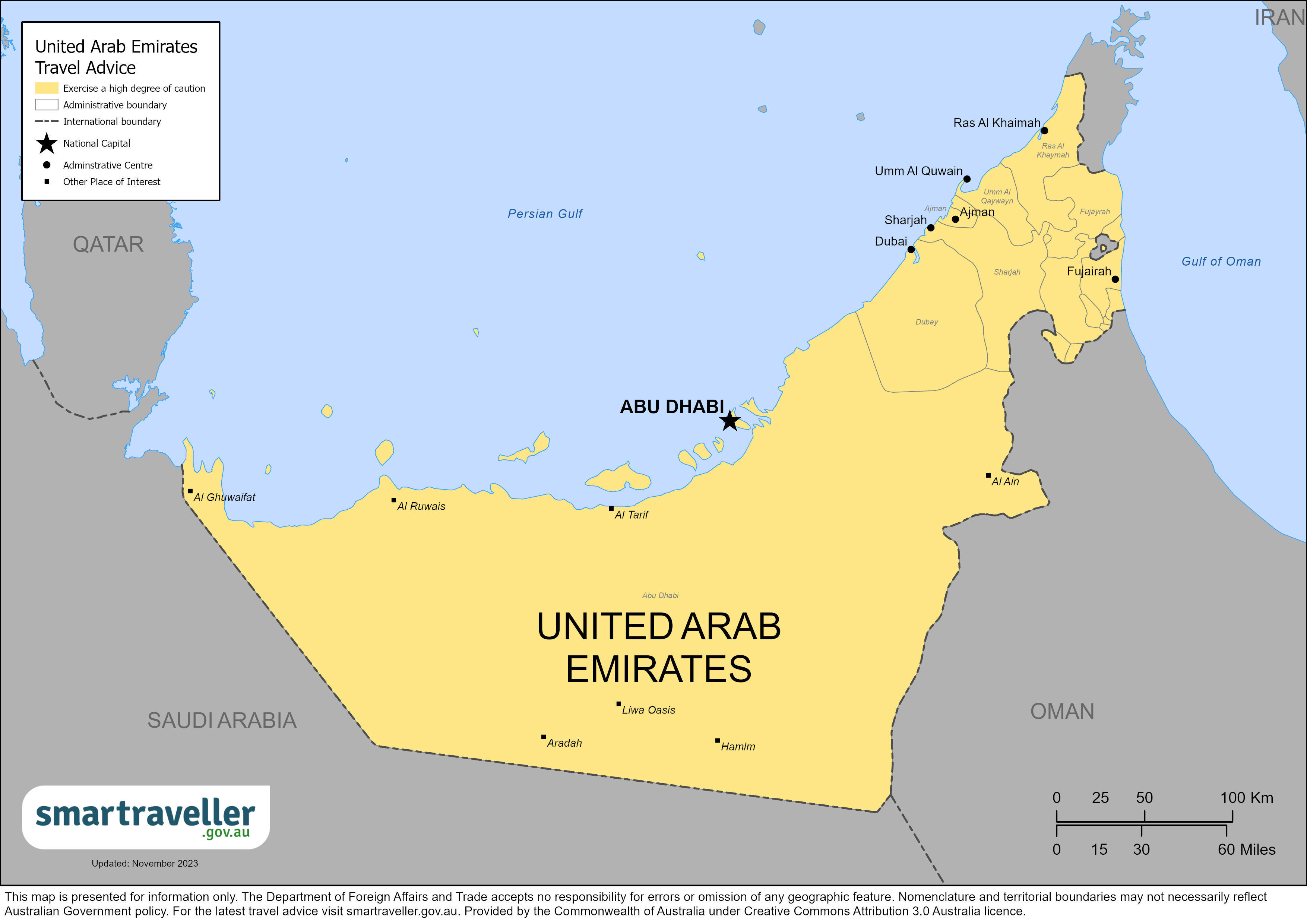
UAE (PDF 781.23 KB)
The Middle East (PDF 1.45 MB)
Local emergency contacts
Fire and rescue services, medical emergencies, advice levels.
Exercise a high degree of caution in the United Arab Emirates.
Exercise a high degree of caution in the United Arab Emirates due to the threat of terrorism.
- An increased threat of military and terrorist attacks against Israel and Israeli interests across the region and ongoing military action in the Occupied Palestinian Territories could lead to increased tensions in other locations in the Middle East. Demonstration and protest activity may occur, and localised security situations could deteriorate with little notice. Avoid all demonstrations and protests.
- This may also result in airspace closures, flight cancellations and flight diversions and other travel disruptions.
- Conflicts in the Middle East and Gulf region could affect the UAE. Monitor local and international media. If there's a security incident, follow the advice of local officials.
- There's an increased threat of terrorism in the UAE, including threats against military bases. Maintain a high level of security awareness.
- Protests or demonstrations may be considered illegal. Avoid demonstrations or protests. Monitor local media and follow the advice of local authorities.
- Missiles and uncrewed aerial systems (drones) were last launched at the UAE from Yemen in early 2022. Most were intercepted, but there were casualties. Further attacks are possible.
- The crime rate is low. Petty crime, such as pickpocketing and bag snatching, occurs but is rare. Drink spiking sometimes happens. Physical and verbal harassment and sexual assaults occur. Avoid walking alone after dark in isolated places, including pedestrian underpasses.
- Be prepared for extreme weather. Between June and September, temperatures can exceed 50°C. Sand and dust storms are also common. In extreme heat, stay out of the sun and drink plenty of water. Intense storms can occur between December and May, which may trigger flash flooding. Monitor local media and follow the advice of local authorities.
- Many areas of the Gulf are sensitive to security issues and territorial disputes. There's also a risk of piracy. If you're planning sea travel, refer to the International Maritime Bureau’s piracy reports.
Full travel advice: Safety
- There's a heightened risk of contracting communicable diseases like cholera, typhoid and hepatitis A following heavy rains and flooding which occurred in April. Avoid contact with stagnant water and use bottled water to brush your teeth.
- Cases of dengue have been reported. Protect yourself from mosquito bites.
- Cases of Middle East respiratory syndrome coronavirus (MERS-CoV) have been reported. Avoid contact with camels and products contaminated with camel secretions.
Waterborne, foodborne, parasitic and other infectious diseases sometimes occur. Get medical advice if you develop a fever or diarrhoea.
- Red algae or 'red tide' may sometimes affect beaches. This can cause skin and eye irritations, as well as breathing problems. Don't swim in affected water.
- The standard of public medical facilities in major cities is adequate. However, services might not be available in remote areas. You may have to pay upfront before treatment.
Full travel advice: Health
- If you have any unresolved criminal charges in the UAE, including unpaid debts, authorities may detain you on arrival, even if you're in transit.
- Many things that are acceptable in Australia are illegal in the UAE. It's illegal to insult an ethnic or religious group, the UAE, the royal families/government officials or the UAE flag. Same-sex relations are illegal and same-sex marriage is not recognised. Familiarise yourself with local rules before you go.
- There's a zero tolerance for illegal drugs and drug-related offences. Penalties for drug offences include the death penalty or life imprisonment.
- It's illegal to be drunk in public, including at airports across the UAE. It's illegal to consume alcohol in the Emirate of Sharjah (see 'Alcohol' section for more information).
- Be careful when taking photos. It's illegal to photograph airports and transport infrastructure, bridges, government buildings, embassies and palaces. It's also illegal to photograph anyone or post photos of people or their personal belongings (including vehicles) on social media without their consent. This includes people in the background of photos.
- You'll need a permit from the UAE before undertaking media activity or bringing media equipment into the UAE.
- The UAE doesn't recognise dual nationality. We can't provide consular help if you enter the UAE on a non-Australian passport.
- The UAE has strict dress and behaviour codes. Wear clothing that covers your shoulders and knees. Dress modestly, especially in the Emirates of Sharjah and Ajman, where Islamic law is strictly enforced.
Full travel advice: Local laws
- You won't be allowed to enter the UAE if you have 'XX' in your birthdate in your Australian passport. It must show a day, month and year. Your Australian passport must also include your first name and last name.
- Tourist visas are issued on arrival in Abu Dhabi and Dubai. Visit the UAE Federal E-Governmental Portal for information regarding visas to the UAE.
- See the latest information for travelling to, from or connecting through Dubai .
- See the latest information for travelling to, from or connecting through Abu Dhabi.
- If you're travelling on a Diplomatic or official passport, you must obtain a visa before travelling.
- Emergency passports are not accepted for entry to the UAE.
- Entry and exit conditions can change at short notice. You should contact the nearest embassy or consulate of the UAE for the latest details.
Full travel advice: Travel
Local contacts
- The Consular Services Charter details what we can and can't do to help you overseas.
- For consular help, contact the Australian Embassy in Abu Dhabi or the Australian Consulate-General in Dubai .
- To stay up to date with local information, follow the Embassy's social media accounts.
Full travel advice: Local contacts
Full advice
Civil unrest and political tension.
The security situation in the region remains unpredictable and could deteriorate with little or no warning. Conflicts in the Middle East or Gulf region could affect the UAE.
There's an increased threat of terrorism in the UAE, including threats against military bases. Maintain a high level of security awareness.
Rebel groups in Yemen have previously targeted the UAE and neighbouring countries with uncrewed aerial systems including drones and missiles.
- On 24 and 31 January 2022, UAE air defence forces intercepted and destroyed three ballistic missiles launched from Yemen, with no casualties.
- On 17 January 2022, a device hit three fuel tankers in an industrial area of Abu Dhabi, resulting in explosions which killed three people and injured several others.
Further attacks are possible.
Be alert and monitor local and international media. In the event of a security incident, follow the advice of local authorities.
Demonstrations and protests
Demonstrations in the UAE are rare and must be authorised by the government. Wearing clothing reminiscent of a political cause may be seen as a form of protest. Australians have been detained for wearing the Palestinian Keffiyeh (head scarf) and rainbow colours.
To protect yourself in case of unrest:
- avoid all rallies and protests
- monitor the media for news of possible demonstrations or protests
- be prepared to change your travel plans
More information:
- Demonstrations and civil unrest
Authorities have in the past arrested several alleged terrorists for possibly planning attacks in the UAE.
Several terrorist attacks have happened in the wider Gulf region in recent years.
Attacks could occur at any time and could target:
- places of worship
- military sites
- transport hubs
- shopping malls and markets
- major events
- residential compounds
- tourist locations
- other locations visited by foreigners
- Terrorist threats
The UAE has a low crime rate.
Pickpocketing and bag snatching occurs but is rare.
Incidents of drink spiking are reported.
Physical and verbal harassment and sexual assaults occur. Avoid walking alone after dark in isolated places, including pedestrian underpasses.
Sexual assault
If you're a victim of sexual assault, find out about support services as quickly as possible from the:
- Australian Embassy and Consulate-General in the UAE
- Consular Emergency Centre in Canberra
Consular officers can't provide legal or medical advice. However, they can provide lists of English-speaking service providers who may be able to help.
UAE law places a high burden of proof on the victim. Victims of sexual assault will need to demonstrate that the sexual relations were not consensual, especially when the victim had consumed alcohol or where the alleged attacker was known to the victim.
Kidnapping can happen anywhere, anytime, including in destinations that are typically at lower risk.
The Australian Government's longstanding policy is that it doesn't make payments or concessions to kidnappers.
Cyber security
You may be at risk of cyber-based threats during overseas travel to any country. Digital identity theft is a growing concern. Your devices and personal data can be compromised, especially if you’re connecting to Wi-Fi, using or connecting to shared or public computers, or to Bluetooth.
Social media can also be risky in destinations where there are social or political tensions, or laws that may seem unreasonable by Australian standards. Travellers have been arrested for things they have said on social media. Don't comment on local or political events on your social media.
- Cyber security when travelling overseas
Swimming safety
At the beach, be aware of strong currents and obey warning signs.
Tours and adventure activities
Transport and tour operators don't always follow safety and maintenance standards. This includes adventure activities.
If you plan to do a tour or adventure activity :
- check if your travel insurance policy covers it
- ask about and insist on minimum safety requirements
- always use available safety gear, such as life jackets or seatbelts
If proper safety equipment isn't available, use another provider.
Climate and natural disasters
Hot summers.
The UAE experiences extremely high temperatures. The hottest months of the year are June to September. The temperature can exceed 50°C.
In extreme heat, stay out of the sun and drink water to avoid dehydration.
Sandstorms and dust storms often happen.
Foggy winters
In winter months, morning fog can significantly reduce visibility. This can cause flight delays and road hazards.
Take extra care if you're driving. Plan your travel in advance and follow the advice of local authorities.
Severe weather
Although they're rare, the UAE can experience severe thunderstorms, strong winds and heavy rain, particularly during spring and autumn.
Flash flooding can cause dangerous driving conditions.
Flash flooding in river canyons (wadis) has caused some deaths in recent years.
In severe weather , stay indoors and avoid driving if possible.
Monitor the media and local government websites, such as:
- the National Emergency Crisis and Disaster Management Authority
- the National Center for Meteorology and Seismology
The NCEMA Facebook page and NCEMA website will be updated during a crisis.
Natural disasters
Earth tremors occur in the UAE, particularly following a major earthquake elsewhere in the region.
Access more information about natural disasters from the Global Disaster Alert and Coordination System .
If a natural disaster happens, follow the advice of local authorities.
Travel insurance
Get comprehensive travel insurance before you travel.
Your policy needs to cover all overseas medical costs, including medical evacuation. The Australian Government won't pay for these costs.
If you can't afford travel insurance, you can't afford to travel. This applies to everyone, no matter how healthy and fit you are.
If you're not insured, you may have to pay many thousands of dollars up-front for medical care.
- what activities and care your policy covers
- that your insurance covers you for the whole time you'll be away
Physical and mental health
Consider your physical and mental health before you travel, especially if you have an existing medical condition.
See your doctor or travel clinic to:
- have a basic health check-up
- ask if your travel plans may affect your health
- plan any vaccinations you need
Do this at least 8 weeks before you leave.
If you have immediate concerns for your welfare or the welfare of another Australian, call the 24-hour Consular Emergency Centre on +61 2 6261 3305 or contact your nearest Australian Embassy, High Commission or Consulate to discuss counselling hotlines and services available in your location.
- General health advice
- Healthy holiday tips (Healthdirect Australia)
Medications
Not all medication available over the counter or by prescription in Australia is available in other countries. Some may even be considered illegal or a controlled substance, even if prescribed by an Australian doctor.
There are laws about bringing in certain medications into the UAE. If you arrive with certain medication, you may not be allowed into the country or may be prosecuted. Get pre-approval and the required documents before you arrive.
You can only bring a 3-month supply of medication, whether entering or transiting the UAE.
Authorities have detained or deported travellers for:
- carrying medication to treat HIV/AIDS or hepatitis
- testing positive for HIV/AIDS or hepatitis
Before you leave Australia:
- check if your medication is legal in the UAE by visiting the UAE Ministry of Health website and downloading the Annex to Travellers Guidelines (PDF 331KB) under Resources.
- some medications require a permit, you can apply for a permit through the UAE Ministry of Health website
- contact the UAE Ministry of Health if you require more information by e-mailing [email protected] or calling +971 800 11111
- if needed, have DFAT authenticate your medical documents
Health risks
Cases of dengue have been reported in the United Arab Emirates.
Dengue is transmitted to humans through mosquito bites. The mosquitoes that spread dengue are active during the day. To protect yourself from disease:
- make sure your accommodation is insect-proof
- always use insect repellent
- wear long, loose, light-coloured clothing
Middle East respiratory syndrome coronavirus
Cases of Middle East respiratory syndrome coronavirus (MERS-CoV) have been reported in:
- Saudi Arabia
- the United Arab Emirates
Other countries have reported imported cases from returned travellers.
Avoid contact with camels. Don't consume raw camel milk, undercooked camel meat, or anything contaminated with camel secretions.
Get medical advice if you have a fever, cough, breathing difficulties or diarrhoea.
- MERS information (Department of Health and Aged Care)
Other health risks
Dust storms and sandstorms can make breathing issues worse.
Red tide algal blooms sometimes affect beaches. This can cause:
- skin irritations
- eye irritations
- breathing problems
Don't swim in affected water. Check with local authorities about outbreaks.
If there's a red tide alert, follow local warnings. This algal bloom can cause paralytic shellfish poisoning. Avoid shellfish and seafood because they may be affected.
- Infectious diseases
- COVID-19 (Department of Health and Aged Care)
Medical care
Medical facilities.
The standard of public medical facilities in major cities is adequate. However, services might not be available in remote areas.
Several private facilities meet international standards. You can find these in:
- Al Ain
There's no reciprocal healthcare agreement between Australia and the UAE. Before treating patients, hospitals often ask for:
- guarantee of payment
- proof of medical insurance
- an upfront deposit
You're subject to all local laws and penalties, including those that appear harsh by Australian standards. Research local laws before travelling.
Behaviour that could be considered offensive or antisocial, but not criminal, in Australia could violate UAE law. Anyone breaking UAE laws, even without knowing, may face severe punishments.
UAE law applies to you even if you're only transiting and don't leave the airport.
The UAE is a mostly Muslim country. Local laws closely reflect Islamic practices and beliefs.
Sharia or Islamic courts work alongside the civil and criminal courts in the UAE. This can make legal issues and systems complicated.
Even simple legal issues can be complex and take time to be resolved. Custodial sentences are served in local jails.
If you have unresolved criminal charges in the UAE, including unpaid debts, authorities may detain you on arrival, even if you're in transit.
You can enquire about your legal status through the Abu Dhabi Judicial Department online enquiry service or through the Government of Dubai Public Prosecutor online enquiry service.
Your UAE Unified Identity Number can be retrieved through the online Unified Number Enquiry Service .
Legal process
If you come to the attention of UAE authorities, your case will be dealt with by the local legal and judicial system. This differs significantly from Australia's legal system.
If you're arrested, authorities may hold you for a long time before your case goes to trial. UAE authorities can hold your passport and stop you from leaving the country. Even simple legal issues can take a long time to resolve. Custodial sentences are served in local jails.
If you're going to be deported, you'll be in immigration detention for at least 24 hours before being allowed to leave the UAE.
To get a list of lawyers who can represent you, either:
- download from Australian Embassy and Consulate-General in the UAE
- call the Consular Emergency Centre in Canberra
If you're arrested or jailed, we will do what we can to help you under our Consular Services Charter . But we can't get you out of trouble or out of jail.
- Arrested or in prison
Laws in individual emirates
The UAE is made up of 7 emirates, each with its own justice system. Laws, legal procedures and penalties vary between systems.
There's a federal court system with a final court of appeal in Abu Dhabi. This is called the Federal Supreme Court. Dubai and Ras Al Khaimah aren't part of this system.
Commercial, civil and family law disputes
Australians are often involved in disputes where local firms or courts have taken their passport. This prevents them from leaving the UAE until the dispute is settled.
You can be jailed or stopped from leaving the UAE for offences including:
- having a cheque dishonoured
- not paying bills, including court fines, hotel bills, personal loans and local credit cards
Immigration authorities can refuse you entry if you have a criminal record. It won't matter how long ago the offence took place.
If you travel to the UAE with an active case against you, including an unpaid UAE debt, authorities are likely to detain you on arrival. This applies even if you're only in transit and don't plan to leave the airport. Speak to a lawyer before you travel if you think you might have an unsettled case against you.
Bail is generally not available to non-residents arrested for fraud. You can be jailed until debts are settled.
If you take part in activities involving local legal matters, get professional legal advice. This is particularly relevant for family law matters including:
- child custody
- child support
Ask a legal professional about your rights and responsibilities.
If you have children or assets in the UAE, get local legal advice about preparing a local will or registering a foreign will.
The UAE has a zero-tolerance policy towards drugs, including for travellers transiting through the country.
Penalties for drug trafficking may include the death penalty, or a sentence up to life imprisonment.
Penalties for having or using illegal drugs include lengthy jail terms and heavy fines. These laws also apply if you're transiting through the UAE.
If illegal drugs are found in blood or urine tests, this is considered possession. It won't matter where or how long ago you consumed the drugs.
You can be charged with possession if trace amounts of drugs are found on your body, clothing or luggage. You can be convicted for 0.05g or less.
Avoid carrying substances that could be mistaken for drugs or drug equipment. This can include, for example, marijuana-flavoured or branded:
- chewing gum
Lab testing on suspicious substances could take days or weeks. During this time, authorities could detain you without bail.
- Carrying or using drugs
- Ministry of Health & Prevention
- UAE Government
Media activity
You must obtain permission in advance from the Emirati authorities to undertake media activity relating to the production, transmission or distribution of printed, digital, audio, video or visual information. If you fail to do this, you could be arrested and deported from the UAE.
You can get more information on obtaining the necessary permits to carry out media activity in the UAE and bringing media equipment into the UAE by registering online at the Media Regulatory Office website .
Personal conduct
Criminal acts.
You can be fined, jailed or deported for:
- insulting other people, the UAE, the royal families, the local government or local officials
- disrespecting the UAE flag
- discriminating against or insulting a racial, ethnic or religious group
- making rude gestures
- making inappropriate or offensive comments on social media
- touching another person without their permission
It's illegal to harass women in the UAE. Behaviour that may offend or be considered illegal includes:
- ogling or long stares
- unwanted conversation
- touching any part of the body
Taking photographs of people, particularly women, without permission can lead to arrest or fines. This also applies to people you've just met.
Posting photos of people or their personal belongings on social media without their consent can be illegal. This includes people in the background of photos.
Public displays of affection
You can be arrested for intimate public displays of affection, including kissing. This behaviour can attract the attention of local authorities. See Local customs below.
Unauthorised preaching
If you engage in unauthorised preaching or distribute non-Islamic religious material to Muslims, you can be jailed and deported.
If you make offensive comments about Islam either in writing or verbally, you could be jailed or subject to other penalties.
Social media and behaviour online
The UAE has strict laws about online behaviour, including comments.
Online behaviour that may be considered a crime includes:
- spreading rumours or gossip
- defamation of an individual or business
- swearing and insulting others
- extortion and making threats or accusations
- posting photos of local incidents, such as building fires or storm damage
- using a fake IP address, such as a Virtual Private Network (VPN), to commit or cover up a crime
Punishments for these crimes include:
- deportation
Charity and fundraising activities are closely regulated, including when conducted online and via social media. Make sure charity or volunteer organisations are registered with the UAE Government before you take part.
- Advice for volunteers
Sex outside of marriage
Heterosexual sex and cohabitation outside of marriage was recently decriminalised in all Emirates except Sharjah, but you must be over the age of 18 years.
Extra-marital sexual relationships (adultery) is illegal in the UAE. If either person's spouse or parent/guardian files a criminal complaint, then both parties of an extra-marital consensual relationship shall be liable to a jail sentence.
LGBTQIA+ information
Same-sex relationships are illegal and may lead to severe punishment, including prison and fines.
Cross-dressing is also illegal.
If you're transgender or intersex, or your gender on your passport doesn't match your appearance, you may:
- be questioned at immigration
- be denied entry into the UAE
If you're travelling on an Australian passport showing 'X' or 'U' (indeterminate, intersex or unspecified) in the gender field, you won't be able to enter the UAE.
- Advice for LGBTQIA+ travellers
Prostitution
Prostitution is illegal in the UAE.
Severe penalties apply to:
- people providing prostitution services
- customers of prostitution services
Registering births of children born to unmarried parents
If you're unmarried and fall pregnant or give birth in the UAE and wish to obtain a local birth certificate, both you and your partner will need to either get married or you and/or your partner must singly or jointly acknowledge the child and provide documentation in accordance with the laws of your country.
Although a Federal law has recently decriminalized the use of alcohol, every Emirate has its own guidelines.
The Emirate of Sharjah is 'dry' which means the sale or consumption of alcohol is illegal. You can't carry alcohol in your car if you're:
- driving through Sharjah
- crossing the border from Oman into Sharjah
There are limits on how much duty-free alcohol you can bring in. These limits are strictly enforced.
Liquor licences
Liquor licences are still required for Residents in Dubai but are no longer required for Residents in Abu Dhabi and other Emirates (except for Sharjah) to purchase alcohol for personal consumption.
A liquor licence is only valid in the Emirate that issues it. For example, a liquor licence issued in Ras Al Khaimah isn't valid in Dubai.
Legal drinking age
The legal drinking age in Abu Dhabi is 18 years. However, a Ministry of Tourism by-law means hotels can only serve alcohol to people aged over 21 years.
The legal drinking age in Dubai and the northern Emirates, except for Sharjah, is 21 years.
Drinking in public
It's illegal to be intoxicated in public outside of licenced venues. You can be arrested. Authorities have arrested travellers at the airport for becoming intoxicated on a flight or while in transit.
Be careful if you're using a taxi when intoxicated. If you have a dispute with a driver or vomit in a taxi, you may be:
- taken directly to a police station
- charged with public intoxication
If you commit a crime after drinking alcohol, you'll probably be charged with both that offence and with intoxication.
Penalties for alcohol-related offences include fines, jail or deportation.
You must have a valid work permit from the UAE Ministry of Human Resources and Emiratisation for any type of employment.
If you plan to work, sort out terms and conditions or sponsorship before starting. This will minimise the risk of a dispute.
If you get into a dispute, a special department of the UAE Ministry of Human Resources and Emiratisation can review and help settle your claim.
Your UAE employer may ask to hold your passport as a condition of employment. This is illegal, but not unusual.
An employer can hold your passport for a short time when arranging, renewing or cancelling your visa or work permit. If your passport is held for a longer period, either:
- make a complaint to the UAE Ministry of Human Resources and Emiratisation
- get legal advice
If you’ve been a resident in the UAE, make sure you cancel your work visa before leaving the country permanently. If you don't, it may seem like you're running away. In this case, you could be arrested if you return to or even transit through the UAE.
You have to take a full medical exam to get a work or residence permit. This includes an HIV/AIDS test. HIV certificates issued by foreign medical authorities aren't accepted.
Other legal issues
Serious crimes and other types of illegal activities.
Serious crimes can attract the death penalty. Serious crimes include:
The UAE Government has a list of groups it considers to be terrorist organisations .
If you're associated with such groups, you could be refused entry or arrested and detained.
In the UAE it's illegal to:
- carry weapons, including pocketknives and capsicum or pepper spray
- discriminate through speech, written word or online media
- vandalise religious symbols, rituals or holy rites
Penalties for discriminating and vandalising can include:
- jail terms of 6 months to more than 10 years
- fines of up to AED2 million
Law enforcement and military equipment
You must have written approval from the UAE Ministry of Defence to transport law enforcement or military equipment into or through the UAE.
This equipment includes:
- body armour
- military equipment
- police equipment
- weapon parts and tools
Australians, including those transiting through UAE airports, have been punished for transporting this equipment without written approval. Some have been jailed or deported.
Photography and other hobbies
It's illegal to photograph:
- people without permission
- airports and related transport infrastructure
- government buildings, including embassies
Taking part in some hobbies, particularly around these sites, can break the law. These include:
- bird-watching
- flying remote-controlled helicopters or planes
- plane-spotting
Register drones with the Civil Aviation Authority of the relevant Emirate before you use them.
Driving laws
It's illegal for residents to drive without a UAE driver's licence once they have residency. Non-residents and travellers must have an International Driving Permit (IDP).
Although common in the UAE, it's illegal to use a mobile phone, eat or drink while driving.
Other illegal activities include:
- walking on highways
- hitchhiking
It's illegal to drive after drinking alcohol. You may be jailed or fined if you have any alcohol in your blood when driving. These laws are strictly enforced in the UAE.
Police must be called to all road accidents, including single vehicle accidents. It's illegal to leave the scene of a traffic accident.
If you have an accident, don't take photos of the other car without the driver's permission.
Australian laws
Some Australian criminal laws still apply when you're overseas. If you break these laws, you may face prosecution in Australia.
- Staying within the law and respecting customs
Dual citizenship
The UAE doesn't recognise dual nationality.
Children born in the UAE to Emirati fathers automatically become UAE citizens. They must enter and leave the UAE on UAE passports.
We can't provide consular help if you enter the UAE on a non-Australian passport.
Child custody decisions are based on Sharia law. Speak to a lawyer about custody disputes. Find out if your children could be prevented from leaving the country.
- Dual nationals
Local customs
The Islamic holiday month of Ramadan is observed in the UAE. Respect religious and cultural customs and laws at this time.
Avoid eating, drinking or smoking in public or in front of people who are fasting. Seek local advice to avoid offence.
Explore our Ramadan page to learn more, including dates for Ramadan.
Dress and behaviour
The UAE is a mostly Muslim country with strict standards of dress and behaviour. Take care not to offend.
Get familiar with local customs, culture and attitudes before leaving Australia.
Research dress codes for tourist attractions, shopping malls, beaches and other public places. These are often displayed onsite or available on websites.
Dress modestly, especially in Sharjah and Ajman where Islamic law is strictly enforced.
If you're a woman, cover your shoulders and knees.
Get local advice if in doubt about appropriate dress.
Visas and border measures
Every country or territory decides who can enter or leave through its borders. For specific information about the evidence you'll need to enter a foreign destination, check with the nearest embassy, consulate or immigration department of the destination you're entering.
Australian passport holders are eligible for tourist visas on arrival.
Diplomatic and official passport holders must obtain a visa before travelling.
For visa information, visit the UAE Federal E-Government Portal or the Emirates or Etihad Airlines website before booking your flight.
Entry and exit conditions can change at short notice. Contact your nearest UAE Embassy or Consulate-General or the local authorities to confirm your visa and/or residency status and for details about entry permits, currency, customs and quarantine rules.
Other formalities
Criminal activity.
If you have unresolved criminal charges, including unpaid debts in the UAE, authorities may detain you when you arrive. Immigration officials may then transfer you to police custody. This can be the case even if you only plan to transit through the airport.
If you're worried about authorities denying you entry, contact an UAE embassy or Consulate-General before you leave Australia.
Restricted items
It's illegal to import:
- poppy seeds
- pornographic material
Importing pork products requires special approvals.
Authorities may examine and censor or confiscate videos, books and magazines.
It's illegal to carry weapons or replica weapons, including used bullet cartridges, into the UAE.
Some countries won't let you enter unless your passport is valid for 6 months after you plan to leave that country. This can apply even if you're just transiting or stopping over.
Some foreign governments and airlines apply the rule inconsistently. Travellers can receive conflicting advice from different sources.
You can end up stranded if your passport is not valid for more than 6 months.
The Australian Government does not set these rules. Check your passport's expiry date before you travel. If you're not sure it'll be valid for long enough, consider getting a new passport .
Emergency passports are not accepted for entry to the UAE.
If your Australian passport has 'XX' anywhere in your date of birth, for example, 'XX FEB 1980', you will be refused entry to the UAE. Your passport must have a numerical date of birth, for example, '14 FEB 1980'.
Australian passports which have only one name will be refused entry to the UAE. You must have a name in the both the first and last name fields to enter the UAE.
If you're travelling on an Australian passport showing 'X' or (non-binary, indeterminate, intersex, or unspecified) in the sex field, you won't be able to enter or transit through the UAE. You can only enter or transit through the UAE if you carry a passport that shows the sex specified as ‘F’ (female) or ‘M’ (male).
Lost or stolen passport
Your passport is a valuable document. It's attractive to people who may try to use your identity to commit crimes.
Some people may try to trick you into giving them your passport. Always keep it in a safe place.
If you're a UAE resident and lose your Australian passport while overseas, contact your nearest UAE embassy. They can give advice on re-entering. Do this before applying for an emergency passport.
If you lose your passport before passing through UAE immigration, you must return to Australia on the next available flight.
Once you're in Australia, you can apply for a full passport. The Australian Embassy can't issue you a new passport if you haven't cleared UAE immigration.
If your passport is lost or stolen, tell the Australian Government as soon as possible:
- In Australia, contact the Australian Passport Information Service .
- If you're overseas, contact the nearest Australian embassy or consulate .
Foreigners must provide their passports for scanning when checking in to a hotel.
If UAE law enforcement take your passport for any reason, make sure they give you a receipt. You'll need the receipt to collect it later and when checking into accommodation.
The local currency is the United Arab Emirates Dirham (AED).
Currency exchange outlets and ATMs are readily available throughout the UAE. Credit cards are widely accepted.
You must declare cash above AED100,000 or the equivalent in other currencies. This covers all forms of currency, not only cash.
- Dubai Customs Services
- Abu Dhabi Airport Customs
Local travel
Driving permit.
If you're on a tourist visa and want to drive, you must get an International Driving Permit before leaving Australia.
Road travel
You're more likely to be killed in a motor vehicle accident in the UAE than in Australia.
Accidents often occur due to:
- drivers crossing lanes
- reckless overtaking
When driving, be aware of other dangers, including:
- roaming animals
- pedestrians and cyclists
- drifting sand
- dust storms
Pedestrian deaths and serious injuries on the road are common in the UAE. Only cross the road at marked crossings. However, still take extra care. Vehicles won't always give way.
Off-road driving can be dangerous. Ensure vehicles are well equipped and properly maintained.
If you're driving in desert areas, travel with at least one other vehicle. Use a GPS and take enough petrol and water.
Land border crossing points may close without notice. If you plan to leave the UAE by road, check the border crossing is open before you depart.
- Driving or riding
If you're entering the Gulf area by sea, be aware that many areas are sensitive about security and territory.
Maritime boundaries and the islands of Abu Musa and the Tunbs in the southern Gulf are under dispute between Iran and the UAE.
Relevant authorities have inspected vessels and detained and arrested people. Make enquiries before entering these waters.
- Going on a cruise
- Travelling by boat
Airports in Dubai are facing disruptions following extreme weather. Expect flight disruptions and delays. Follow airport and local authority guidance and contact your airline before going to the airport.
DFAT doesn't provide information on the safety of individual commercial airlines or flight paths.
Check the UAE's air safety profile with the Aviation Safety Network.
Emergencies
Depending on what you need, contact your:
- family and friends
- travel agent
- insurance provider
Always get a police report when you report a crime.
Your insurer should have a 24-hour emergency number.
Consular contacts
Read the Consular Services Charter for what the Australian Government can and can't do to help you overseas.
For consular assistance, contact:
Australian Embassy, Abu Dhabi
16th Floor, Nayel & Bin Harmal Tower Zayed the First Street Abu Dhabi, United Arab Emirates Phone: +971 2 401 7500 Fax: +971 2 401 7501 Email: [email protected] Website: uae.embassy.gov.au X: @AusAmbUAE
Australian Consulate-General, Dubai
25th Floor, Burjuman Centre Office Tower Sheikh Khalifa bin Zayed Road (Trade Centre Road) Dubai, United Arab Emirates Phone: +971 4 508 7100 Fax: +971 4 355 1547 Email: [email protected]
The working week of the Embassy in Abu Dhabi and the Consulate-General in Dubai is Monday to Friday. This is in line with local practice.
All visitors to the Australian Embassy (Abu Dhabi) and Consulate-General (Dubai) must have an appointment. Check the Embassy website for more information, including details about opening hours and any temporary closures.
24-hour Consular Emergency Centre
In a consular emergency, if you can't contact an embassy, call the 24-hour Consular Emergency Centre on:
- +61 2 6261 3305 from overseas
- 1300 555 135 in Australia

Travelling to United Arab Emirates?
Sign up to get the latest travel advice updates..
Be the first to know official government advice when travelling.
An official website of the United States government Here's how you know
Official websites use .gov A .gov website belongs to an official government organization in the United States.
Secure .gov websites use HTTPS A lock ( Lock A locked padlock ) or https:// means you’ve safely connected to the .gov website. Share sensitive information only on official, secure websites.
Summer Travel 2024: Record Air Travel, Fewer Cancellations, Better Airports, More Passenger Protections
Year-to-date flight cancellation rate is just 1.4% during a record-breaking summer travel season
WASHINGTON – Despite record-breaking levels of air travel this year, Federal Aviation Administration (FAA) numbers show that the flight cancellation rate for the first half of 2024 was just 1.4% – nearly the lowest rate in over a decade. The latest data from airlines reported to the U.S. Department of Transportation shows that weather continues to be the leading cause of flight cancellations.

On June 23, the Transportation Security Administration (TSA) screened more than 2.99 million individuals in a single day at U.S. airports – the most airline passengers the agency has screened in its history. TSA expects to screen more than 32 million individuals this Independence Day travel season, which is a 5.4% increase over last year. At the same time, airfares are down 6% over the last year and below pre-pandemic prices.
“This year’s record-breaking air travel is another good sign for our economy as more Americans take to the skies than ever before,” said U.S. Transportation Secretary Pete Buttigieg. “To help avoid travel headaches, the Biden-Harris Administration has taken historic action to modernize airports and expand passenger protections for a smoother travel experience.”
President Biden’s Bipartisan Infrastructure Law invests $25 billion in U.S. airport infrastructure over five years. This unprecedented investment is not only improving runways and air traffic control towers but also adding gates and adding flight capacity, modernizing baggage systems, replacing passenger boarding bridges, reconfiguring security screening areas, improving safety, and more to finally deliver world-class airports in the U.S. and meet anticipated demand in the decades to come. Just this week, the Federal Aviation Administration announced $289 million in airport infrastructure grants in 40 states and an additional $1 billion in available funding to modernize airport terminals. Thanks to the Bipartisan Infrastructure Law, nearly 200 terminal projects are already under construction to modernize America’s airports and make air travel safer and smoother.
The Biden-Harris Administration has taken historic action to improve airline passenger rights and oversight of the airline industry:
- The rule makes clear that airline passengers are entitled to a refund when their flight is canceled or significantly changed and they no longer wish to take that flight or be rebooked, when their checked baggage is significantly delayed, or when extra services they paid for – like Wi-Fi – are not provided. The rule also requires refunds to be automatic, prompt, in the original form of payment, and in the full amount paid. Airlines must comply with the rule by late October.
- Provisions of the final rule on airline refunds were fortified through the FAA Reauthorization Act of 2024 that President Biden signed into law on May 16, 2024.
- The rule creates a more competitive airline market by requiring airlines to disclose critical extra fees – like change fees and baggage fees – upfront to ensure consumers can better understand the true cost of air travel. The rule also bans “bait-and-switch” advertising tactics and requires airlines to clearly tell passengers upfront that a seat is included with the cost of their ticket. This rule is expected to save consumers over half a billion dollars every year.
- Launched the flightrights.gov dashboard, after which all 10 major U.S. airlines guaranteed free rebooking and meals when an airline issue causes a significant delay or cancellation. These are new commitments the airlines added to their customer service plans that DOT can legally ensure they adhere to through enforcement action.
- Secured nearly $4 billion in refunds and reimbursements owed to airline passengers – including over $600 million to passengers affected by the Southwest Airlines holiday meltdown in 2022.
- Issued nearly $170 million in penalties against airlines for consumer protection violations since President Biden took office. In comparison, between 1996 and 2020, DOT collectively issued less than $71 million in penalties against airlines for consumer protection violations.
- Set up a system to expand the Department’s capacity to review air travel service complaints by partnering with a bipartisan group of state attorneys general , which will help hold airlines accountable and protect the rights of the traveling public.
- COVID-19 travel advice
Considering travel during the pandemic? Take precautions to protect yourself from COVID-19.
A coronavirus disease 2019 (COVID-19) vaccine can prevent you from getting COVID-19 or from becoming seriously ill due to COVID-19 . But even if you're vaccinated, it's still a good idea to take precautions to protect yourself and others while traveling during the COVID-19 pandemic.
If you've had all recommended COVID-19 vaccine doses, including boosters, you're less likely to become seriously ill or spread COVID-19 . You can then travel more safely within the U.S. and internationally. But international travel can still increase your risk of getting new COVID-19 variants.
The Centers for Disease Control and Prevention (CDC) recommends that you should avoid travel until you've had all recommended COVID-19 vaccine and booster doses.
Before you travel
As you think about making travel plans, consider these questions:
- Have you been vaccinated against COVID-19 ? If you haven't, get vaccinated. If the vaccine requires two doses, wait two weeks after getting your second vaccine dose to travel. If the vaccine requires one dose, wait two weeks after getting the vaccine to travel. It takes time for your body to build protection after any vaccination.
- Have you had any booster doses? Having all recommended COVID-19 vaccine doses, including boosters, increases your protection from serious illness.
- Are you at increased risk for severe illness? Anyone can get COVID-19 . But older adults and people of any age with certain medical conditions are at increased risk for severe illness from COVID-19 .
- Do you live with someone who's at increased risk for severe illness? If you get infected while traveling, you can spread the COVID-19 virus to the people you live with when you return, even if you don't have symptoms.
- Does your home or destination have requirements or restrictions for travelers? Even if you've had all recommended vaccine doses, you must follow local, state and federal testing and travel rules.
Check local requirements, restrictions and situations
Some state, local and territorial governments have requirements, such as requiring people to wear masks, get tested, be vaccinated or stay isolated for a period of time after arrival. Before you go, check for requirements at your destination and anywhere you might stop along the way.
Keep in mind these can change often and quickly depending on local conditions. It's also important to understand that the COVID-19 situation, such as the level of spread and presence of variants, varies in each country. Check back for updates as your trip gets closer.
Travel and testing
For vaccinated people.
If you have been fully vaccinated, the CDC states that you don't need to get tested before or after your trip within the U.S. or stay home (quarantine) after you return.
If you're planning to travel internationally outside the U.S., the CDC states you don't need to get tested before your trip unless it's required at your destination. Before arriving to the U.S., you need a negative test within the last day before your arrival or a record of recovery from COVID-19 in the last three months.
After you arrive in the U.S., the CDC recommends getting tested with a viral test 3 to 5 days after your trip. If you're traveling to the U.S. and you aren't a citizen, you need to be fully vaccinated and have proof of vaccination.
You don't need to quarantine when you arrive in the U.S. But check for any symptoms. Stay at home if you develop symptoms.
For unvaccinated people
Testing before and after travel can lower the risk of spreading the virus that causes COVID-19 . If you haven't been vaccinated, the CDC recommends getting a viral test within three days before your trip. Delay travel if you're waiting for test results. Keep a copy of your results with you when you travel.
Repeat the test 3 to 5 days after your trip. Stay home for five days after travel.
If at any point you test positive for the virus that causes COVID-19 , stay home. Stay at home and away from others if you develop symptoms. Follow public health recommendations.
Stay safe when you travel
In the U.S., you must wear a face mask on planes, buses, trains and other forms of public transportation. The mask must fit snugly and cover both your mouth and nose.
Follow these steps to protect yourself and others when you travel:
- Get vaccinated.
- Keep distance between yourself and others (within about 6 feet, or 2 meters) when you're in indoor public spaces if you're not fully vaccinated. This is especially important if you have a higher risk of serious illness.
- Avoid contact with anyone who is sick or has symptoms.
- Avoid crowds and indoor places that have poor air flow (ventilation).
- Don't touch frequently touched surfaces, such as handrails, elevator buttons and kiosks. If you must touch these surfaces, use hand sanitizer or wash your hands afterward.
- Wear a face mask in indoor public spaces. The CDC recommends wearing the most protective mask possible that you'll wear regularly and that fits. If you are in an area with a high number of new COVID-19 cases, wear a mask in indoor public places and outdoors in crowded areas or when you're in close contact with people who aren't vaccinated.
- Avoid touching your eyes, nose and mouth.
- Cover coughs and sneezes.
- Wash your hands often with soap and water for at least 20 seconds.
- If soap and water aren't available, use a hand sanitizer that contains at least 60% alcohol. Cover all surfaces of your hands and rub your hands together until they feel dry.
- Don't eat or drink on public transportation. That way you can keep your mask on the whole time.
Because of the high air flow and air filter efficiency on airplanes, most viruses such as the COVID-19 virus don't spread easily on flights. Wearing masks on planes has likely helped lower the risk of getting the COVID-19 virus on flights too.
However, air travel involves spending time in security lines and airport terminals, which can bring you in close contact with other people. Getting vaccinated and wearing a mask when traveling can help protect you from COVID-19 while traveling.
The Transportation Security Administration (TSA) has increased cleaning and disinfecting of surfaces and equipment, including bins, at screening checkpoints. TSA has also made changes to the screening process:
- Travelers must wear masks during screening. However, TSA employees may ask travelers to adjust masks for identification purposes.
- Travelers should keep a distance of 6 feet apart from other travelers when possible.
- Instead of handing boarding passes to TSA officers, travelers should place passes (paper or electronic) directly on the scanner and then hold them up for inspection.
- Each traveler may have one container of hand sanitizer up to 12 ounces (about 350 milliliters) in a carry-on bag. These containers will need to be taken out for screening.
- Personal items such as keys, wallets and phones should be placed in carry-on bags instead of bins. This reduces the handling of these items during screening.
- Food items should be carried in a plastic bag and placed in a bin for screening. Separating food from carry-on bags lessens the likelihood that screeners will need to open bags for inspection.
Be sure to wash your hands with soap and water for at least 20 seconds directly before and after going through screening.
Public transportation
If you travel by bus or train and you aren't vaccinated, be aware that sitting or standing within 6 feet (2 meters) of others for a long period can put you at higher risk of getting or spreading COVID-19 . Follow the precautions described above for protecting yourself during travel.
Even if you fly, you may need transportation once you arrive at your destination. You can search car rental options and their cleaning policies on the internet. If you plan to stay at a hotel, check into shuttle service availability.
If you'll be using public transportation and you aren't vaccinated, continue physical distancing and wearing a mask after reaching your destination.
Hotels and other lodging
The hotel industry knows that travelers are concerned about COVID-19 and safety. Check any major hotel's website for information about how it's protecting guests and staff. Some best practices include:
- Enhanced cleaning procedures
- Physical distancing recommendations indoors for people who aren't vaccinated
- Mask-wearing and regular hand-washing by staff
- Mask-wearing indoors for guests in public places in areas that have high cases of COVID-19
- Vaccine recommendations for staff
- Isolation and testing guidelines for staff who've been exposed to COVID-19
- Contactless payment
- Set of rules in case a guest becomes ill, such as closing the room for cleaning and disinfecting
- Indoor air quality measures, such as regular system and air filter maintenance, and suggestions to add air cleaners that can filter viruses and bacteria from the air
Vacation rentals, too, are enhancing their cleaning procedures. They're committed to following public health guidelines, such as using masks and gloves when cleaning, and building in a waiting period between guests.
Make a packing list
When it's time to pack for your trip, grab any medications you may need on your trip and these essential safe-travel supplies:
- Alcohol-based hand sanitizer (at least 60% alcohol)
- Disinfectant wipes (at least 70% alcohol)
- Thermometer
Considerations for people at increased risk
Anyone can get very ill from the virus that causes COVID-19 . But older adults and people of any age with certain medical conditions are at increased risk for severe illness. This may include people with cancer, serious heart problems and a weakened immune system. Getting the recommended COVID-19 vaccine and booster doses can help lower your risk of being severely ill from COVID-19 .
Travel increases your chance of getting and spreading COVID-19 . If you're unvaccinated, staying home is the best way to protect yourself and others from COVID-19 . If you must travel and aren't vaccinated, talk with your health care provider and ask about any additional precautions you may need to take.
Remember safety first
Even the most detailed and organized plans may need to be set aside when someone gets ill. Stay home if you or any of your travel companions:
- Have signs or symptoms, are sick or think you have COVID-19
- Are waiting for results of a COVID-19 test
- Have been diagnosed with COVID-19
- Have had close contact with someone with COVID-19 in the past five days and you're not up to date with your COVID-19 vaccines
If you've had close contact with someone with COVID-19 , get tested after at least five days. Wait to travel until you have a negative test. Wear a mask if you travel up to 10 days after you've had close contact with someone with COVID-19 .
- How to protect yourself and others. Centers for Disease Control and Prevention. https://www.cdc.gov/coronavirus/2019-ncov/prevent-getting-sick/prevention.html. Accessed Feb. 4, 2022.
- Domestic travel during COVID-19. Centers for Disease Control and Prevention. https://www.cdc.gov/coronavirus/2019-ncov/travelers/travel-during-covid19.html. Accessed Feb. 4, 2022.
- Requirement for face masks on public transportation conveyances and at transportation hubs. Centers for Disease Control and Prevention. https://www.cdc.gov/coronavirus/2019-ncov/travelers/face-masks-public-transportation.html. Accessed Feb. 4, 2022.
- International travel. Centers for Disease Control and Prevention. https://www.cdc.gov/coronavirus/2019-ncov/travelers/international-travel/index.html. Accessed Feb. 4, 2022.
- U.S citizens, U.S. nationals, U.S. lawful permanent residents, and immigrants: Travel to and from the United States. Centers for Disease Control and Prevention. https://www.cdc.gov/coronavirus/2019-ncov/travelers/international-travel-during-covid19.html. Accessed Feb. 4, 2022.
- Non-US. citizen, non-U.S. immigrants: Air travel to the United States. Centers for Disease Control and Prevention. https://www.cdc.gov/coronavirus/2019-ncov/travelers/noncitizens-US-air-travel.html. Accessed Feb. 4, 2022.
- People with certain medical conditions. Centers for Disease Control and Prevention. https://www.cdc.gov/coronavirus/2019-ncov/need-extra-precautions/people-with-medical-conditions.html. Accessed Feb. 4, 2022.
- Stay up to date with your vaccines. Centers for Disease Control and Prevention. https://www.cdc.gov/coronavirus/2019-ncov/vaccines/stay-up-to-date.html. Accessed Feb. 4, 2022.
- Pack smart. Centers for Disease Control and Prevention. https://wwwnc.cdc.gov/travel/page/pack-smart. Accessed Feb. 4, 2022.
- Travel: Frequently asked questions. Centers for Disease Control and Prevention. https://www.cdc.gov/coronavirus/2019-ncov/travelers/faqs.html. Accessed Feb. 7, 2022.
- Coronavirus (COVID-19) information. Transportation Security Administration. https://www.tsa.gov/coronavirus. Accessed Feb. 7, 2022.
- WHO advice for international traffic in relation to the SARS-CoV-2 Omicron variant (B.1.1.529). World Health Organization. https://www.who.int/news-room/articles-detail/who-advice-for-international-traffic-in-relation-to-the-sars-cov-2-omicron-variant. Accessed Feb. 7, 2022.
- VRHP/VRMA Cleaning guidelines for COVID-19. Vacation Rental Management Association. https://www.vrma.org/page/vrhp/vrma-cleaning-guidelines-for-covid-19. Accessed Feb. 7, 2022.
- Safe stay. American Hotel & Lodging Association. https://www.ahla.com/safestay. Accessed Feb. 7, 2022.
- Khatib AN, et al. COVID-19 transmission and the safety of air travel during the pandemic: A scoping review. Current Opinion in Infectious Diseases. 2021; doi:10.1097/QCO.0000000000000771.
Products and Services
- A Book: Endemic - A Post-Pandemic Playbook
- Begin Exploring Women's Health Solutions at Mayo Clinic Store
- A Book: Future Care
- Antibiotics: Are you misusing them?
- COVID-19 and vitamin D
- Convalescent plasma therapy
- Coronavirus disease 2019 (COVID-19)
- COVID-19: How can I protect myself?
- Herd immunity and respiratory illness
- COVID-19 and pets
- COVID-19 and your mental health
- COVID-19 antibody testing
- COVID-19, cold, allergies and the flu
- Long-term effects of COVID-19
- COVID-19 tests
- COVID-19 drugs: Are there any that work?
- COVID-19 in babies and children
- Coronavirus infection by race
- COVID-19 vaccine: Should I reschedule my mammogram?
- COVID-19 vaccines for kids: What you need to know
- COVID-19 vaccines
- COVID-19 variant
- COVID-19 vs. flu: Similarities and differences
- COVID-19: Who's at higher risk of serious symptoms?
- Debunking coronavirus myths
- Different COVID-19 vaccines
- Extracorporeal membrane oxygenation (ECMO)
- Fever: First aid
- Fever treatment: Quick guide to treating a fever
- Fight coronavirus (COVID-19) transmission at home
- Honey: An effective cough remedy?
- How do COVID-19 antibody tests differ from diagnostic tests?
- How to measure your respiratory rate
- How to take your pulse
- How to take your temperature
- How well do face masks protect against COVID-19?
- Is hydroxychloroquine a treatment for COVID-19?
- Loss of smell
- Mayo Clinic Minute: You're washing your hands all wrong
- Mayo Clinic Minute: How dirty are common surfaces?
- Multisystem inflammatory syndrome in children (MIS-C)
- Nausea and vomiting
- Pregnancy and COVID-19
- Safe outdoor activities during the COVID-19 pandemic
- Safety tips for attending school during COVID-19
- Sex and COVID-19
- Shortness of breath
- Thermometers: Understand the options
- Treating COVID-19 at home
- Unusual symptoms of coronavirus
- Vaccine guidance from Mayo Clinic
- Watery eyes
Related Information
- Coronavirus: What is it and how can I protect myself?
- COVID-19 vaccines: Get the facts
- COVID-19 , cold, allergies and the flu: What are the differences?
Your gift holds great power – donate today!
Make your tax-deductible gift and be part of the cutting-edge research and care that's changing medicine.
Welcome to a sun-soaked metropolis like no other
Plan your dream wedding in an unforgettable destination
Discover the city's insiders, influencers and innovators
Every district in Dubai tells its own unique story
Admire the city's traditional arts, crafts and cultural gems
Get more out of your holiday with these guides
Escape to the hills and explore nature
Answer the call of the wild and experience desert thrills

Uncover the city’s rich heritage and vibrant arts scene
Embark on thrilling new adventures for all ages
Taste award-winning world flavours and local cuisine
Visit the latest hotspots, openings and attractions
Find new surprises at modern malls and traditional souks
Marvel at record-breaking venues and iconic landmarks
Unwind at Dubai's luxury spas and wellbeing havens
What do you travel for? Find inspiration with our itineraries

Book a table at these fresh hotspots
Taste a deliciously different side of Dubai
Discover our homegrown culinary heroes
See all the restaurants unveiled in the Dubai selection
Weekends in Dubai are for feasting
Explore Dubai's plant-based concepts that impress
Reserve a table at top restaurants for incredible prices
Browse through our listing of restaurants

Don't miss a beat – live concerts, festivals, activities and more
Celebrate Eid Al Adha with family entertainment, traditional feasts and shopping
Enjoy unbeatable sales, special offers and prize draws

Plan ahead for a hassle-free travel experience
From etiquette to currency, we answer all your questions
Use our tool to book flight tickets to Dubai and plan your trip to the city
Dubai has an incredible range of stay options for every budget
From take-off to touchdown, navigating Dubai is a breeze
Your complete guide to enjoying one of the world's safest cities to the fullest
Find out all about Dubai’s climate throughout the year with our weather guide
All you need to know about the dirham, from exchange rates to helpful tips
Helpful information for travellers with special needs
Unlock huge savings with pre-paid access to top spots
Get our apps for the latest attractions, events & itineraries

Save big with great offers on Dubai's top sights and activities
Indulge in retail therapy for less with big discounts
Enjoy a trip to Dubai with incredible accommodation offers
Sign up for kid-friendly activities or attend a live show with the entire family
Get tickets to the best concerts featuring A-list artists at world-class venues
Join Dubai's community sporting activities and race to the finish line
Sing along as the star belts out his top hits
Get ready to rock with the legendary band
Related Sites
Add items to your Top Picks by clicking the heart icon as you navigate through the website
This is now in your Top Picks!
Login or create an account to save your favourites and receive personalised recommendations.
Login to like
Sign in or register to like this content
- Visit Dubai
- Plan your trip
Practical information
Plan your trip, find advice on how to prepare, and get all the information you need before your Dubai holiday.
Quick tips Follow these essentials
Arriving in dubai, the weather, wi-fi in dubai, embassies & consulates, emergency numbers.
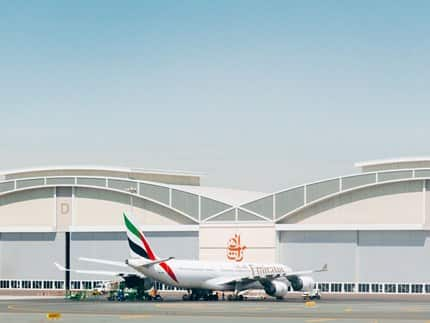
The currency in Dubai is the dirham, which is shortened to AED (United Arab Emirates Dirham). One dirham is divided into 100 fils. The dirham has been pegged to the US dollar since 1997, meaning the exchange rate never changes. One US dollar is worth AED3.67.
Small bottle of water: AED1.5 (50 cents) Big Mac: AED16.75 (USD4.5) Biryani: AED13 (USD3.5) Shawarma wrap: AED5 (USD1.4) Short taxi ride: AED12 (USD3.3) Dubai Metro (3 zones): AED5.8 (USD1.6) Cinema ticket (standard): AED35 (USD9.6) Abra ride across Dubai Creek: AED1 (USD27 cents)

With a coastal location on the Arabian Peninsula, Dubai enjoys a warm climate all year. The ‘winter’ months last from October to May with warm temperatures ranging from 20–35°C (68–95°F).
The summer season lasts from June to September with hotter temperatures reaching the mid-40s (~110° F) – and the city’s wide range of indoor and outdoor facilities and attractions ensure Dubai is a year-round destination.
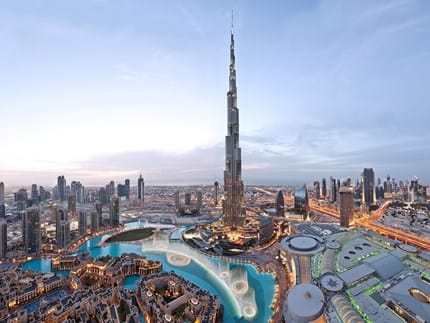
In case of emergencies while on holiday in the UAE, call:
- 911 for Police
- 998 for Ambulance
- 997 for Fire Department
- 996 for Coastguard
Visitors may also find these numbers helpful:
- +971 800 4438 for tourist security issues
- +971 800 342 for the Dubai Health Authority
- +971 600 545 555 for consumer-related concerns

Frequently asked questions
Where can I take the metro in Dubai?
When is it cold in Dubai?
What is the official language in Dubai?
Can I drink alcohol in Dubai?
Are public displays of affection allowed in Dubai?
Is there anything prohibited in Dubai?
Fly with Emirates
What you need to know your questions, answered, greetings & etiquette.
Dubai is a cosmopolitan city and a diverse melting pot where almost all attires and cultural expressions are accepted. Swimwear is permissible at beaches, waterparks, public pools and spa areas but is not considered appropriate in areas such as business districts and shopping malls.
Dressing conservatively is appreciated in Dubai's historic neighbourhoods and places of worship. There are specific requirements for entering a mosque, like wearing clothing that covers shoulders, arms and legs – and headscarves for women.
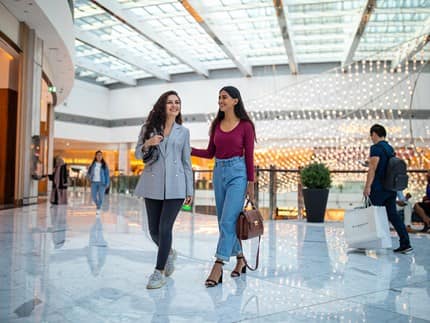
Marhaba! Dubai is a warm and friendly city and you will come across many people who will greet you with a smile and wish you well. A handshake is customary, but do note it is typically accepted that this should be initiated by women.
Public displays of affection are best kept to a minimum. Holding hands is acceptable, but kissing and hugging in public areas is not permitted.
Alcohol is served in licensed establishments such as hotels, bars and specialised shops to those over 21 years of age. However, drunk and disorderly conduct and drunk driving are not acceptable. Use or possession of illegal drugs is also strictly prohibited.

Dubai is home to hundreds of nationalities and both Arabic and English are spoken across the city. Learning a few Arabic words can certainly make the trip more memorable! As you explore the city you're very likely to hear Russian, Tagalog, Hindi, Urdu, Portuguese and many other languages. Follow our detailed guide for a list of handy phrases.
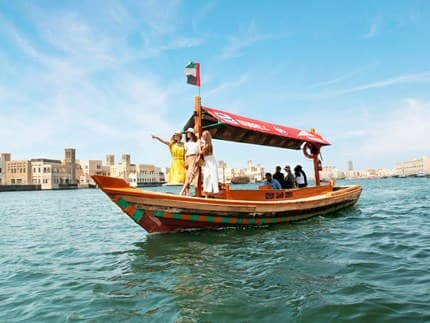
Many medicines used worldwide are readily available in pharmacies and hospitals across Dubai, but as in most countries, there are some medications which are restricted or prohibited for use in the UAE.
The UAE Ministry of Health and Prevention (MOHAP) has full details of controlled or prohibited medications, plus information on what documents you need to carry with you if you need to bring a controlled medication into Dubai. MOHAP also issues a permit to import medicines into the UAE, which you can apply for on their website .
While the permit is optional, it is strongly recommended to obtain it prior to your trip as it will help ensure you have all the correct information and documents. You must also bring your official prescription from the issuing authority of where you are receiving treatment. Please note you can carry medicines for a maximum period of three months. If you have any questions, or want to check the status of a particular medication, contact your local UAE embassy, or get in touch with MOHAP .

To tip or not to tip? The short answer is, there are no rules when it comes to tipping in Dubai. How much you tip varies from profession to profession, and is also largely down to personal preference. It is customary to offer a little extra in most cases, but it certainly isn’t compulsory. Everyone arrives in Dubai with their own customs and expectations, but one thing that's always consistent is the high level of service.

Do you have a question? Get in touch with us directly and we'll be glad to help.
Department of Economy and Tourism
Office hours:
+971 600 55 55 59
Whatsapp Chat (Live 08:00 - 20:00):
Use a contact form
Write to us
Start planning
Find a range of essential information – from basic customs to hotels, restaurants, public transport and discounts.
- Destinations
- Middle East
‘Most visited place on Earth’: Dubai’s massive mall to get $600m expansion
Is there any city that loves superlatives more than this? This record-breaking location is about to get even bigger.

Aussie can’t believe her eyes at Dubai buffet
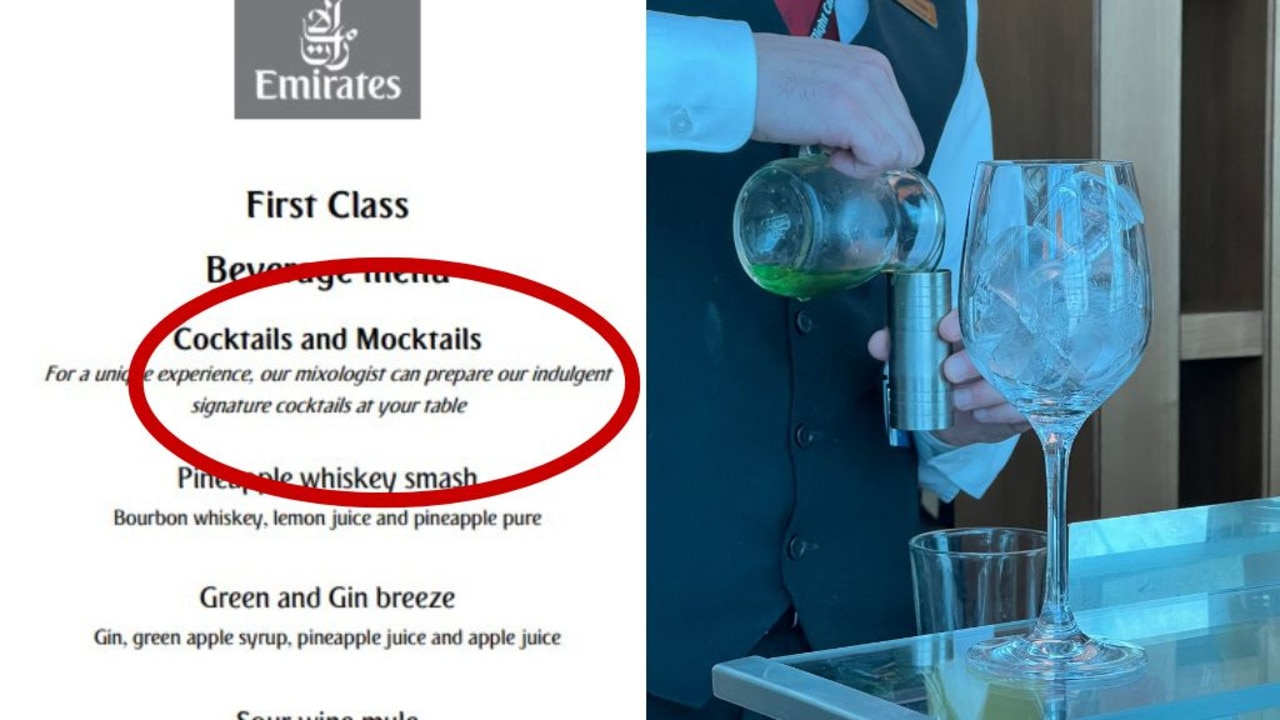
Wild detail on fancy Emirates menu stuns

Travel chaos, luxury cars float in streets
Dubai loves a record-breaking attraction.
The Burj Khalifa is the tallest building in the world, XLine Dubai is the world’s longest urban zip line, JumpX Dubai is the world’s largest inflatable park, Aquaventure Waterpark is the world’s largest water park and Dubai Mall is the world’s largest shopping centre by total area – but that is about to get even bigger.
The 1.2m square metre shopping centre already has more than 1200 retail outlets and more than 200 food and beverage outlets.
A 1.5 billion dirham ($608 million) expansion will add 240 new luxury retail and dining options.

However, arguably, Dubai Mall is most known for its offerings outside the regular stores you would find in a shopping centre.
At the centre of the mall is a massive aquarium (holding 10 million litres of water) where guests can walk in a tunnel that burrows through the main tank.
Shoppers can also find an Olympic-sized ice rink (even when it’s 40C-plus outside), an Emirates A380 simulator, a virtual reality theme park, a 155-million-year-old dinosaur skeleton, and a 26-screen cinema.

United Arab Emirates real estate developer Emaar Properties said a new record for the mall justified its expansion plans.
It said there were 105 million visitors last year, a 19 per cent jump on the year before, earning it the title of ‘most visited place on Earth’.
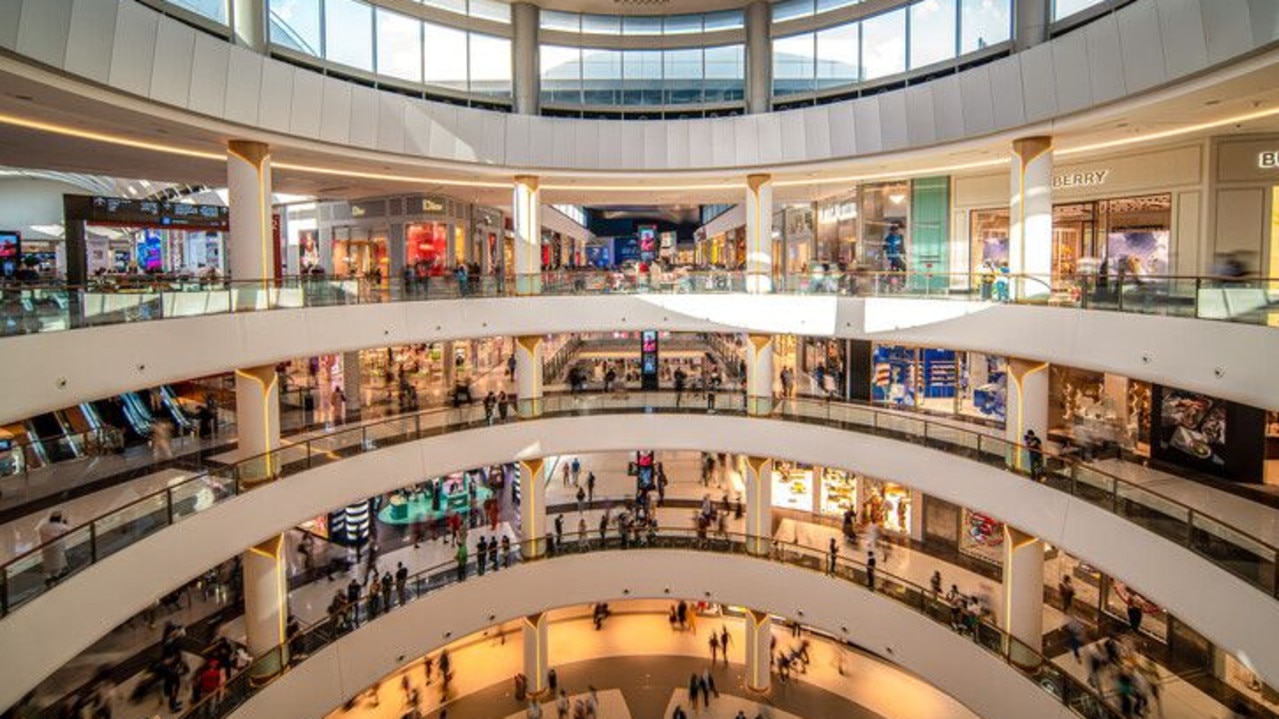
More Coverage

“The new Dubai Mall expansion is a great addition to one of the most visited sites in the world,” Emaar Properties founder Mohamed Alabbar said in a statement last month announcing the big investment.
He added: “This expansion reflects Dubai’s ambitious vision to remain at the forefront of global innovation and culture, further solidifying our city’s position as a top global destination.”
Emaar Properties did not say when the project would start or be completed, but claimed “the contractor is already mobilising on-site”.
Dubai is known for its opulence and there is no better evidence of the popular tourist spot’s mission to make everything bigger and better than this hotel buffet.
Requesting this impressive service in Emirates’ massive first class lounge in Dubai will turn heads.
Flights have been cancelled and luxury cars are floating in the streets again in Dubai just two weeks after the deadly floods.

Outdoor Yak
The Top 12 Biggest Tourist Trap Cities as Rated by Travelers Worldwide
Posted: July 4, 2024 | Last updated: July 4, 2024
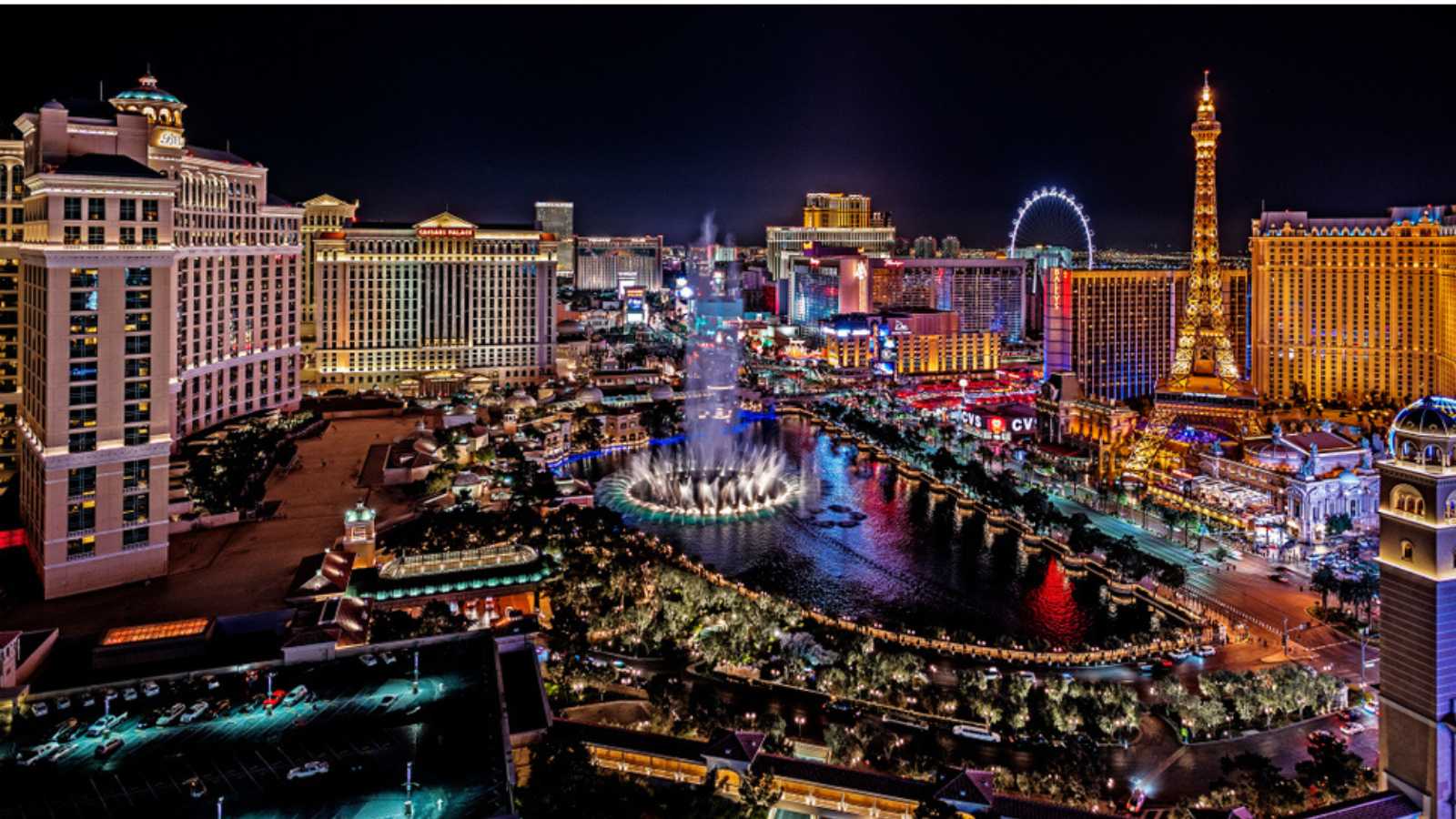
You never want to find yourself trapped. Whether you find yourself stuck in a toxic relationship, school locker, or vacation destination that you thought would be entirely different, we’ve all been trapped at one point or another. Tourist traps, though, are a uniquely loathsome animal. Not only do you find yourself in a hostile environment, but odds are you paid to be there.
Spare yourself the embarrassment and shame that comes with self-funded misery. Heed the warnings of tourists who have waded into vacation traps and lived to tell the tale.
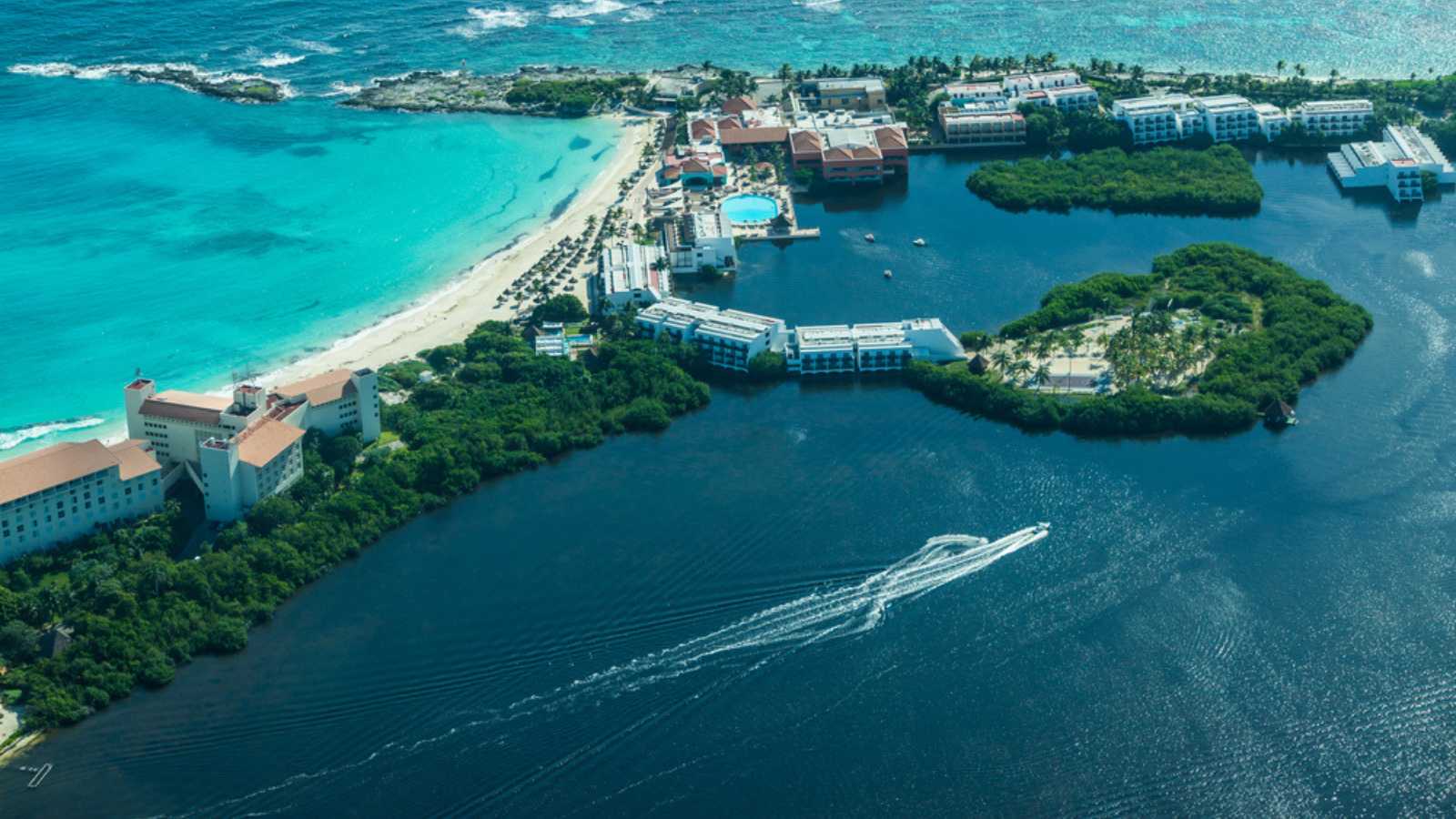
1. Cancun, Mexico
There are reasons why vacation spots morph into well-worn cliches, and few are good. “Going to Cancun” has become synonymous with Spring Break, ill-fated bachelor parties, and all-inclusive vacation experiences with no discernibly unique qualities. While Cancun’s positioning on the thumb of the Yucatan Peninsula makes it convenient for American tourists, that’s precisely the problem. While you surely can have a good time in Cancun, you’ll need to dodge the tourist traps to make it happen.

2. Gatlinburg, Tennessee
Tennessee offers some of America’s most breathtaking lakes, mountains, and outdoor experiences. As many tourists have found, Gatlinburg has taken an idyllic natural backdrop and theme park-ified it. While magic shows, Elvis impersonators, and Dolly Parton-themed attractions are just what some tourists demand, many find the Gatlinburg experience a bit too hokey to enjoy.

3. Niagara Falls, New York
When someone from Orlando names you a tourist trap, you know you’re a tourist trap. Sorry, Niagara Falls.
Niagara Falls’s status as an iconic American attraction has led to ho-hum restaurants gouging customers, mediocre hotels charging an arm and a leg to unwitting tourists, and various cottage industries with little unique to offer. If you must see the Falls, you might take the get-in, get-out approach.

4. Hollywood, Los Angeles, California
Those who live in Los Angeles may give you plenty of reasons to love their hometown. However, few good-faith tourist guides will steer you to Hollywood Boulevard. Well-worn stars on a pavement, Angelenos have commented, are not what Hollywood has cracked them up to be.

5. Bangkok, Thailand
One unimpressed visitor commented that if someone in Bangkok offers to help you, “they are probably trying to redirect you to a tourist trap store and will get a small cut of whatever you buy.” To hear them tell it, the beginning and end of your Bangkok experience should be the raunchy jokes you used to tell in fifth grade.

6. Rome, Italy
The Colosseum, The Vatican, Trevi Fountain, and The Pantheon. Sadly, with so many historical landmarks centered in and near Rome, it was inevitable that relentless tourist exploitation would emerge. While many travelers swear by Rome, few will deny it has all the hallmarks of a tourist trap.
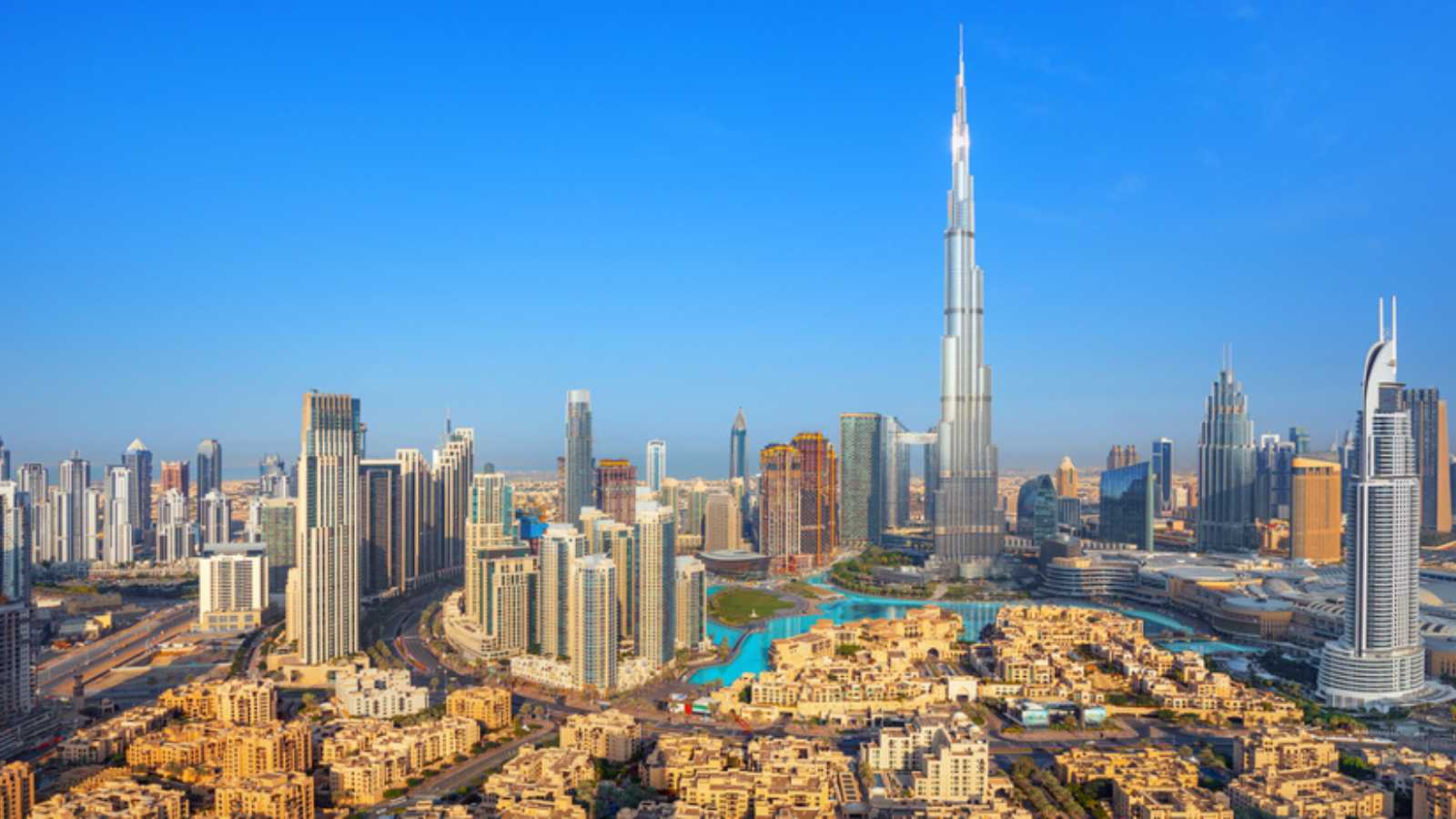
7. Dubai, United Arab Emirates
You have likely seen the man-made islands, sky-scraping architecture, and Instagram models’ shopping sprees documented on Instagram and other media. Yet, those who have been to Dubai lament that there is little to do once you have taken in the scenery.
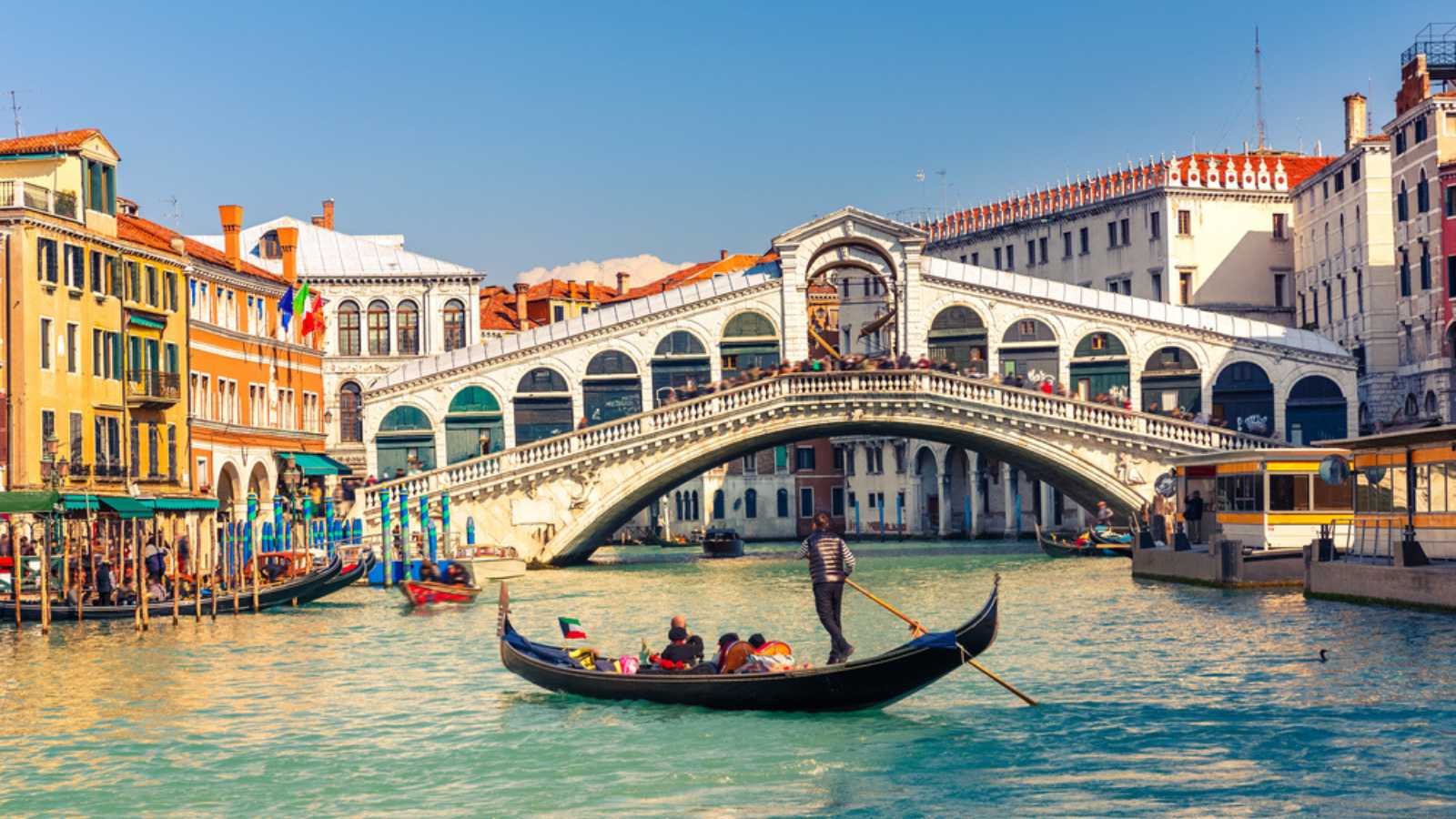
8. Venice, Italy
The Venetian waterways, gondolas, and narrow streets will undoubtedly leave an imprint in tourists’ memories, as will the massive crowds, uncomfortably tight quarters, relentless knick-knack hawkers, and other annoyances that come with tourist traps.
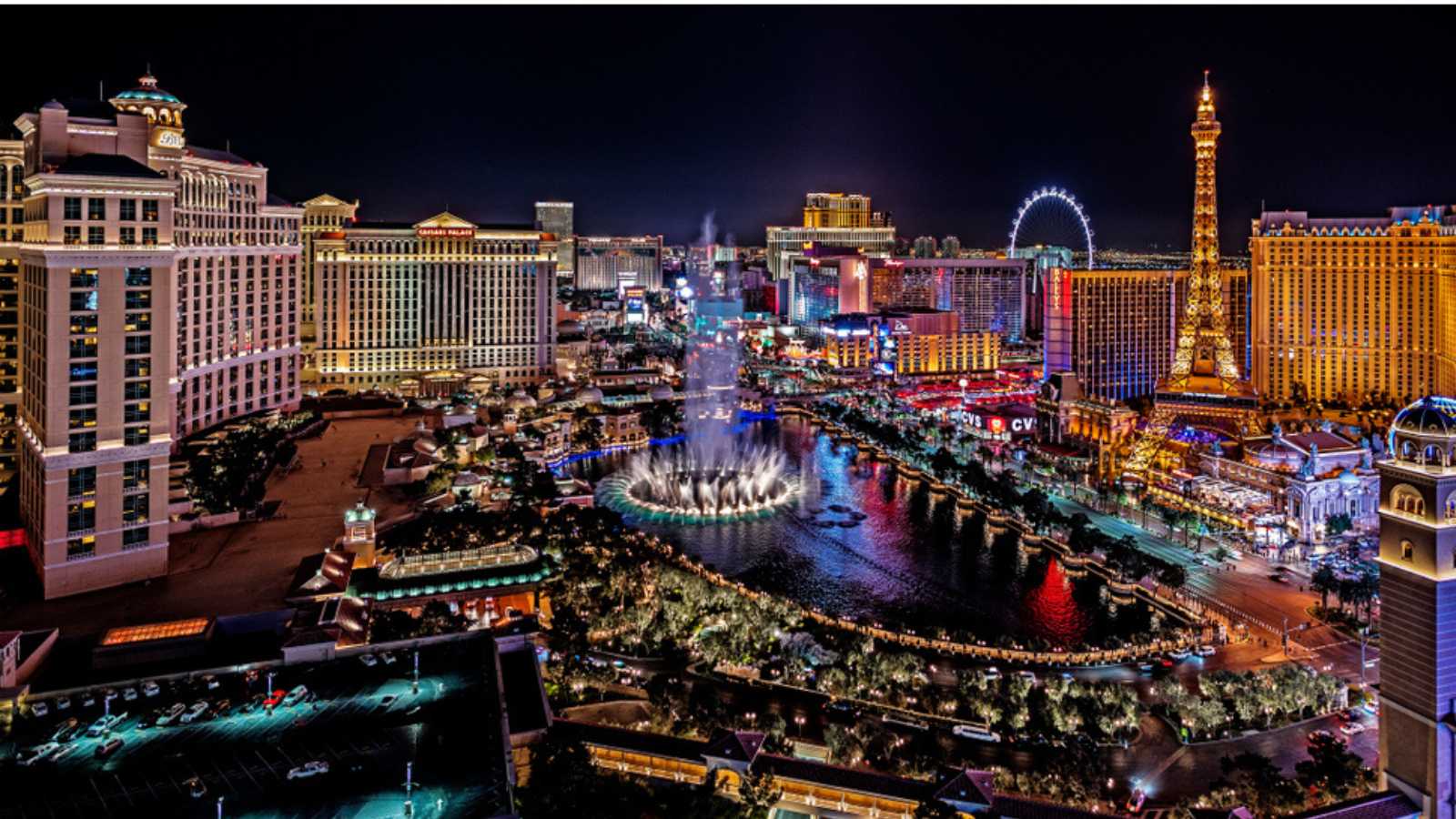
9. Las Vegas, Nevada
In particular, visitors have reported that the Las Vegas Strip left them underwhelmed. You might feel especially trapped if you don’t visit Vegas with the intention of gambling.
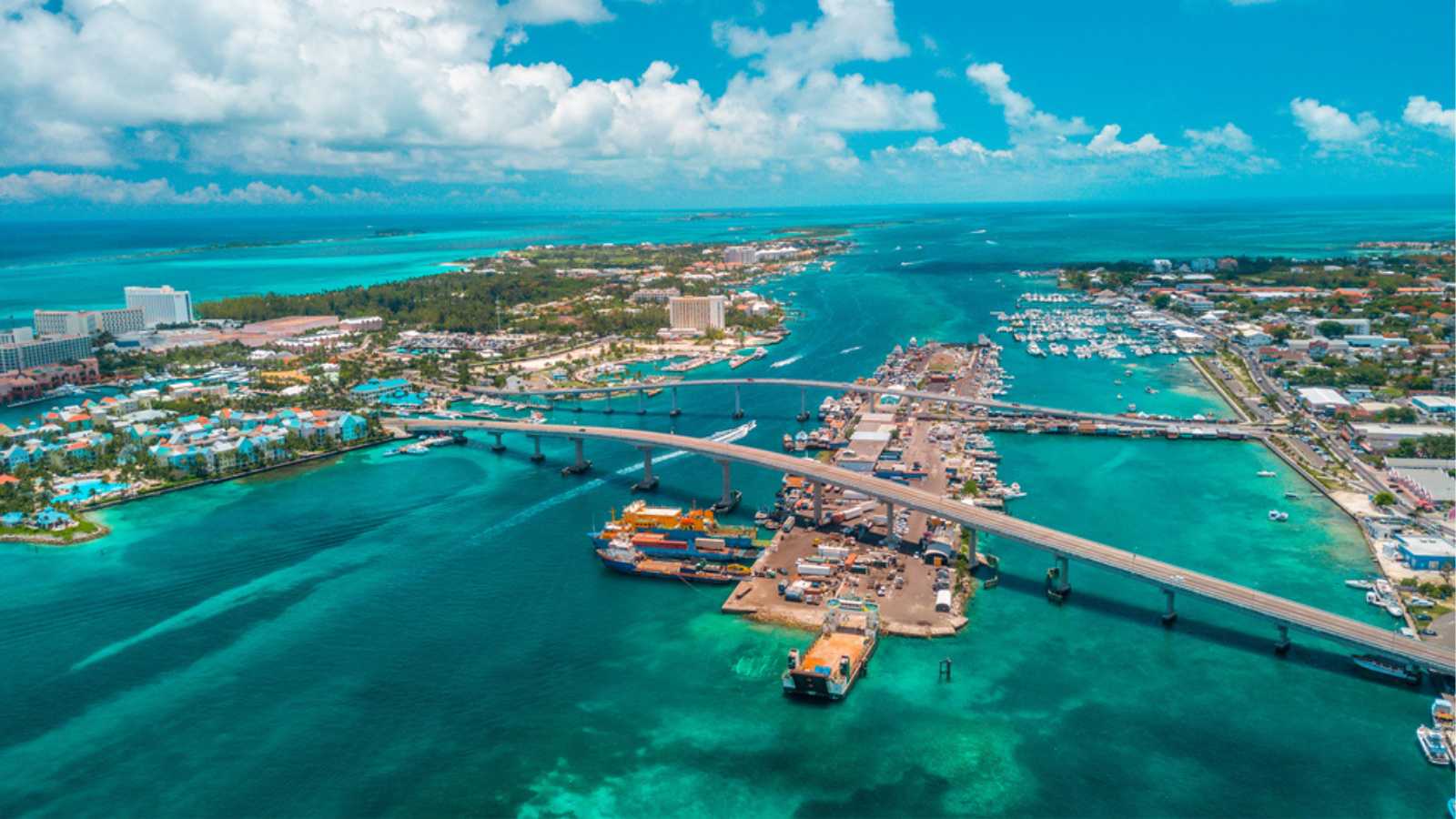
10. Nassau, Bahamas
Understandably, inexperienced or research-phobic vacationers might read “Bahamas,” book a flight, and fail to realize that Nassau is not typical of the idyllic Bahamian vacation. As the capital city, Nassau offers more chaos and civilization than most Bahamian vacationers seek.
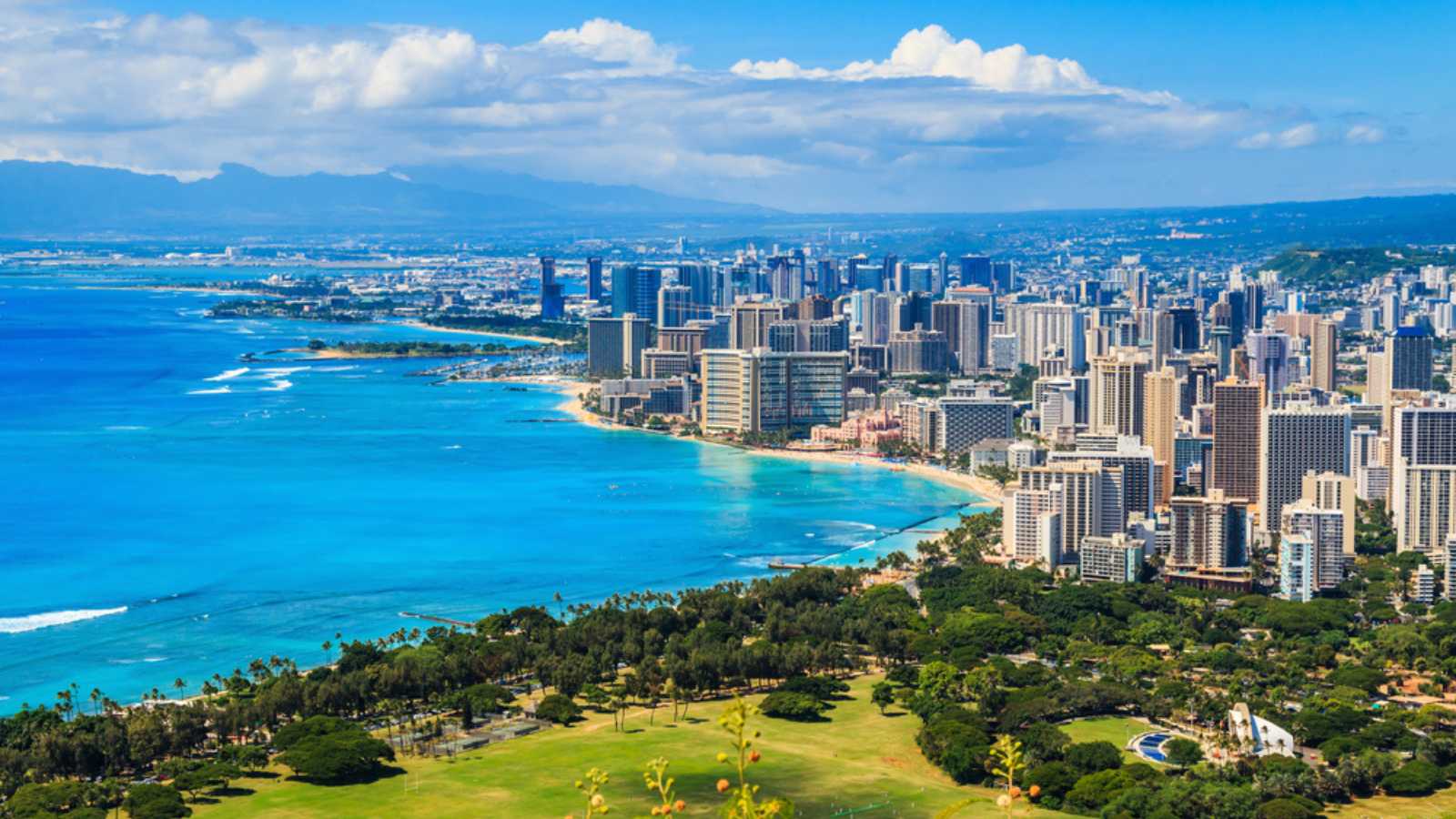
11. Honolulu, Hawaii
Like those traveling to the Bahamas, a visitor to Hawaii might assume that they’ll find paradise regardless of where they land. While Honolulu is undoubtedly beautiful, former visitors warn that it contains more inauthentic, tourist-driven eyesores (an indoor gun range?) than other Hawaiian locales.

12. Bruges, Belgium
Those who want an authentic Belgian experience might skip Bruges, which one person dubbed “the Belgian Disneyland.”
Keep in mind that tourist-trap status is a matter of taste. However, if you vacation to one of these locations and find yourself bothered by harassing salespeople, oxygen-sucking crowds, and other hassles native to every tourist trap, don’t say we failed to warn you.
Source: Reddit

10 Tourist Traps in Europe To Avoid at All Costs
Europe is full of iconic landmarks and tourist destinations, attracting millions annually. However, not all of these destinations live up to their hype. This post will explore some of the biggest tourist traps in Europe according to travelers who have experienced them firsthand.
Read more: 10 Tourist Traps in Europe To Avoid at All Costs
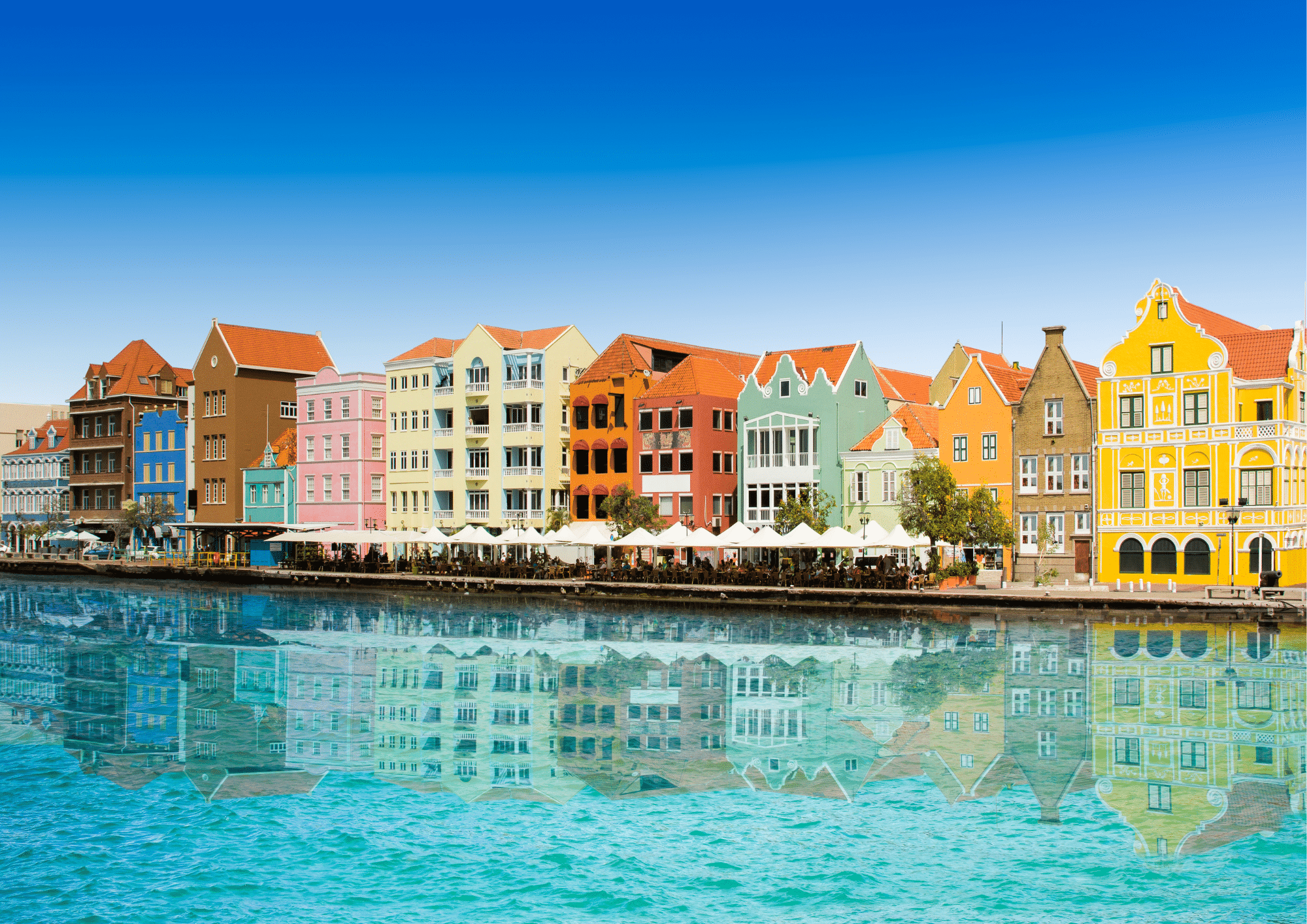
50+ Fun Things to Do in Curaçao in 2024 for an Epic Vacation
Curaçao is a slice of Europe set in a Caribbean paradise. It’s a vibrant and picturesque island offering visitors the best of both worlds with its alluring turquoise waters, white sand beaches, and rich colonial history.
Read more: 50+ Fun Things to Do in Curaçao in 2023 for an Epic Vacation

Honest Giraffe Manor Review – Is It ACTUALLY Worth the Cost?
This blog post is going to explain everything you ever wanted to know about staying at Giraffe Manor, my tips for booking and staying here, as well as whether or not Giraffe Manor is ACTUALLY WORTH its expensive price tag.
Read more: Honest Giraffe Manor Review – Is It ACTUALLY Worth the Cost?

12 of the Most Magical Places in the World to Travel To
From the serene landscapes of New Zealand to the vibrant culture of Colombia, these places are sure to give you a sense of wanderlust. So, prepare to be transported to a world of magic and wonder!
Read more: 12 of the Most Magical Places in the World to Travel To
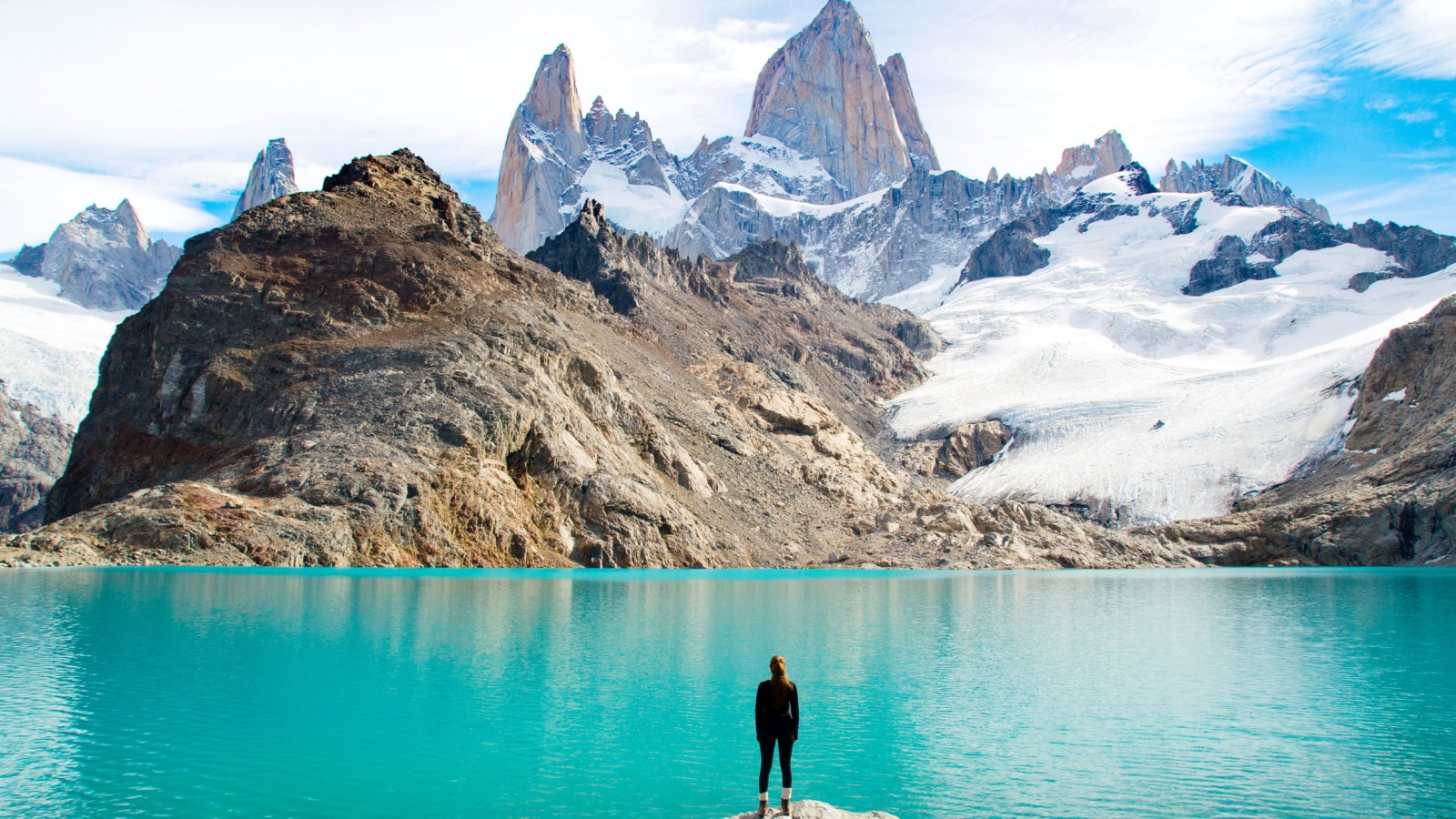
20 Amazing Places to Visit in Argentina by a Resident
From the sizzling tango performances in Buenos Aires to the icy glaciers of Patagonia to the decadent wine region of Mendoza, Argentina is a massive country that has something to offer everyone. This post is sharing some of the most amazing places to visit in Argentina.
Read more: 20 Amazing Places to Visit in Argentina by a Resident
More for You
NFL is liable for $4,707,259,944.64 in 'Sunday Ticket' case
Archaeologists unearth 4,000-year-old art from never-before-seen culture
Zelensky Brutally Shuts Down Tucker Carlson Interview Talk
Supreme Court Rejects Second Amendment Challenge to Assault Weapons Bans
'Hogan's Heroes': The Cast Through The Years
Klay Thompson, Draymond Green Didn't 'Sit Well' With Warriors Extending Andrew Wiggins and Jordan Poole
Which Car Brands Make the Best Vehicles?
Warren Buffett’s Right-Hand Man Charlie Munger Said People With These 5 Traits Are ‘Almost Certain To Succeed’
US Marines in the Pacific have a new punch to throw
Supreme Court rules in favor of North Dakota truck stop in blow to federal regulations
5 Things To Be Aware Of When Booking American Airlines Basic Economy
US officials plan to kill hundreds of thousands of owls: Here’s why
Archaeologists Discover Ancient Indoor Swimming Pool With Colorful Frescoes
The 55 newest dog breeds recognized by the American Kennel Club
MIL vs MOA: Here’s What Hunters and Shooters Need to Know
17 Classic Rock Albums With High Collectible Value
17 Classic Rum Drinks You Need to Add to Your Repertoire
Kevin O'Leary explained how you can live off $500K and ‘do nothing else to make money' — but is it realistic for your retirement?
13,000 Are Ordered to Evacuate as Wildfire Spreads in Northern California
58-year-old Wisconsin grandma finishes third at US Olympic qualifying event
More From Forbes
Why the new nh collection dubai the palm is perfect for budget travel.
- Share to Facebook
- Share to Twitter
- Share to Linkedin
NH Collection Dubai The Palm is conveniently situated in Palm Jumeirah’s Seven Palm, a beachfront ... [+] mixed-use development.
The biggest city in the United Arab Emirates (UAE), Dubai is also associated with iconic architecture, like the world’s tallest skyscraper Burj Khalifa , glamourous lifestyle—packed with bold-faced brands from Cartier to Zegna, Dubai Mall is the world’s largest—and leisure options galore such as pristine beaches and desert safaris. No wonder Dubai retained its number one status as the world’s top destination for two consecutive years in the Tripadvisor Travellers’ Choice Awards.
As you’d expect: Dubai’s hotel scene is chock-full of breathessly expensive five-star resorts such as Burj Al Arab, one of the world’s recognizable hotels. But what if you’re seeking a more sensible option and don’t want to drop four figures per night on a Dubai vacation? What if I told you there’s a new property in town boasting a smart location, playful design, attentive service, and incredibly competitive rates—which currently hover around $200 night—that will appeal to many types of guests?
NH Collection Dubai The Palm features a playful and colorful design.
Opened last year, NH Collection Dubai The Palm —which marks the NH brand’s debut in the Middle East—is conveniently situated in Palm Jumeirah’s Seven Palm, a beachfront mixed-use development. The first thing you’ll notice when you enter the lobby filled with colorful furnishings and quirky art, is a refreshingly casual vibe. In contrast to Dubai’s more established properties, NH Collection Dubai The Palm is smartly targeting a younger, more worldly clientele seeking a reasonably-priced stay with easy access to the best of Dubai.
The bedroom of a suite at NH Collection Dubai The Palm
Best High-Yield Savings Accounts Of 2024
Best 5% interest savings accounts of 2024.
This relaxed approach extends to the 533 guest rooms and suites . Featuring supportive platform beds with customizable pillow menus, cheerful murals depicting Dubai’s most famous attractions, and spacious bathrooms stocked with clean Urban Skincare toiletries, the accommodations are comfortably appointed with everything you need to unwind while away from home. Because sustainability is a key NH pillar, all the accommodations provide complimentary filtered water in glass bottles and plastic-free amenities like bamboo toothbrushes and toothpaste tablets. Even better? NH Collection Dubai The Palm is the first hotel in Dubai to have vegan rooms—a thoughtful perk for someone like me who’s sensitive to down and feathers. And since wellness is a priority for everyone nowadays, the hotel also offers a well-equipped gym, rooftop pool, and Soul Senses Spa & Wellness for massages and body treatments.
View 180 at NH Collection Dubai The Palm
While regular guests of NH Collection hotels already know about the brand’s bountiful breakfast buffets blending Western staples and local delicacies—here, they’re presented at the all-day buffet eatery Maiora—there’s much more to savor. As the name suggests, Seven Sports Bar is a casual pub where can dig into burgers and pints of frosty beer while catching your favorite sports games on the screens. Revo Café is an approachable space doling out nutritious, garden-fresh creations—try the customizable vegan poke bowls—for people and their beloved pets. Even in-room dining here is a globetrotting treat, with unexpected menu items like Pad Thai and Butter Chicken. The crown jewel of NH Collection Dubai The Palm, however, is View 180 . Whether you’re craving a sunset Aperol Spritz or Asian-inspired dinner (sushi rolls, shrimp dumplings, Thai-style chicken wings) accompanied by impressive views, this popular rooftop destination has you covered.

- Editorial Standards
- Reprints & Permissions
Join The Conversation
One Community. Many Voices. Create a free account to share your thoughts.
Forbes Community Guidelines
Our community is about connecting people through open and thoughtful conversations. We want our readers to share their views and exchange ideas and facts in a safe space.
In order to do so, please follow the posting rules in our site's Terms of Service. We've summarized some of those key rules below. Simply put, keep it civil.
Your post will be rejected if we notice that it seems to contain:
- False or intentionally out-of-context or misleading information
- Insults, profanity, incoherent, obscene or inflammatory language or threats of any kind
- Attacks on the identity of other commenters or the article's author
- Content that otherwise violates our site's terms.
User accounts will be blocked if we notice or believe that users are engaged in:
- Continuous attempts to re-post comments that have been previously moderated/rejected
- Racist, sexist, homophobic or other discriminatory comments
- Attempts or tactics that put the site security at risk
- Actions that otherwise violate our site's terms.
So, how can you be a power user?
- Stay on topic and share your insights
- Feel free to be clear and thoughtful to get your point across
- ‘Like’ or ‘Dislike’ to show your point of view.
- Protect your community.
- Use the report tool to alert us when someone breaks the rules.
Thanks for reading our community guidelines. Please read the full list of posting rules found in our site's Terms of Service.
AAA Texas: Record-breaking travel week underway on Texas roads for July 4th holiday
The heaviest travel days will be Wednesday afternoon, July 3, and again on Friday, July 5.
By Alanna Quillen • Published July 3, 2024 • Updated on July 3, 2024 at 8:48 am
We are in the middle of a record breaking travel week on Texas roads, with more people than ever getting behind the wheel for the July 4th holiday.
AAA Texas said it projects 5.6 million people in the Lone Star State will travel over this Independence Day holiday travel period, from Saturday, June 29, to Sunday, July 7. That’s a 5.2% increase over last year. Over 90 percent of those traveling this year will be driving, the organization said.
Streaming 24/7: Watch NBC 5 local news and weather for free wherever you are
Across the nation, AAA projects 70.9 million travelers will head 50 miles or more from home over the Independence Day holiday travel period.
Get DFW local news, weather forecasts and entertainment stories to your inbox. Sign up for NBC DFW newsletters .
AAA says the worst times to travel by car before and on July 4th are between 2pm and 7pm. Drivers should hit the road in the morning, and travelers returning on Monday, July 8th should avoid rush hour traffic in the morning and afternoon.
“Drivers in large metro areas can expect the worst traffic delays on Wednesday, July 3rd, as they leave town, and Sunday, July 7th, as they return,” said Bob Pishue, transportation analyst at INRIX, which provides transportation data for AAA. “Road trips over the holiday week could take up to 67% longer than normal. Travelers should monitor 511 services, local news stations, and traffic apps for up-to-the-minute road conditions.”
Click here to see a chart of the best and worst times to travel by car.
The latest news from around North Texas.

Food, fun and Fourth of July fireworks at Frisco Freedom Fest

Family said Texas Marine veteran released nearly one week after ICE detention
For the first time ever, AAA has expanded its forecast to nine days because of the popularity of remote work and many choosing to take summer vacations during this holiday.
“You’re going to have regular commuters mixed with holiday commuters trying to get to their Independence Day holiday destination,” said Daniel Armbruster, AAA Texas spokesperson.
Gas prices are lower than last year when the Texas regular unleaded average was $3.14. As of Wednesday morning, it is averaging at $3.09/gallon across the state. Currently, DFW is averaging around $3.23/gallon .
Pump prices will likely continue going down leading up to Independence Day. At that point, they will likely level off and remain relatively stable until after Labor Day, similar to last year. An important caveat is hurricane season – underway now – which could affect gas prices should a storm negatively impact Gulf Coast oil production and refining centers.
AAA car rental partner Hertz says Dallas, Denver, Salt Lake City, Los Angeles, and San Francisco are the cities displaying the highest rental demand during the holiday week. The busiest pick-up days are projected to be Friday, June 28, Saturday, June 29, and Wednesday, July 4.
Here’s a checklist before you hit the road or the skies this week:
- Inspect vehicle tires, battery, and fluid levels before a long road trip. Nationwide, AAA expects to rescue more than 799,000 stranded drivers at the roadside, including more than 41,000 in Texas.
- Pack food, water, an emergency kit, first-aid kit, and mobile phone charger in case you break down.
- Reserve airport parking ahead of time to save you time on departure day.
- Get to airports at least two hours before domestic flights and three hours before international flights.
- Sign up for TSA PreCheck or Clear to speed up the security process.
- Download your airline’s app and use FlightAware to track your aircraft the day of departure.
- Avoid checking a bag, if possible. Carry-on luggage allows you to be more flexible in the event of a delay or cancelation.
- Book summer travel now. High demand and reduced schedules will mean fewer options.
- Work with a trusted AAA Texas travel advisor who can save you money and assist in rebooking should you need to.
- Consider travel insurance to protect your investment.
This article tagged under:
Important: Suspension of flights to/from Tel Aviv
TRAVEL SUPPORT
- Travel requirements for Dubai
Travel advice for Dubai residents
Find out the process for returning to Dubai, whether you’re already overseas or you plan to fly from Dubai and return.
Tourists travelling to, from, and through Dubai
Follow the process to make sure you have everything you need before you travel to, from, or connect through Dubai.
- COVID-19 information hub
Suggestions
Hospitality industry sees post-covid shift to a more global outlook.
- January 24, 2022
DUBAI,UAE, 24 January 2022/African Media Agency (AMA)/ – Canadian vegan cookies in London’s Harrods , LA burgers in Dubai, Singaporean confectionary in Saudi,American plant-based restaurant in Selfridges , and the world’s first African food hall slated to open in Harlem and then London ; a post-Covid hospitality industry is seeing a shift to a more global outlook.
“The radical changes the hospitality industry has seen due to pandemic has created the necessity to widen our arms, looking beyond a national and international scope and embracing a global view” says Simon Wright, founder of award-winning hospitality agency TGP International, which has just announced the addition of nine renowned chefs spanning five continents to their existing portfolio.The strategic move was said to be diffuse international talent to a post-Covid global market, which in turn will provide strength and vigour to an industry that continues to suffer social and financial consequences of the pandemic, regardless of nation.
“Consumers of the world will see their local hospitality industry enriched by the injection of global culinary talent.” says Wright. “For our part 2022, the year of our 20th anniversary, will see TGP positioning their portfolio of brands and chefs into new territories offering new opportunities around the world.” he adds
Significant 2022 opening announcements made by TGP that reflect this shift to a more global outlook include: -Multiple new openings at Expo 2020 Dubai – Indian chef Rohit Ghai’s taking his restaurant Kutir to Dubai – David Thompson’s Long Chim to open in London – Armenian-American Chef Geoffrey Zakarian opened in Dubai, and opening in Doha – Cuban Chef Luis Pous opening El Takoy in London and Riyadh – Greek Chef Tommy opening Baron from Beirut in Dubai and Riyadh – Canadian Kimberly Lin bringing Floozie cookies to Harrods – American celebrity chef Matthew Kenney opening his doors in Selfridges and Dubai – LA-based David Myers opening his Adrift burger concept in Dubai – Chef Alexander Smalls will open the world’s first African food hall in London and New York.
Chef Bios Chef Coco Reinharz philosophy is that of a modern world culinary citizen who is also an African by birth and choice. He combines classical French training and skill with the panorama of spectacularly expressive but previously overlooked African food in a modern, sophisticated and utterly delicious manner. His cookbook: Banqueting House, African Cuisine – An Epic journey has won an international award at the Gourmet world cookbook awards. The group have already begun work with Reinharz featuring him in a TGP own brand, ALKEBULAN, also at Expo 2020 Dubai where he created two food and one bar concept all paying homage to African cuisine and culture.
David Myers is a global citizen with an insatiable hunger for travel – he is an internationally renowned Chef and restaurateur based across Asia, the United States and this year with the help of TGP saw expansion in the Middle East. Recognized for his unique ways of marrying his two greatest passions; food and travel, David curates and innovates new, captivating experiences for diners around the globe.
Rohit Ghai was born into a Punjabi family and originally from Madhya Pradesh, India, Rohit first worked in India for the Oberio and Taj hotel groups. Ghain ow has an impressive CV, having been Executive Chef at Bombay Bustle, Jamavar (earning a Michelin-star in under a year – the first time an Indian Chef has ever done this in the UK), Gymkhana, Hoppers, Trishna, Verandah (in Copenhagen) and Benares over the last 15 years. In 2018, he launched his first standalone restaurant with business partner Abhi Sangwan: Kutir in Chelsea, which attracted international praise and critical acclaim. During the pandemic, Ghai began working with online platform Masterclass, sharing his expert approach to Indian cuisine on a digital platform. In 2021, Ghai opened new restaurant, Iksha 360, in Doha and also opened Kutir at Expo 2020 Dubai.
With the emblematic fox by his side, Yann Couvreur quit office life to pursue his love for gastronomy. Between viennoiseries, pastries, and cakes, not to mention his signature dessert of vanilla mille-feuilles, Couvreur has made a name for himself as the “rising star in patisserie”. While innovative renditions of classic French desserts like the Paris-Brest have garnered critical acclaim, Couvreur’s three boutiques in Paris see queues from down the street.
Janice Wong Singapore is a multi-product and multi-channel confectionery brand that creates to inspire where art meets design and design meets art, where one can use their imagination to create, interact and discover. Janice Wong Singapore truly embraces food technology and innovation. Chef Janice Wong’s efforts in experimenting with ingredients, cooking techniques and machines led to creations of edible art, 3d printed chocolates and others, which in turn kickstarted a flurry of activities that saw the business expanding to the international stage.
Matthew Kenney is an American celebrity chef, entrepreneur, author, and educator specializing in plant-based cuisine. He is the author of 12 cookbooks, founder of dozens of vegan restaurants, and founder of the companies Matthew Kenney Cuisine and Matthew Kenney Culinary, a plant-based diet education business. TGP International have already begun work with Kenney having opened several concepts at Expo 2020 Dubai in October and an opening Adesse in Selfridges. London December.
After studying culinary arts, baking, pastry, and French boulangerie, Kimberly Lin worked across the UK and Canada. Kim has worked in institutions such as The Savoy and Claridge’s in London, and most recently Dominique Ansel Bakery. She joined TGP International in 2017 and took part in many product developments for clients and partner brands since. Having created Floozie Cookies over the pandemic she has seen tremendous success with the brand also with two sites at Expo 2020 Dubai, 2 sites in London and a new luxury department store Harrods’s London that recently opened in January 2022.
Aline Kamakian began her career as an insurance broker at the age of 18 to put herself into college. All through her successes, Aline never forgot her love for food but most importantly she never forgot her Armenian roots. She opened in June 2003 “Mayrig” an avant guardiste traditional Armenian restaurant to introduce to all those who appreciate homely, healthy and tasty food, the forgotten flavors of Ancient Armenia. Since then, Aline has ventured into new concepts, catering in 2004, Batchig in 2013, Made by Mayrig in 2014. She opened new branches of Mayrig in Dubai in 2013 and in Riyadh in 2016. Mayrig’s flagship reached the Maldives in 2017 and hit home to Yerevan, Armenia in 2018.
Geoffrey Zakarian is recognized by culinary industry insiders as a superstar of the restaurant world and by food enthusiasts everywhere as “Iron Chef,” author, fashion icon, and trusted television presence. His technical mastery was honed over his five-year, meteoric rise at Le Cirque, and then throughout a series of apprenticeships across Western Europe. His ever-expanding restaurant empire includes outposts in NYC, South Florida, Atlantic City, Sonoma and soon to open Doha, Qatar. Each has earned him countless accolades – including a trio of coveted Three-Star Reviews from the New York Times. Highlights from his prolific television career include his ongoing role as co-host of “The Kitchen” (2017 Emmy Award Nomination), his 41-season tenure as “America’s favorite judge” on “Chopped,” and as Iron Chef Zakarian on “Iron Chef America.” The author of acclaimed books, a social media reach of over 1 million highly engaged fans and a growing line of gourmet food and innovative culinary tools for the home cook, Zakarian is bringing his lifelong passion for the art of living well into the homes of food enthusiasts everywhere.
Luis Pous is a globally acclaimed chef & founder of El Ta’Koy, working with TGP to open sites in Miami, London and New York. Prior to this, Luis has been at the helm of some of the world’s most sought after dining destinations for over 2 decades, recently overseeing the global relaunch and expansion of the iconic Asia De Cuba brand. In 2010, Pous was honored with an invitation to cook at the prestigious James Beard House in New York City and has since cooked of leading figures, including Sir Paul McCartney.
Mark Greenaway is an Edinburgh-based chef and restaurateur. He is chef and owner of Restaurant Mark Greenaway, voted one of the UK’s Top 100 Restaurants in 2017, and holds three AA Rosettes. Greenaway represented Scotland on BBC2’s Great British Menu in 2012 and 2013. Greenaway opened his restaurant, Restaurant Mark Greenaway on Picardy Place, Edinburgh, in 2011, and it moved to North Castle Street in 2013 where it remained through 2018. In April 2012 Greenaway represented Scotland on the BBC’s cookery program Great British Menu, and again in 2013 for the series Great British Menu Does Comic Relief. He worked in Australia for five years, then at One Devonshire Gardens in Glasgow, at Kilcamb Lodge Hotel in Strontian and at the Dryburgh Abbey Hotel in the Scottish Borders. Greenaway’s first cookbook, Perceptions – Recipes from Restaurant Mark Greenaway, which was published in 2016 and won Best Cookbook in the World in the Chef Category 2017 of the Gourmand World Book Awards. In 2019, the chef opened Grazing by Mark Greenaway in Edinburgh’s Waldorf Astoria hotel. In 2021, Greenaway opened his first London fine dining restaurant, Pivot, in Covent Garden. This followed the April 2021 opening of his first pie and mash shop in the city.
Athanasios “Tommy” Kargatzidis is a creative, resilient and results-focused chef-restaurateur who complements a proven hospitality background with ownership, corporate-level experience, leading change, improvement and profitability across multi-brand operation on an international stage. Leads major launch, brand transformation and projects, driving culinary and service innovation, developing industry-leading menus and constantly enhancing the customer experience across a range of culinary concepts. Offers experience having led operations in Canada, Europe, MENA, GCC and Asia. Bringing a strong regional and cultural awareness for developing brand concepts which incorporate both international standards and regional identity, and has now opened BARON at Expo 2020 Dubai.
Distributed by African Media Agency on behalf of TGP International.
About TGP International: Formed in 2002, TGP International is an award-winning global agency for the hospitality and retail market dedicated to providing straightforward solutions for an ever-evolving industry, with 5 offices in the UK, USA and across the GCC.Drawing upon the team’s vast experience and skill base, TGP offers advisory services, concept development, interior design, franchising & licensing and asset management. With a dedicated award-winning inhouse design studio, TGP brings a unique multidisciplined approach to hospitality, creating world-class consumer experiences through the teams expertise, innovation and passion. Offering a huge array of franchising and licensing opportunities from fast casual through to upscale restaurants and Michelin-starred chefs, TGP represents a large portfolio of award-winning restaurant brands and Chefs ready to expand internationally.
Simon Wright, Founder & Chairman: Simon has an award-winning hospitality career spanning over 35 years, working across Europe, USA and GCC. Since forming TGP in 2002 Simon has established a reputation as an operational and commercial expert within the industry. Consequently, he has cultivated relationships with the world’s leading chefs and F&B brands. His latest venture is Game Changers Investments, formed in 2020, a special vehicle developed to create opportunities for talented individual brands post Covid-19, creating value from a changing restaurant property market.
The post Hospitality Industry Sees Post-Covid Shift to a More Global Outlook appeared first on African Media Agency .
View all posts
More Stories On Guardian
Ecowas and au deploy joint pre-election fact-finding mission to liberia, azule energy sells interests in blocks 3/05 and 3/05a to afentra, bybit and oracle red bull racing introduce ‘velocity series,’ a groundbreaking digital art collaboration, bybit trading bots smash all-time-high on the back of xrp-led rally, bybit raises the bar: vip program upgrades set to redefine the trading experience, ecowas, german embassy and giz meet in abuja to strengthen cooperation, how the imf rst and innovative climate finance can serve africa, in tanzania, a new competition rewards teachers for skills in teaching mathematics, nairobi to host next namibia-kenya trade and investment conference in june 2024, ecowas launches the pilot of the novel “ecowas one health leadership course” for pandemic preparedness and response at the university of ghana school of public health, please enable javascript in your browser to visit this site..

IMAGES
COMMENTS
Travel requirements for Dubai. Check the latest COVID-19 travel and testing requirements for Dubai, including advice for Dubai residents, tourists and connecting passengers. Travel advice for Dubai residents. Find out the process for returning to Dubai, whether you're already overseas or you plan to fly from Dubai and return.
Travelling to Dubai. All passengers travelling to Dubai are no longer required to present a COVID‑19 vaccination certificate or perform PCR tests. Passengers travelling from or through Dubai are only required to comply with the transit requirements and travel requirements their final destination. Check if you need a visa .
Do tourists have to pay for the treatment and quarantine stay in a hotel if they show symptoms and/or require a second test and the test is positive? Do I need a visa and if yes, how do I apply? Are the Emirates airline flight routes fully restored? What you need to know about COVID-19 when visiting Dubai from overseas.
Requirements for touristsArriving in Dubai. Before you travel. Effective 8 November 2022, passengers are no longer required to present COVID-19 vaccination certificates or negative PCR test results to enter the UAE. Please check the following before you travel: 1. Ensure you meet entry visa requirements to visit the UAE.
Travelling to Dubai - rules as of 19 May 2022. Rules for Dubai residence visa holders, visitors and tourists. All UAE residents, visitors and tourists can travel to Dubai without an approval from GDRFA or ICP.However, visitors and tourists have to meet the visa requirements before travel, if they are not eligible for visa on arrival.
The aim of the travel guide page is to provide instructions and advise for Emirati travelers through an interactive map that showcases all the information they need to know before traveling. ) Please select your destination from the list/map. For Inquiries around the clock (24/7) +97180044444. Last updated January 10, 2024 07:30:58 ...
Authorities in Dubai have issued multiple measures to boost Covid-19 safety in the emirate. The new rules range from closing down pubs and bars to ramping up PCR testing for passengers; cracking ...
The US has raised its travel warning for the United Arab Emirates to Level 3 - "High" - and advises its citizens to be fully vaccinated before traveling there. As of August 1, the UAE has ...
Visitors are required to register with the Covid-19 DXB app and maintain distance from unrelated passengers at immigration and luggage carousels, which can make queues appear longer. For departing ...
Travel requirements for Dubai. Effective from 08 November 2022 all entry requirements and precautionary measures related to COVID-19 for passengers travelling to, from or through Dubai have been lifted. All the passengers travelling to Dubai are no longer required to present COVID-19 vaccination certificates or negative PCR test results.
As Dubai reopens responsibly, the emirate has announced that it will be, gradually, reopening its borders for international travel. Dubai residents stranded abroad are able to return to the ...
COVID-19: All eligible travelers should be up to date with their COVID-19 vaccines. Please see Your COVID-19 Vaccination for more information. COVID-19 vaccine. Hepatitis A: Recommended for unvaccinated travelers one year old or older going to the United Arab Emirates. Infants 6 to 11 months old should also be vaccinated against Hepatitis A.
Passport validity requirements. To enter the UAE, your passport must have an 'expiry date' at least 6 months after the date you arrive in the UAE. If you have a residence permit, your passport ...
Travelling to Dubai. All passengers travelling to Dubai are no longer required to present a COVID‑19 vaccination certificate or perform PCR tests. Passengers travelling from or through Dubai are only required to comply with the transit requirements and travel requirements their final destination. Check if you need a visa .
- A pre-travel approval from the ICA or GDRFA is not required. - Covid vaccination is not mandatory, according to multiple tweets put out by the airline's customer service account, Emirates Support.
Do I need a COVID test to enter the United Arab Emirates? Visitors from the United States are not required to present a negative COVID-19 PCR test or antigen result upon entering the United Arab Emirates. Can I travel to the United Arab Emirates without quarantine? Travelers from the United States are not required to quarantine.
Travel insurance. If you choose to travel, research your destinations and get appropriate travel insurance. Insurance should cover your itinerary, planned activities and expenses in an emergency ...
Travel Advice and Advisories from the Government of Canada for United Arab Emirates. ... Dubai and Sharjah, have reliable and modern public transportation systems. Public transportation options are more limited in the other emirates. ... COVID-19. Coronavirus disease (COVID-19) is an infectious viral disease. It can spread from person to person ...
Latest update: We've reviewed our advice for United Arab Emirates and continue to advise exercise a high degree of caution. There's an increased risk of terrorism, including threats against military bases. Terrorist attacks could occur at any time and target locations frequented by foreigners including places of worship, hotels, transport hubs, shopping malls, markets, residential compounds ...
Year-to-date flight cancellation rate is just 1.4% during a record-breaking summer travel season WASHINGTON - Despite record-breaking levels of air travel this year, Federal Aviation Administration (FAA) numbers show that the flight cancellation rate for the first half of 2024 was just 1.4% - nearly the lowest rate in over a decade.
If you've had all recommended COVID-19 vaccine doses, including boosters, you're less likely to become seriously ill or spread COVID-19.You can then travel more safely within the U.S. and internationally. But international travel can still increase your risk of getting new COVID-19 variants.. The Centers for Disease Control and Prevention (CDC) recommends that you should avoid travel until you ...
Quick tipsFollow these essentials. Arriving in Dubai. Currency. The weather. Wi-Fi in Dubai. Embassies & consulates. Emergency numbers. Most nationalities can simply get a visa on arrival at the airport but visitors should check their visa requirements before arriving. Both Dubai International Airport (DXB) and Dubai World Central (DWC) have a ...
"The new Dubai Mall expansion is a great addition to one of the most visited sites in the world," Emaar Properties founder Mohamed Alabbar said in a statement last month announcing the big ...
This is a recommended list of authorised COVID-19 test laboratories in Dubai (Opens a PDF in a new tab) ... From 7 March 2022, fully vaccinated passengers are not required to take a pre departure COVID 19 test for travel to Cote d'Ivoire. Passengers who are not fully vaccinated, except children under below 12 years old, travelling to Abidjan ...
Dubai, United Arab Emirates You have likely seen the man-made islands, sky-scraping architecture, and Instagram models' shopping sprees documented on Instagram and other media.
Opened last year, NH Collection Dubai The Palm—which marks the NH brand's debut in the Middle East—is conveniently situated in Palm Jumeirah's Seven Palm, a beachfront mixed-use ...
The heaviest travel days will be Wednesday afternoon, July 3, and again on Friday, July 5. ... Temperatures are rising and so are COVID-19 cases in Texas Texas Rangers 12 hours ago City of ...
Travel requirements for Dubai. Check the latest COVID-19 travel and testing requirements for Dubai, including advice for Dubai residents, tourists and transiting passengers. Travel advice for Dubai residents. Find out the process for returning to Dubai, whether you're already overseas or you plan to fly from Dubai and return.
DUBAI,UAE, 24 January 2022/African Media Agency (AMA)/ - Canadian vegan cookies in London's Harrods, LA burgers in Dubai, Singaporean confectionary in Saudi,American plant-based restaurant in Selfridges, and the world's first African food hall slated to open in Harlem and then London; a post-Covid hospitality industry is seeing a shift to a more global outlook. "The radical changes the ...
The post-Covid world of heightened germ awareness, the top 10 of the World's Cleanest Airlines were mostly based in Asia. Cathay Pacific took the top spot, with ANA, EVA, Qatar and Singapore ...